Interviewees are listed in alphabetical order by their family name. E.g. “Diana Martinez” would be found among the “M” names, whereas “Chen Mingxia” would be listed as “Mingxia, Chen” and found among the “C” names on the list.

Caroline R Mwochi
Caroline R Mwochi is a 36 year old feminist and a human rights defender advocating for safe spaces and access for all persons including LGBTQ+ persons. As a pansexual, non-binary person, they centers intersectional feminism at the core of all their advocacy actions. Caroline is currently a co- founder and Executive Director of LETS BE TESTED QUEENS also known as Western Kenya LBQT Feminist Forum – WKLFF.
Caroline has over 16 years experience in working on human rights for all and has a vast experience in movement building, mental health, sexual reproductive health and rights, policy advocacy, building public support, media engagement, working with national, regional and international mechanisms, needs assessment, program and project management, financial management, project development and resource mobilization.
She has engaged with regional and international instruments including the International Conference for Population Development (ICPD), Commission on the Status of Women (CSW), High Level Political Forum (HLPF), The UN, the African Commission on Human and People’s Rights (ACHPR) and the Universal Periodic Review (UPR). She has also had several engagements with the Dutch, Belgian, Canadian, Danish, Swedish and Finish government as well as the EU parliament.
She is the current chairperson for the Western Kenya LBQ Organizations Collective and is the chairperson emeritus of the Right Here Right Now One (RHRN 1) platform in Kenya. She has been involved in development of the National AIDS and HIV Control Program (NASCOP), Stand- ard Operating Procedures and manual for Religious Leaders Engagement and the development of a mental health manualized program (WEMA) for sexual and gender minorities. She was also part of a research by the William Institute School of Law – Sexual and Gender Minorities in Western Kenya - https://williamsinstitute.law.ucla.edu/publications/sgm-western-kenya/ . She is one of the publishers and brains behind the conception for ‘Herdithi’ a heart wired publication for lived reality stories of LBQITGNC persons in western Kenya. Caroline is also one of the publishers of Mental health challenges and needs among sexual and gender minority people in Western Kenya - https://www.mdpi.com/1660-4601/18/3/1311/pdf .
Keywords: LGBTQ+ rights, community activism, gender-based violence, rural women and land reform
Media: Transcript, YouTube Video
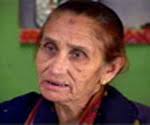
Shahjehan Aapa
1946-2013
Shahjehan Aapa grew up near Delhi in extreme poverty. In the late 1970s, her young daughter was burned alive because of dowry harassment, a tragedy that moved her to social activism. She helped found Shakti Shalini in 1987, an NGO that addresses gender-based violence by working both with individuals and with the broader community. The GFP staff note with sadness Shahjehan's death in September of 2013 after an accident on her way to Mahela Panchayat.
Keywords: feminist conferences, gender-based violence, community activism
Media: Transcript (English), Video, Bibliography, YouTube Video, Name Pronunciation Audio

Siti Abas Ali
Siti Abbas Ali was born in 1980 in Zanzibar, Tanzania; she is a gender activist, lawyer and feminist committed to promote women’s economic justice. She has campaigned for women economic justice for over 13 years while serving in different positions. She is currently working as commissioner for National Planning, sectoral Development and Poverty Reduction. In 2018 she was appointed as Personal Assistant to the Second Vice President Social Welfare. She has held several positions with both governmental and non governmental organizations. She was one of the co-founders and the first Executive Director of Save the New Generation a Women’s Right Organization, and has also worked with Zanzibar Female Members of the House of Representatives Network. She is currently enrolled in pursuing graduate study of gender.
Keywords: community activism, gender-based violence, disability rights, gender and health
Media: Transcript (Swahili, English), YouTube Video (Swahili, English)

Rabab Abdulhadi
1955-
Rabab Abdulhadi, born in 1955 in Palestine, is an activist and scholar contributing to the struggle for Palestinian self-determination and the well-being of Palestinian women. She was the Director of Political and International Relations at the Middle East Research Center in New York. She helped found the Union of Palestinian Women's Associations in North America during the first Intifada, or Palestinian uprising. At last contact, she was conducting research for the Gender and Sexuality Studies Center, in the Global South Project.
Keywords: reproductive rights, rural women and land reform
Media: Transcript (English), Video, Bibliography, YouTube Video, Name Pronunciation Audio

Hajiya Binta Abdulhamid
Hajiya Binta Abdulhamid was born on March 20, 1965, in Kano, the capital of Kano State, in northern Nigeria. She attended primary school and girls’ secondary school in Kano and Kaduna State. Thereafter she attended classes at Bayero University in Kano, where she received a degree in Islamic Studies. While she initially wanted to be a journalist, in 1983 she was encouraged to take education courses at the tertiary level in order to serve as a principal in girls’ secondary schools in Kano State. While other women had served in this position, there had been no women from Kano State who had done so. She has subsequently worked under the Kano State Ministry of Education, serving as school principal in several girls’ secondary schools in Kano State. Her experiences as a principal and teacher in these schools have enabled her to support girl child education in the state and she has encouraged women students to complete their secondary school education and to continue on to postgraduate education. She sees herself as a woman-activist in her advocacy of women’s education and has been gratified to see many of her former students working as medical doctors, lawyers, and politicians.
Keywords: academia and women's studies, education, reform of domestic/family roles
Media: Name Pronunciation Audio, Transcript, Video, YouTube Video
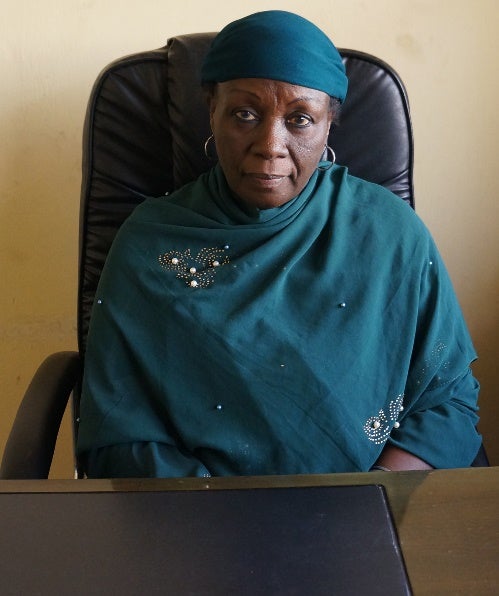
Professor Binta Abdulkarim
Professor Binta Abdulkarim was born on February 10, 1956, in Anchau, a town east of Zaria, in Kaduna State, northern Nigeria. She is the Coordinator of Gender Studies, at Ahmadu Bello University, Zaria, and is also Director of Girl Child Education there. She received her degree in Geography from Ahmadu Bello University and along with her leadership role in Gender Studies at ABU which began in 2003, she teaches courses in the Department of Geography and in the Faculty of Science Education. Her special interest in the education and well-being of women at ABU has led to her participation in ASUU (the Academic Staff Union of Universities) as financial secretary, in the National Association of University Women (Nigeria), and in the federal Anti-Corruption Unit, as the university representative who oversees sexual harassment cases at Ahmadu Bello University. She is also an active participant in the World Association of Victimology and has attended association meetings in Nairobi, Amsterdam, and Nigeria, where she contributed to discussions of the victims of weather extremes and the after-effects of war.
Keywords: academia and women's studies, community activism, environment
Media: Name Pronunciation Audio, Transcript, Video, YouTube Video
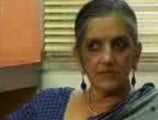
Flavia Agnes
Flavia Agnes, born in 1947, is a women's rights lawyer and writer, having written extensively on issues of domestic violence, feminist jurisprudence and minority rights. At last contact she was co-ordinating the legal centre of MAJLIS and engaged in her doctoral research on Property Rights of Married Women with the National Law School of India. A GFP staff member was recently able to conduct a second interview with Flavia. Keywords and links for the latest interview are found to the right of the semi-colon in the lists below.
Keywords: feminist conferences, politics and the law, intersectionality
Media: [2003 Interview]: (English), Video, Bibliography, YouTube Video; [2017 Interview]: (English), YouTube Video, Name Pronunciation Audio

Dr. Joyce Agofure
Dr. Joyce Agofure was born on April 3, 1978, in Benin City, the capital of Edo State, in southern Nigeria. She first attended primary school in Benin City and continued her education, obtaining her first degree in English and Education. She then entered the Masters’ Degree Program at Ahmadu Bello University-Zaria where she received a Masters’ Degree and subsequently a PhD in English literature. She was particularly interested in eco-feminism and the consequences of climate change on the lives of women. As a senior lecturer and the Coordinator of Postgraduate Studies in the Department of English at Ahmadu Bello University, she teaches courses which include Introduction to Literature, African Literature and Literature Theory. She assigns readings in Nigerian women’s literature, some of which consider the challenges faced by women which she discusses in these courses. She was able to expand her knowledge of eco-feminism, particularly the ways that women are seen as natural beings and the environment is characterized as feminine, during her tenure as a Fulbright Scholar at the University of Idaho. This experience has enabled her to become involved in developing a course on Eco-Feminism to be taught in the Department of English at ABU.
Keywords: environment, academia and women's studies, art/writing as activism
Media: Name Pronunciation Audio, Transcript, Video, YouTube Video
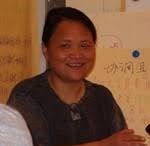
Ai Xiaoming
Ai Xiaoming, born in 1953, is a feminist literary scholar and the co-producer and director of the Chinese version of The Vagina Monologues, one of the activities of the Stop Domestic Violence network. She is Deputy Director of the Women's Studies Center and director of the Sex/Gender Education Forum in Zhongshan University, Guangzhou.
A chapter in Gender Dynamics, Feminist Activism and Social Transformation in China published by Ke Qianting in 2019 discussing the Vagina Monologues in China can be found here.
Keywords: feminist conferences, media, academia and women's studies, education, gender-based violence, politics and the law, reform of domestic/family roles
Media: Transcript (English, Mandarin), Video (English, Mandarin), Bibliography, YouTube Video (Mandarin, English Dubbed), Name Pronunciation Audio

Teresa Akintonwa
Teresa Tindle Akintonwa, born in 1976, has been an Educator for over 25 years with extensive experience in Instruction and Corporate Training. Since becoming a Long Hauler after her initial covid infection in February 2020 she founded the Black Covid-19 Survivors Alliance which was first an online Patient-support group. It has since evolved into activism and advocacy aimed at helping African-Americans overcome the misinformation and social stigma of CoVid and Medical Research involvement. As President of Black CoVid Survivors Alliance she now collaborates with various organizations to increase Health Equity through Health Coaching, research participant recruitment, and DEI advisement to Research organizations.
Keywords: activism during the COVID-19 pandemic, community activism, gender and health, racial identity
Media: Transcript (English), YouTube Video, Name Pronunciation Audio
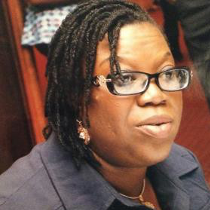
Abiola Akiyode-Afolabi
Abiola Akiyode-Afolabi was born in 1971 in Ilorin, Kwara State Nigeria. Akiyode-Afolabi studied law at the Obafemi Awolowo University. She received her LLM from the Notre Dame School of Law in the US and a PhD from the School of Oriental and African Studies (SOAS), the University of London where she specialized in women’s peace and security studies. In 2002, she established the Women Advocates Research and Documentation Center (WARDC), a not-for-profit focused on maternal and reproductive health advocacy, gender-based violence, and social justice. She also teaches International Humanitarian Law at the University of Lagos. Akiyoda-Afolabi organized grassroot networks connecting women in Nigeria. Such networks have been established in colleges across Nigeria. Read #Womanifesto: What Nigerian Women Want, an important document in Nigerian women’s movement efforts that Akiyode-Afolabi collaborated on, here.
Keywords: academia and women's studies, community activism, environment
Media: Name Pronunciation Audio, Transcript, Video, YouTube Video

Fatma Alloo
Fatma Alloo was born in Zanzibar and is a social movement activist, and journalist committed to social change. In the early 1980’s, Alloo worked as a journalist with Daily News in Dar es Salaam, Tanzania. She has vast international experience internationally as a journalist, including as a radio producer during the Uganda war, and in Geneva, Switzerland, and Amsterdam, Netherlands. Fatma Alloo is the co-founder of the feminist advocacy group Tanzania Media Women’s Association (TAMWA) in 1987. She is a co-founder of the Zanzibar International Film Festival (ZIFF) in 1997. She is also she is a member and co-founder of Zanzibar Women on the Net (ZaWoN), of FEMNET, and of the Non-Government Organization Resource Centre (NGORC) based in Zanzibar. She is presently working with Civil Society Foundation based in Dar es Salaam. She a producer and co-producer of several documentaries, which have been shown at the Berlin Film Festival. She is an associate producer of Tanzanian feature film Maangamizi (extermination) and has won several awards for her films. She has many publications.
Keywords: media, art/writing as activism, community activism
Media: Transcript (English), YouTube Video

Aleisha Amohia
Aleisha Amohia graduated from Victoria University of Wellington (VUW) in 2019 with a Bachelor of Science (majoring in Computer Science and specializing in Artificial Intelligence) and a Bachelor of Commerce (majoring in Management and minoring in Information Systems). While at VUW, she was President of VUW Women in Tech for two years. She is now the Koha Technical Lead at Catalyst IT, an open source software company, where she started as an intern in 2014. Aleisha is a passionate young advocate for diversity and equity in all spaces, particularly in the technology industry. She is currently Co-President of the Wellington Branch of the National Council of Women in New Zealand (NZ) and has previously served on the Boards of the YWCA Greater Wellington, the Wellington Alliance Against Sexual Violence, and the Māori Design Group at InternetNZ. In 2022, Aleisha was a finalist for the NZ Impact Awards for contributing a young, Māori, Asian and female lens to NZ's gender equity movement, and other diversity and inclusion initiatives.
Keywords: activism during the COVID-19 pandemic, indigenous issues, intersectionality
Media: Transcript, YouTube Video

Norie Ape
Norie Ape is a Samoan-born, Auckland-raised and now Wellington-based Digital Product Manager (or ‘technology explainerer’) at Te Pukenga [New Zealand Institute of Skills and Technology] specifically within the Building and Construction Industry Training Organization [BCITO]. In this role, Norie works alongside cognitively diverse technology teams and connects with the people who use digital services to design, build and implement digital solutions that enable better outcomes in vocational education in Aotearoa [New Zealand] with particular focus on Māori, Pasifika, and disabled learners & employers. In March 2023, Norie attended the 67th session of the Commission on the Status of Women (CSW67) in New York as the New Zealand Government NGO Delegate to provide high-level advice on the priority theme of “innovation and technological change, and education in the digital age for achieving gender equality and the empowerment of all women and girls” and liaise with non-governmental organizations across Aotearoa. Norie has experience in the public, private and not-for-profit sectors and is passionate about increasing the number of Māori and Pasifika Women in Tech and leveraging a multi-stakeholder approach between government, civil society and private/industry to connect and collaborate to utilize technology for positive outcomes. Within New Zealand Norie is a member of P.A.C.I.F.I.C.A Inc, National Council for Women, InternetNZ, Digital Equity Coalition Aotearoa, TechWomen NZ, United Nations Association of New Zealand & Pacific Data Sovereignty Network & Pasifika in IT.
Keywords: indigenous issues, politics and the law, education
Media: Transcript, YouTube Video

Adrienne Asch
1948-2013
Adrienne Asch (1948-2013) was an author and an internationally known bioethicist. At the time of her death, she was director of the Center for Ethics and the Edward and Robin professor of biotethics at Yeshiva University in Manhattan. She was also professor of epidemiology and population health at Yeshiva. Adrienne was a long-time member of the board of directors of the American Society for Bioethics in Humanities and served on the Clinton Task Force on Healthcare Reform and the Ethnical, Legal, and Social Implications Policy Planning Group of the National Human Genome Research Institute. The GFP staff note with sadness Adrienne's death in 2013. Read the NYT obituary to learn more about her pioneering work in disability rights.
Keywords: gender and health, disability rights, reproductive rights
Media: Transcript (English), Video, Bibliography, YouTube Video, Name Pronunciation Audio

Bolanle Awe
Bolanle Awe was born in Ilesha on January 26, 1933. A distinguished scholar, feminist, and educator, she attended the first girl’s school in Nigeria, followed by the Perse School for Girls in Cambridge, St. Andrews University, Scotland (1958), and the University of Oxford, England (1964). Considered the matriarch of feminist history in Nigeria, Awe founded the Women’s Research and Documentation Centre (WORDOC) in 1985. She spent many years working on the development of higher education in Nigerian universities.
Keywords: academia and women's studies, environment
Media: Name Pronunciation Audio, Transcript, Video, YouTube Video

Ngāhuia te Awekotuku
Ngāhuia te Awekotuku (Te Arawa, Tūhoe, Waikato, Ngapuhi iwi) was a leader of the women’s liberation movement in New Zealand in the 1970s. As a student, she was a member of the Ngā Tamatoa Māori activist group at the University of Auckland. As a Māori lesbian, Ngāhuia was at the forefront of a call to focus on reaching Māori and Pacific women, as well as lesbian rights.
In 1972, she was famously denied a visa to visit the United States on the basis of her sexuality. She was the first Māori woman to gain a doctorate from an Aotearoa/NZ university.
At the outset, women’s liberation groups adopted an all-inclusive ‘sisterhood is powerful’ approach. But it wasn’t long before differing perspectives on a range of issues led to disagreements. Many Māori women saw women’s liberation as a Pākehā concept with little relevance for them. They argued that Māori women’s rights were intertwined with the revival of Māori culture and the assertion of land rights. By 1973, separate Māori and lesbian groups had started to form and as the decade progressed ideological differences divided the movement further.
Te Awekotuku has worked across the heritage, culture and academic sectors as a curator, lecturer, governor, researcher, and activist. Her areas of research interest include gender issues, culture and heritage, ritual and performance. She has been curator of ethnology at the Waikato Museum; senior lecturer in art history at Auckland University, and professor of Māori Studies at Victoria University of Wellington. She was Professor of Research and Development at Waikato University, and has researched and written extensively about the traditional and contemporary practices of tā moko (tattoo) in New Zealand, as well as Māori practices and traditions around death. She has served on many government boards in the arts and heritage sector. Ngāhuia is an Emeritus Professor of the University of Waikato, the first Māori female Emeritus in Aotearoa. She remains a leading feminist writer, lesbian rights activist, and advocate for Māori issues. She has published short fiction, poetry, and significant nonfiction. She continues to work and curate in the gallery sector. She is also an active practitioner of traditional chant and ceremony. In 2022, she presented the 3 episode video documentary Waharoa: Art of the Pacific that focuses on Māori and Pasifika art in New Zealand.
In recognition of her services to Māori culture, Ngāhuia was appointed a Member of the New Zealand Order of Merit in 2010. In 2016 she was made the inaugural Mareikura or Matriarch of the Pae Akoranga Wahine/Women's Studies Association of Aotearoa/New Zealand. In 2017 she was made a Fellow of the Auckland War Memorial Museum, and she also received the Pou Aronui Supreme Award from the Royal Society of New Zealand for outstanding service to the arts and humanities. Currently, she is one of three inaugural Ruānuku, or Esteemed Scholarly Elders, of Ngā Pae o te Māramatanga, the National Centre for Māori Research Excellence.
Keywords: academia and women's studies, indigenous issues, LGBTQ+ rights
Media: Transcript, YouTube Video
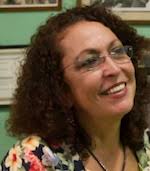
Mónica Baltodano
Mónica Baltodano, born in 1954, began her activism with the Sandinistas as a student and continued her efforts through underground mobilization, surviving imprisonment and torture. She was awarded the title of Commander Guerrilla for her service, and has held a number of political offices including Vice Minister of the Presidency and Minister of Regional Affairs. Upon leaving the FSLN in 2005, Ms. Baltodano helped to found the Movement to Reclaim Sandinismo (known as El Rescate).
Keywords: education, gender-based violence, imprisonment, politics and the law
Media: Transcripts (English, Spanish), Video (English, Spanish), Bibliography, English YouTube Video, Name Pronunciation Audio
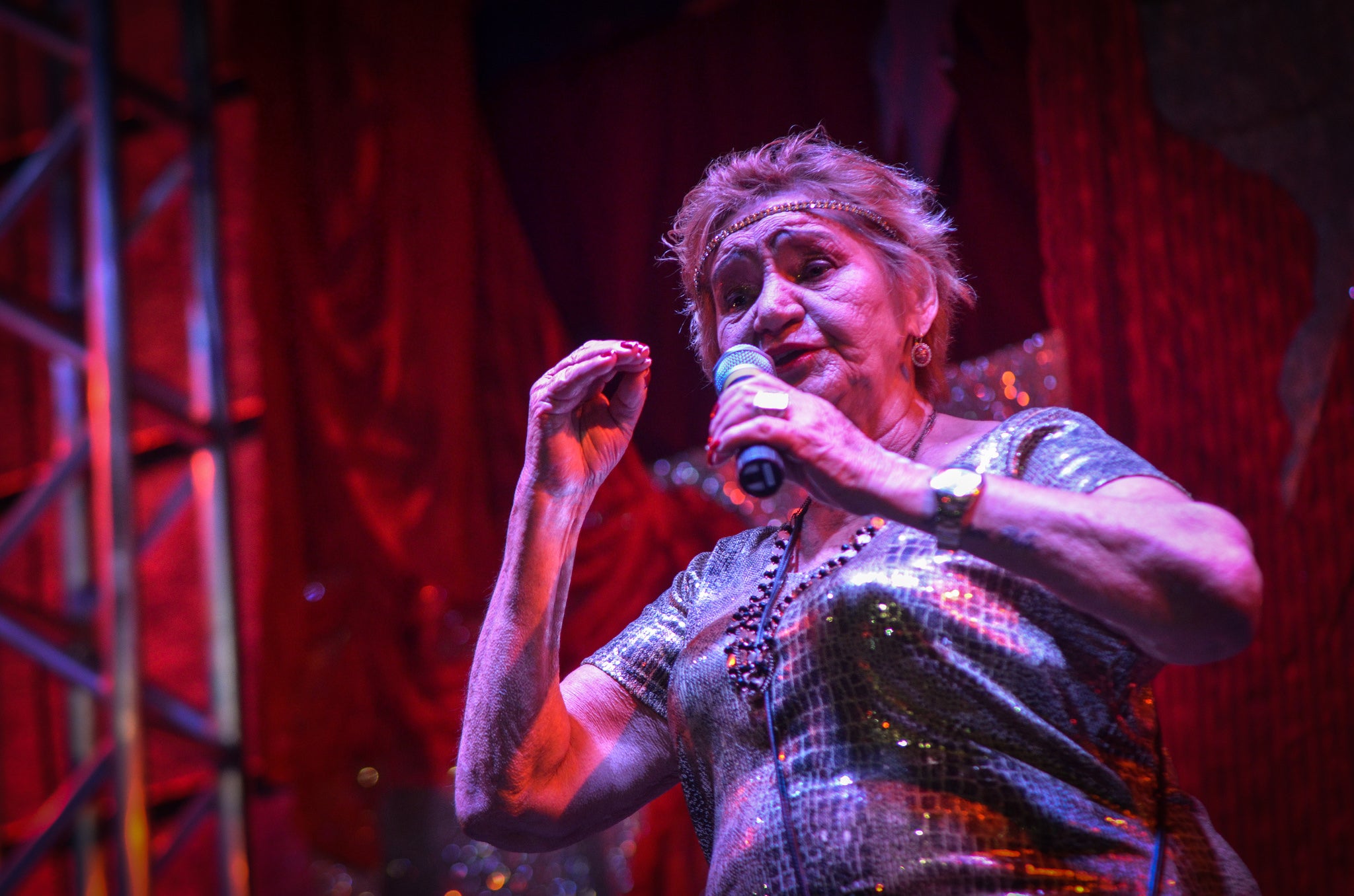
Lourdes Barreto
Lourdes Barreto, born in Catolé do Rocha in Paraíba, has been living in Belém for more than 60 years. She was the founder, with Gabriela Leite, of the Brazilian Network of Prostitutes (RBP), whose milestone was the First National Meeting, "Fala, Mulher da Vida" (“Speak, Ladies of the Night”), held in Rio de Janeiro in 1987. She was one of the founders of the Movement for the Promotion of Women - MOPROM and in 1990 created the Group of Women Prostitutes of the State of Pará - GEMPAC. Due to her recognized knowledge of and participation in the struggle to promote women's rights, she was selected to serve as a representative in the National Council of Women's Rights (CNDM) of the Brazilian Federal Ministry of Justice from 2018-2021. She is a member of the Latin American Platform of Sex Workers (PLAPERTS) and the World Network of Sex Workers (NSWP). Now 79 years old, she has been involved in prostitution for more than 50 years and served as a leader of the RBP for 35 years. She is one of 100 people who initiated anti-AIDS programs in Brazil and contributed to the construction of the Unified Health System (SUS). "I am a whore," tattooed on her left arm, expresses her history of struggle. In September 2022 she launched Lourdes Barreto: Puta Autobiography (Editora Paka-Tatu) at the Bienal das Artes (Biennial of the Arts) in Belém do Pará.
Keywords: community activism, sex work
Media: Transcript (Portuguese, English), YouTube Video (Portuguese, English Subtitles), Name Pronunciation Audio
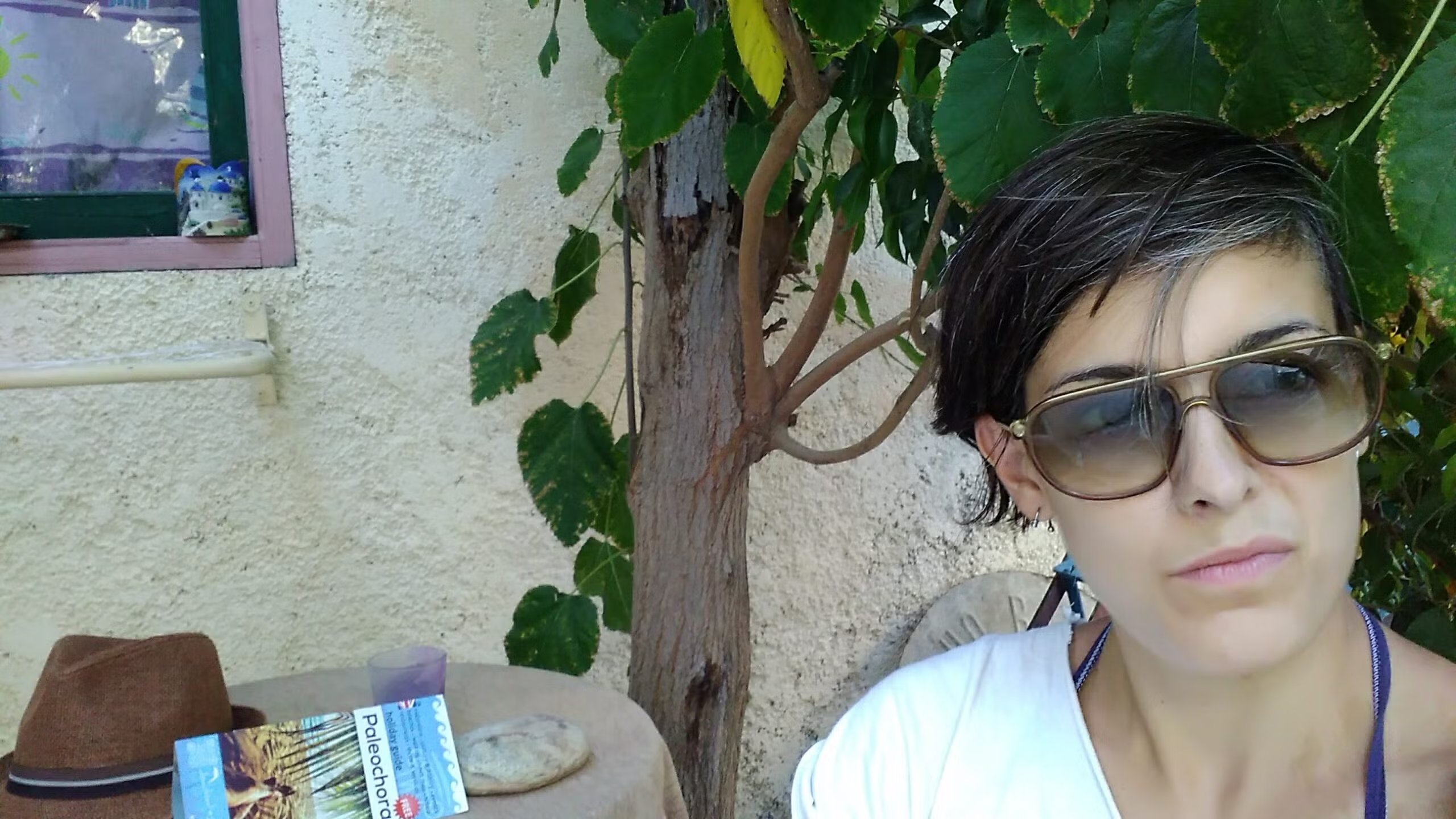
Alice Biagi
Alice Biagi was born in Modena in 1984. She received her Laurea Triennale in Communication Science at the Alma Mater Studiorum Bologna. She currently works as the school and training coordinator at Cassero, and is also a swim instructor. She has been an activist at Cassero LGBTI center since 2007.
Keywords: LGBTQ+ rights, community activism
Media: Transcript (Italian, English), YouTube Video (Italian, English)

Giulia Blasi
Giulia Blasi, born in Pordenone in 1972, is a writer and a feminist activist. She is the author of several novels and short stories, including Manuale per ragazze rivoluzionarie - Perché il femminismo ci rende felici (2018), Rivoluzione Z - Diventare adulti migliori con il femminismo (2020), and Brutta - Storia di un corpo come tanti, all published by Rizzoli. She is the creator of the #quellavoltache campaign, a hashtag used in Italy at the end of 2017 to open a conversation on sexual harassment and abuse. She lives in Rome.
Keywords: media, community activism, intersectionality, LGBTQ+ rights, art/writing as activism

Grace Lee Boggs
1915-2015
Grace Lee Boggs (1915-2015) was an activist and writer. A daughter of Chinese immigrants, she moved to Detroit and worked in grassroots projects together with her partner, James Boggs. They founded Detroit Summer, an intergenerational multicultural youth movement, and wrote in the Michigan Citizen newspaper. She published her autobiography, Living for Change, and among others, received the distinguished Alumna Award from Barnard College, the Chinese American Pioneers Award from the Organization of Chinese Americans, and a lifetime achievement award from the Anti-Defamation League. A plaque in her honor is at the National Women's Hall of Fame in Seneca Falls, NY. The GFP staff were saddened by Grace's death in 2015. Read the NYT obituary to learn more about her remarkable life, spanning a full century, as a human rights activist.
Keywords: gender and health, community activism, education, intersectionality, politics and the law
Media: Transcript (English), Video, Bibliography, YouTube Video, Name Pronunciation Audio

Barbara Brookes
Barbara Brookes is a New Zealand historian and academic who specialises in women's history and medical history. She completed a bachelor's degree with honours at the University of Otago in 1976, then won a scholarship to Bryn Mawr College in Pennsylvania, where she completed both her master's (1978) and doctoral (1982) degrees. Her PhD thesis topic was Abortion in England during the inter-war period (1918-1939), published as Abortion in England, 1900-1967 (Croom Helm, 1988; Routledge, 2012). After graduating from Bryn Mawr she returned to Aotearoa/New Zealand to complete post-doctoral studies at University of Otago and was offered a position in the university's Department of History in 1983 where she remained until her retirement in June 2020.
In 1986, Brookes and her colleague, Dorothy Page introduced the first honours-level women's history course in New Zealand. In 2004, she became head of the Department of History and guided the amalgamation of the department with the art history department to form the Department of History and Art History. She has authored or edited thirteen books. Her A History of New Zealand Women (2016; Bridget Williams Books https://www.bwb.co.nz/books/a-history-of-new-zealand-women/), won the 2017 Ockham New Zealand Book Award (Illustrated Non-Fiction category). Her most recent book, co-edited with James Dunk, is Knowledge Making: Historians, Archives and Bureaucracy (Routledge, 2020).
In 2022, Brookes was elected a Fellow of the Royal Society Te Apārangi. As professor emerita, she continues to pursue her research concerning gender relations in New Zealand, and the history of health and disease in New Zealand and Britain.
Keywords: academia and women's studies, education, gender and health
Media: Transcript, YouTube Video
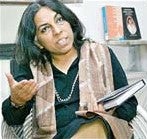
Urvashi Butalia
Urvashi Butalia, born in 1952, is a co-founder of Kali for Women, India's first feminist publishing house. She has worked as an editor at the Oxford University Press and Zed Press Books and taught publishing at Delhi University. She has won several awards, among them the Nikai Asia Prize for Culture (2003) and the Pandora Women in Publishing Award (2000).
Keywords: environment, media, academia and women's studies, art/writing as activism, intersectionality
Media: Transcript (English), Video, Bibliography, YouTube Video, Name Pronunciation Audio

Bertha Inés Cabrales
Bertha Inés Cabrales was born in 1943 and joined the Sandinista Front during college and in the late 1970s was sent to Sweden to organize Solidarity events in Europe. She was active in the Luisa Amanda Espinoza Association of Nicaraguan Women and at last contact was head of the Collectivo de Mujeres Itza, an organization that provides sexual and reproductive health counseling as well as legal assistance for victims of gender-based violence.
Keywords: gender and health, media, gender-based violence, reproductive rights, rural women and land reform
Media: Transcript (English, Spanish), Video (English, Spanish), Bibliography, YouTube Video (English, Spanish) Name Pronunciation Audio

Laura Castro
Laura Castro, born in December 1981 in Rio de Janeiro, is an actress, playwright, singer, cultural producer, and political activist for LGBT families. She is the author of a number of stories and plays, including the 2013 play "To our Children," about a lesbian woman telling her mother that she is going to have a baby.
Keywords: LGBTQ rights, reform of domestic/family roles, art as activism
Media: Transcript (Portuguese, English), Video, YouTube Video (Portuguese, English Subtitles), Name Pronunciation Audio

Angela Tullio Cataldo
Angela Tullio Cataldo was born in 1985 in Rome. She received a Master’s degree from Roma Tre University and works as a researcher, studying the Roma.
Keywords: international rights, politics and the law
Media: Transcript (Italian, English), YouTube Video (Italian, English Subtitles)

Carla Catena
Carla Catena was born in Ancona in 1963. She graduated in literature from the University of Bologna and works as a marketing project manager. She is active with the Lesbian Association Bologna.
Keywords: community activism, LGBTQ+ rights, politics and the law
Media: Transcript (Italian, English), YouTube Video (Italian, English Subtitles)
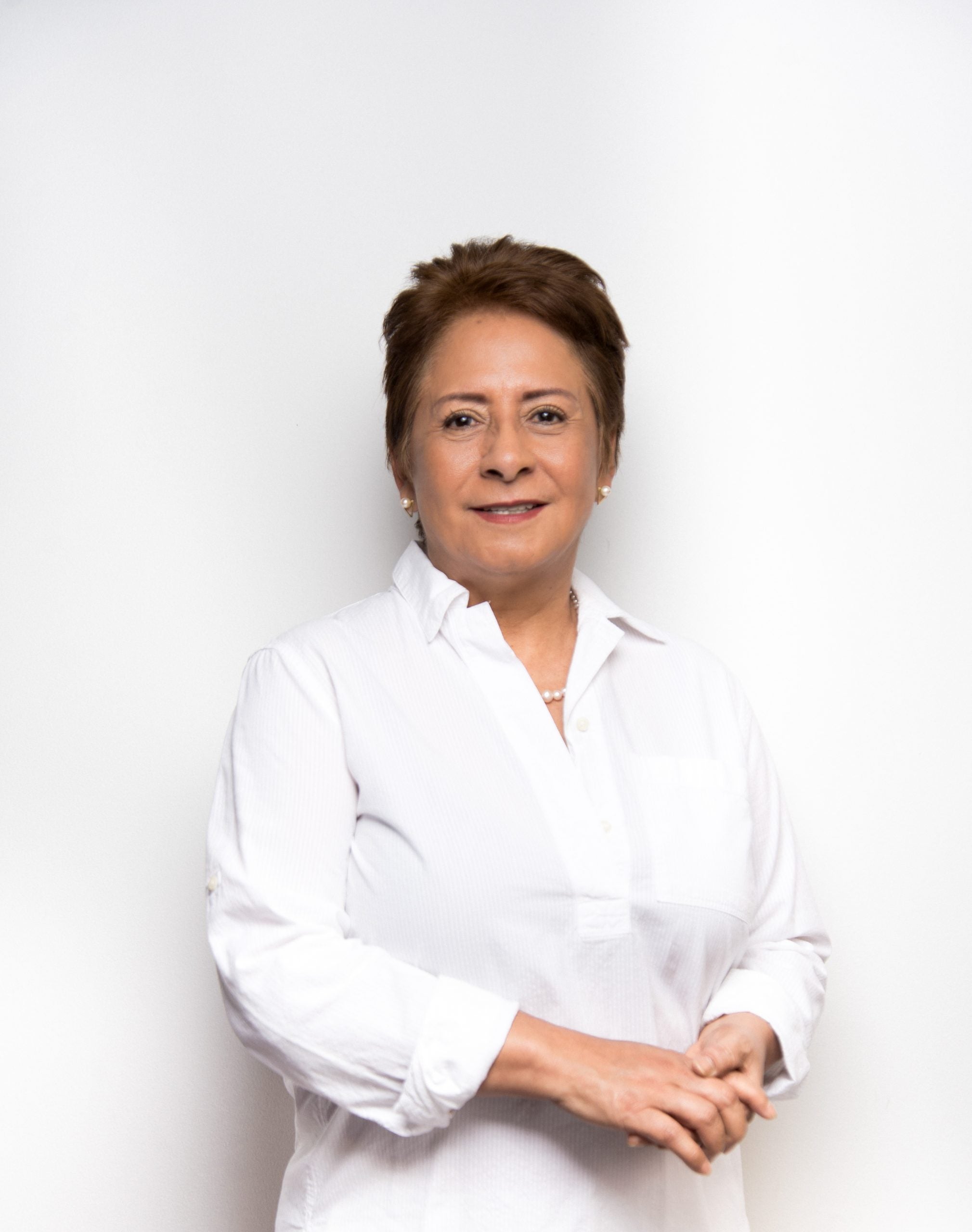
Susana Chavez Alvarado
Susana Chavez Alvarado, born in 1959, has a master’s in Public Health from Cayetano Heredia University. She is an obstetrician graduated from the National University of San Marcos and a specialist in sexual and reproductive health public policy. Susana is a founder, member, President, and Executive director of Promsex, a non-profit organization with a focus on sexual and reproductive rights that reflects a dignity, justice, and equity approach. She is also an executive secretary of the Latin American Consortium against Unsafe Abortion (Consorcio Latinoamericano contra el Aborto Inseguro, CLACAI). She has significant experience in the development of programming and scholarship around sexual and reproductive health and gendered violence. Along with her level of expertise in the field of sexual and reproductive health, Chavez has a particular interest in helping adolescent and child mothers navigate pregnancy. Her work with these adolescent and child mothers includes advocating for abortion rights. Susana is a widely published scholar in the field of Women and Politics Research, Human Rights, and Health Policymaking, collaborating with other researchers in various studies. She has authored, co-authored, and edited several books, including Life Histories of Women Who Experienced An Abortion Because Of Sexual Violence (2015), Stories To Avoid Forgetting: Violence In Relation To Adolescents’ Maternal Mortality, a qualitative study in Peru 2012-2014 (2015), Border spaces: Encounters between social services and health needs of women in La Pampa (2017), and Perceptions About Sexual And Reproductive Rights In Adolescents (2007), among others. Susana has published several studies in academic journals. She has also been an instructor of Health Public Policy with the Institute for Citizenship and Democracy (Instituto Ciudadanía y Democracia).
Keywords: community activism, reproductive rights
Media: Transcript (Spanish, English), Video, YouTube Video (Spanish, English Subtitles), Name Pronunciation Audio
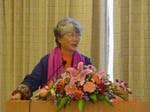
Chen Mingxia
Chen Mingxia, born in 1948, is a researcher at the Institute for Legal Research of the China Academy of Social Sciences, and was one of the leaders who initiated an anti-domestic violence project that developed into the first large scale women's NGO in China, Stop Domestic Violence. She headed this first national women's network.
Keywords: feminist conferences, education, gender-based violence, reform of domestic/family roles
Media: Transcript (English, Mandarin), Video (English, Mandarin), Bibliography, YouTube Video (Mandarin, English Dubbed), Name Pronunciation Audio

Elisa Coco
Elisa Coco was born in Catania, Sicily in the late 1970s. She graduated in communication science from the University of Bologna. She helped create and works for a marketing and communication agency called “Comunicattive” focusing on gender-related communication. They deal with themes like violence against women, and lesbian and queer activism.
Keywords: feminist conferences, LGBTQ+ rights, community activism
Media: Transcripts (Italian, English), YouTube Video (Italian, English Subtitles)

Cathy Cohen
1962-
Cathy Cohen, born in 1962, is the former co-chair and a founding board member of the Audrey Lorde Project in New York. She served on the board of Kitchen Table: Women of Color Press, and the Center for Lesbian and Gay Studies at CUNY. Cohen was a founding member of Black AIDS Mobilization (BAM) and a core organizer of the International Conference, Black Nations Queer Nations. Cohen has also served as an active member in many organizations, such as the Black Radical Congress, African-American Women in Defense of Ourselves, and the United Coalition Against Racism.
Keywords: LGBTQ rights, intersectionality
Media: Transcript (English), Video, Bibliography, YouTube Video, Name Pronunciation Audio

Valentina Coletta
Valentina Coletta was born in Campania, a region of Naples in 1985. She identifies as trans and intersex. She graduated with a degree in psychology from a university in Rome. She works with the Transsexual Identity Movement (MIT) to fight for transgender rights, including with migrants.
Keywords: gender and health, LGBTQ+ rights, reform of domestic/family roles, politics and the law
Media: Transcript (Italian, English), YouTube Video (Italian, English Subtitles)

Sandra Coney
Sandra Coney is a feminist, women’s health advocate, writer, environmentalist, and local body politician. She was one of the founders of Broadstreet feminist magazine and the advocacy group Women’s Health Action. In 1987, with Phillida Bunkle, she wrote the Metro magazine article ‘An Unfortunate Experiment at National Women’s’ that led to the Cervical Cancer Inquiry (also known as the Cartwright Inquiry) in 1987-88 and, subsequently, to significant reforms in health consumers’ rights. She wrote a regular column of political and social comment for New Zealand newspaper the Sunday-Times between 1986 and 2002, and has won both the Qantas Senior Feature Writers’ Award and the Jubilee Prize for Investigative Journalism. Sandra has written or edited over 18 books, including the major Suffrage Centennial publication Standing in the Sunshine: A History of New Zealand Women Since They Won the Vote (1993), and Stroppy Sheilas and Gutsy Girls: New Zealand Women of Dash and Daring (2004). Since 2001 she has been a councillor and board member in Auckland local government, serving on the Waitematā District Health Board for 10 years, and currently on the Waitākere Ranges Local Board; her particular interest is centered on parks and the environment.
Keywords: community activism, gender and health, intersectionality
Media: Transcript, YouTube Video

Elisa Dal Molin
Elisa Dal Molin was born in Feltre, in the province of Belluno, in 1975. She obtained a four-year degree in oriental languages and literature (Chinese). She has worked for many years as the regional representative for Famiglie Arcobaleno. Since the fall of 2018, she has worked as the Secretary of the Famiglie Arcobaleno (national directive).
Keywords: politics and the law, LGBTQ+ rights, community activism, reform of domestic/family roles
Media: Transcript (Italian, English), YouTube Video (Italian, English Subtitles)

JD Davids
JD Davids, born in 1967, is a US-based health justice and communications strategist working with national networks of disabled and chronically ill people. He co-founded Strategies for High Impact and its Network for Long COVID Justice in 2021. Davids has been an external expert advisor to the NIH, CDC, and local health departments, and has served as a strategist and organizer with many pivotal groups, including ACT UP Philadelphia, AVAC, the Coalition for a National HIV/AIDS Strategy, Health GAP, the Health Not Prisons Collective, the HIV Prevention Justice Alliance, Positive Women’s Network – USA and the U.S. Caucus of People Living with HIV. As a queer and trans person living with myalgic encephalomyelitis (ME/CFS), Long COVID and other complex chronic conditions, he writes and hosts conversations for The Cranky Queer Guide to Chronic Illness (@TheCrankyQueer), sits on the board of #MEAction and is a contributing member of the Patient-Led Research Collaborative, which released the first comprehensive study on Long COVID.
Keywords: activism during the COVID-19 pandemic, community activism, disability rights, gender and health, international rights
Media: Transcript (English), YouTube Video, Name Pronunciation Audio

Tamara Dávila Rivas
Born in 1981, Tamara Dávila is a Nicaraguan feminist political activist and human rights defender. She graduated with a psychology degree from Universidad Centroamericana in Managua and holds two master’s degrees in Gender, Identity, and Citizenship from the Universidad de Huelva, Spain, and another in Public Policy, Rights and Youth Leadership from Universidad Centroamericana in Managua. Since 2004, Tamara has worked extensively with women’s organizations and other civil society groups that promote sexual and reproductive rights and advocate on behalf of survivors of violence against women and girls. Dávila has been an active participant in demonstrations and initiatives regarding gender-based violence in Nicaragua, such as the staging of the performance “Un violador en tu camino” (A Rapist in Your Path) in downtown Managua.
Since 2014, Dávila has been a member of the political party Unamos (previously known as Sandinista Renovation Movement, MRS). During the student-led mass protests in 2018, which included more than 500 assassinations at the hands of the police and paramilitary groups, she denounced, and continues to denounce, the Ortega-Murillo government and works with UNAB, Articulación Feminista, and UNAMOS, among other political and civil movements, to achieve a democratic transition in her country that allows justice, equality, equity, and freedom. Because of that, government-sponsored intimidation and persecution increased, as she was being followed and her house was placed under surveillance. Due to her advocacy in defense of human rights and her leadership in the widespread opposition movement, Tamara was illegally and violently arrested at her house by the Ortega Murillo regime on June 12, 2021, in the presence of her five-year-old daughter. After the police raided her house and denied knowing her whereabouts for several weeks, Tamara officially disappeared into the hands of the Nicaraguan authorities. She was placed in solitary confinement for twenty months at the new prison built by the regime for political prisoners known as “El Nuevo Chipote.” There, and in clear violation of international law on the prevention of torture and treatment of prisoners, she faced several forms of torture that included dietary restrictions, interrogations in the middle of the night, irregular family visits, denial of access to reading and writing materials, and solitary confinement. Her case was emblematic because the regime prevented Tamara from establishing any form of contact with her daughter for over a year. On February 9, 2023, she was sent into exile alongside 221 other Nicaraguan political prisoners and granted humanitarian parole status in the United States. Currently, she is the 2023-2024 Human Rights Fellow at the Arcus Center for Social Justice Leadership in Kalamazoo College, Michigan. She continues to advocate for Nicaragua’s freedom and works to build a united and diverse movement in exile in coordination with people inside Nicaragua and around the world. She was recently elected spokesperson of the new political movement of leaders in exile, Monteverde.
Keywords: military work in Nicaragua, imprisonment, reproductive rights
Media: Transcripts (English, Spanish), Audio
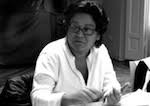
Violeta Delgado
Violeta Delgado was born in 1969, participating in the National Literacy Campaign when she was just 11 years old, kicking off a lifetime of political participation and activism. She became involved in a campaign to end domestic violence. She has done consulting, run for the National Assembly, and now works with CINCO - an organization that researches the media's role in society and politics. In 2005, Delgado was part of the group of 1000 Peacewomen that was nominated for the Nobel Peace Prize.
Keywords: feminist conferences, gender and health, education, gender-based violence, politics and the law
Media: Transcript (English, Spanish), Video (English, Spanish), Bibliography, YouTube Video (English, Spanish) Name Pronunciation Audio
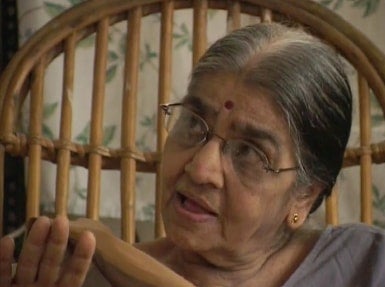
Neera Desai
1925-2009
Neera Desai, (1925-2009) was a pioneer in the field of Women's Studies and a nationally and internationally known scholar. She set up the first Research Centre for Women's Studies in SNDT Women's University. Her much-acclaimed research works have been published in Gujarathi and English. The GFP staff note with sadness the death of Neera in 2009 after her battle with cancer.
Keywords: feminist conferences, academia and women's studies
Media: Transcript (English), Video, Bibliography, YouTube Video, Name Pronunciation Audio
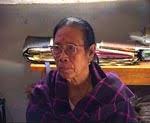
Ima Thokchom Ramani Devi
Ima Thokchom Ramani Devi was born in 1930. At last contact, she was serving as the General Secretary of All Manipur Women's Reformation and Development Samaj.The Samaj has taken up several issues like banning of alcohol, rape, individual cases of women, and the Armed Forces Special Powers Act. She belongs to the Meitei community.
Keywords: gender-based violence, reform of domestic/family roles
Media: Transcript (English), Video, Bibliography, YouTube Video, Name Pronunciation Audio

Mahasweta Devi
1926-2016
Mahasweta Devi (1926-2016) was one of India's foremost writers, recognized by the Sahitya Akademi (1979), Jnanpith (1996) and Ramon Magasaysay (1996) awards. She was also awarded the Padmasree (1986) for her activist work among dispossessed tribal communities, editing a Bengali quaterly, Bortika, creating a forum for marginalized people. The GFP staff notes with sadness the death of Mahasweta in 2016. Read the NYT obituary to learn more about her life, writing, and social activism.
Keywords: art/writing as activism
Media: Transcript (English), Video, Bibliography, YouTube Video, Name Pronunciation Audio

Kerri Du Pont
Kerri Du Pont is Senior Project Manager for the Ministry of Social Development. Coming from a background in brand and digital strategy and design, she emigrated to Aotearoa New Zealand in 1996 to work as a Senior Lecturer at Massey’s School of Design. Kerri has worked in strategic communications and project management in the public service since 2018. She has worked in central government and service delivery agencies advising on strategic communications, policy, reporting and risk assessment for managers, senior leaders and ministers, and has contributed to the delivery of key initiatives for diversity and inclusion and social cohesion across the system. She helped design the strategic priorities for the public sector-wide Government Women’s Network and significantly grew its membership and visibility. She has also been a trans-Tasman representative on a disability working group and contributes to the New Zealand Government Web community for accessibility.
Kerri is also a Board member for the National Council of Women of New Zealand where she leads the communications strategy for the organisation.
She was instrumental in the recent launch of both the results of the 2023 gender attitudes survey and the platform of women's resources, listed below:
https://www.pockety.org.nz/ (A hub for services for women, developed and launched by Kerri Du Pont.)
https://genderequal.nz/ga-survey/ (Website of Gender Equal NZ, led by the National Council of Women of New Zealand. The results of the 2023 gender attitudes survey are available on this site in both summary format and pdf.)
Keywords: academia and women's studies, international rights, politics and the law
Media: Transcript, YouTube Video
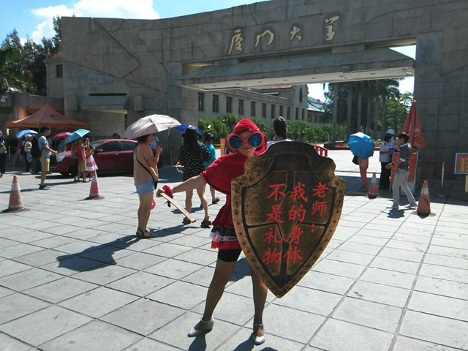
Duan Jiling
Duan Jiling was born in 1984 in Hubei, China. She holds an MA in Linguistics and Applied Linguistics from Xiamen University, and two BAs in Chinese and English Language and Literature from Huazhong University of Science & Technology. Duan is currently a Ph.D. candidate in Gender Studies at Indiana University Bloomington. Her research interests include transnational feminisms, feminist politics, and gender and media. Before coming to study in the US, she worked for an NGO serving women migrant workers in the south of China, and a women's media in Beijing as a senior editor and journalist, and has been participating in both the feminist and labor activism communities in China.
Keywords: academia and women's studies, intersectionality, community activism, media
Media: Transcript (English, Mandarin), Video, YouTube Video (Mandarin, English Subtitles)

Josephine Effah-Chukwuma
Josephine Effah-Chukwuma, born in Lagos in 1966, is a specialist in gender and development and a human rights advocate. She received her B.A. in English, and her M.A. in development studies with a special focus on women’s issues, from the Institute of Social Studies in the Hague, the Netherlands. She worked for a few years for the Constitutional Rights Project (CRP), and then in 1999 established Project Alert on Violence Against Women, a not-for-profit that addresses gender-informed abuses The Project provides counseling, advocacy, and temporary shelter for abused persons. The organization opened the first shelter for abused/assaulted women and girls in Nigeria in 2001.
Keywords: community activism, gender-based violence, reform of domestic/family roles, environment, feminist conferences
Media: Name Pronunciation Audio, Transcript, Video, YouTube Video
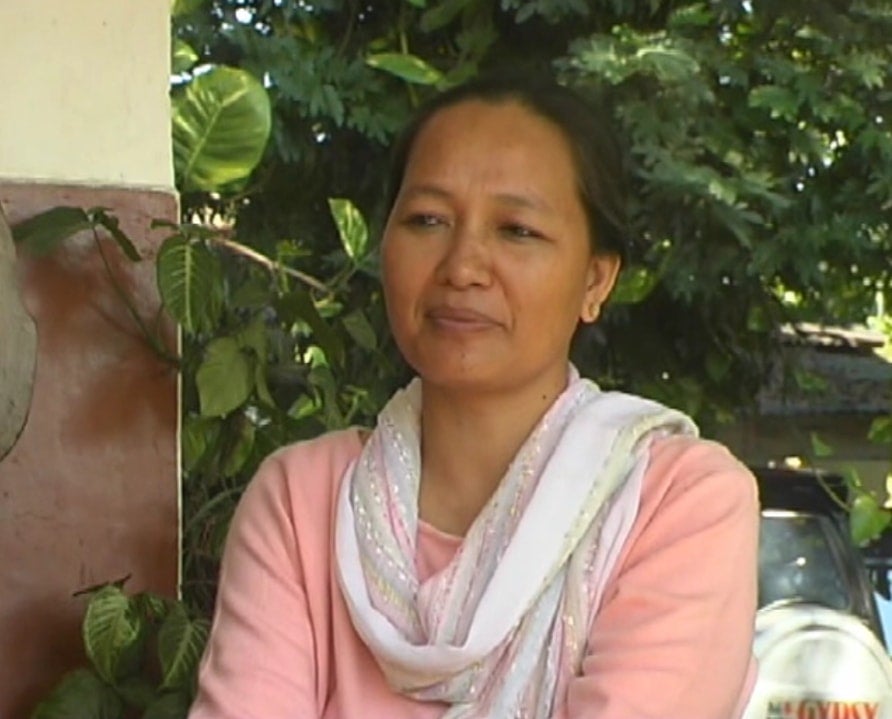
Jarjum Ete
Jarjum Ete, born in 1963, belongs to the Galo tribe and is the Chairperson of the Arunachal Pradesh State Commission on Women which discusses women's participation in panchayats, customary laws, need for a state women's commission and anti-liquor laws. She has very strong views on legalisation of prostitution.
Keywords: gender and health, community activism, gender-based violence, sex work, intersectionality, politics and the law
Media: Transcript (English), Video, Bibliography, YouTube Video, Name Pronunciation Audio
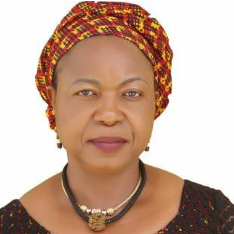
Dr. Joy Ngozi Ezeilo
Dr. Joy Ngozi Ezeilo is professor of law and the Dean of the Law School, University of Nigerian (UNN). She has been the lead professor of the "Women, Children, and the Law" class at the UNN since 1997. An activist and feminist scholar, Dr. Ezeilo was appointed the UN Special Rapporteur on trafficking in persons between 2008 and 2014, during which time she traveled to several countries to determine the causes, mechanisms, and scope of human trafficking. She is an active member of the civil society movement in Nigeria, where she founded the Women’s Aid Collective (WACOL), a not-for-profit that works to promote and protect the rights of women and girls. She is the founder and moderator of the West African Women’s Rights Coalition (WAWORC).
Keywords: politics and the law, reform of domestic/family roles, gender-based violence, academia and women's studies, environment, feminist conferences
Media: Name Pronunciation Audio, Transcript, Video, YouTube Video

Marilda de Souza Francisco
Marilda de Souza Francisco, born in 1962 in Angra dos Reis, grew up in the Quilombo community of Santa Ria de Bracuí. She has been active in community organizing all of her life and she has worked in the schools of Angra for many years, promoting education and community development in this rural community of black Brazilians who are descendants of slaves.
Keywords: education, rural women and land reform, racial identity
Media: Transcript (Portuguese, English), Video, YouTube Video (Portuguese, English Subtitles) Name Pronunciation Audio
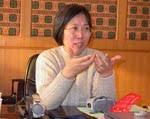
Gao Xiaoxian
Gao Xiaoxian, born in 1948, is Secretary General of the Shaanxi Research Association for Women and Family. Working as an official in the Shaanxi Provincial Women's Federation, Gao has been a pivotal figure in establishing this influential non-governmental women's organization, and has also been involved in rural development projects.
Keywords: feminist conferences, gender and health, academia and women's studies, education, rural women and land reform
Media: Transcript (English, Mandarin), Video (English, Mandarin), Bibliography, YouTube Video (Mandarin, English Dubbed), Name Pronunciation Audio
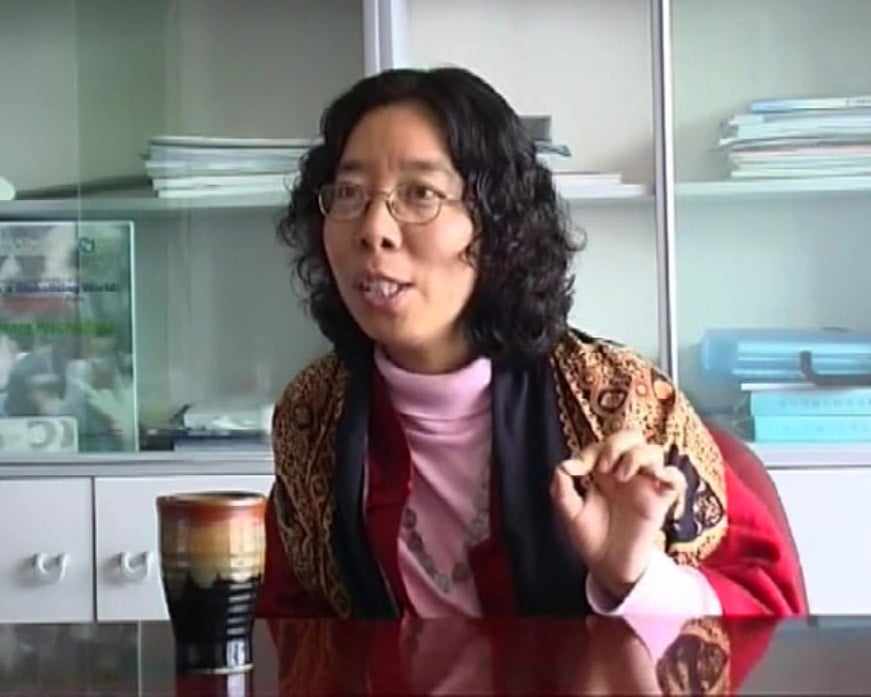
Ge Youli
Ge Youli, born in 1962, is the China Country Director for the Global Alliance for Workers and Communities in Guangzhou. She has worked at the Ford Foundation and at the United Nations Development Program in Beijing, becoming involved in many feminist projects in China.
Keywords: feminist conferences, gender-based violence, politics and the law, reform of domestic/family roles
Media: Transcript (English, Mandarin), Video (English, Mandarin), Bibliography, YouTube Video (Mandarin, English Dubbed), Name Pronunciation Audio
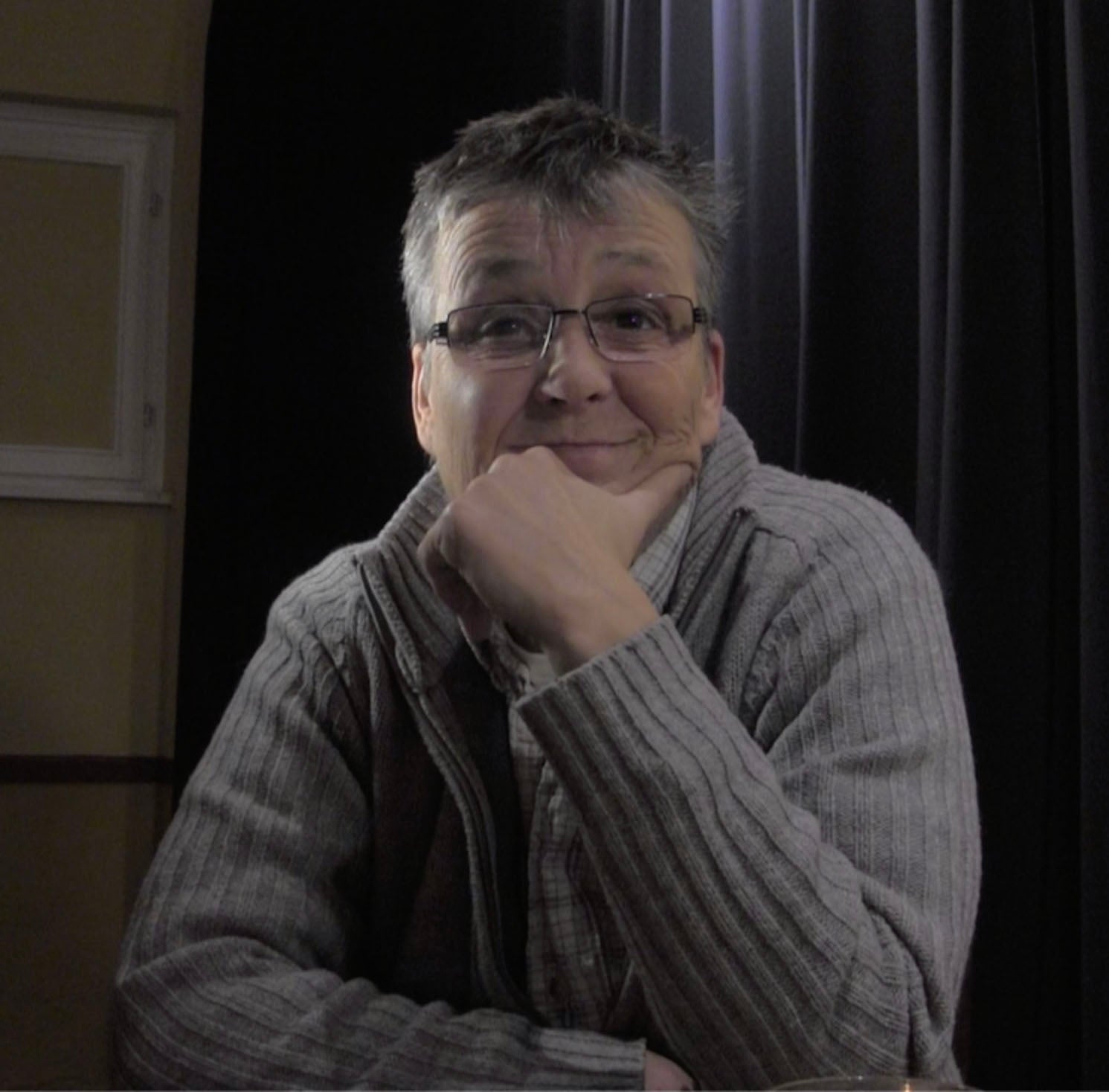
Manu Giese
Manu Giese, born 1960, trade union employee at HBV (Union of Retail, Bank &Insurance, later ver.di). She came into contact with the women's movement when she was a teenager and had been active in the women's occupied house at Potsdamer Straße 139 in Berlin-Schönebergsince 1981. She belonged to the responsible group of women who, with the help of state subsidies and a great deal of self-help and work, renovated the house from the ground up. In 1986 the BEGiNE -Meeting Place & Culture for Women was opened in those premises. She lived in the house until 1998 and was active in self-administration (e.g. as a board member of the house association). She is also active in the BEGiNE as the owner of the women's pub (1986 -1998 and again since 2004).
Keywords: media
Media: Transcript (English, German), Video, YouTube Videos (German, English), Name Pronunciation Audio

Agnieszka Graff
Agnieszka Graff was born in 1970 and received a bachelor of arts degree in English Language and Literature from Amherst College in the United States and later studied literature at Oxford University. She was an assistant professor of English literature at the University of Warsaw where she translated Virginia Woolf's "A Room of One's Own" in 1997. Since 2000, she has been an assistant professor at the Center for American Studies at the University of Warsaw.
Keywords: art/writing as activism, reproductive rights
Media: Transcript (English, Polish), Video (English, Polish), Bibliography, English YouTube Video, Name Pronunciation Audio
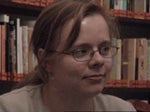
Anna Gruszczynska
Anna Gruszczynska was born in 1978. She studied English and Spanish Philology at the University of Wroclaw and at the Jagiellonian University in Cracow. In 2001, Gruszczynska started a chapter of The Campaign against Homophobia. She has organized marches and campaigns calling for gay and lesbian rights in Poland. Gruszczynska is firmly committed to fighting homophobia and regularly publishes articles about the topic in feminist magazines.
Keywords: LGBTQ rights, intersectionality
Media: Transcript (English, Polish), Video (English, Polish), Bibliography, English YouTube Video, Name Pronunciation Audio

Mariam Hamdani
Mariam Mohammed Hamdani was born in Mkunazini Zanzibar, Tanzania. Hamdani holds postgraduate diplomas and certificates from Institutions in the Netherlands, Tanzania, Russia, the U.S., Sudan, and Germany. She is an accomplished journalist and activist. She is the founder of Tausi Taarab Orchestra band1. Hamdani has served for three seasons as a judge for the Emerson’s Zanzibar Foundation Film Award (ZIFF 2017- 2019). She has served as co-founder and chair of Zanzibar Youth Education Development Support Association (ZAYEDESA), board member/Trustee of The Stone Town Heritage Society, board member of Women Development for All (WODFA), Vice Chair for Music and Arts Council Zanzibar and Vice Chair of the Zanzibar Broadcasting Commission. She has organized and coordinated several events including the first Music and Cultural Festival in Zanzibar; the UN Women conference for African Countries on Peace held in Bwawani Hotel Zanzibar 1999 and the International Symposium on Music and Traditional Dances as Influenced by Oriental held in Zanzibar 1996. She has held several government positions in the Ministry of Trade, Industry and Tourism and has worked with both national and international media, and has many publications.
Keywords: media, art/writing as activism, gender-based violence
Media: Transcript (Swahili, English), YouTube Video (Swahili, English)

He Zhonghua
He Zhonghua, born in 1937, is a professor of literature from the Naxi ethnic minority. She established a women's studies center in the Academy of Social Sciences and a minority women research center in Yunnan. She has worked on many projects ranging from improving ethnic minority women's health to empowering women to participate in rural development.
Keywords: feminist conferences, environment, academia and women's studies, education, intersectionality, rural women and land reform
Media: Transcript (English, Mandarin), Video (English, Mandarin), Bibliography, YouTube Video (Mandarin, English Dubbed), Name Pronunciation Audio
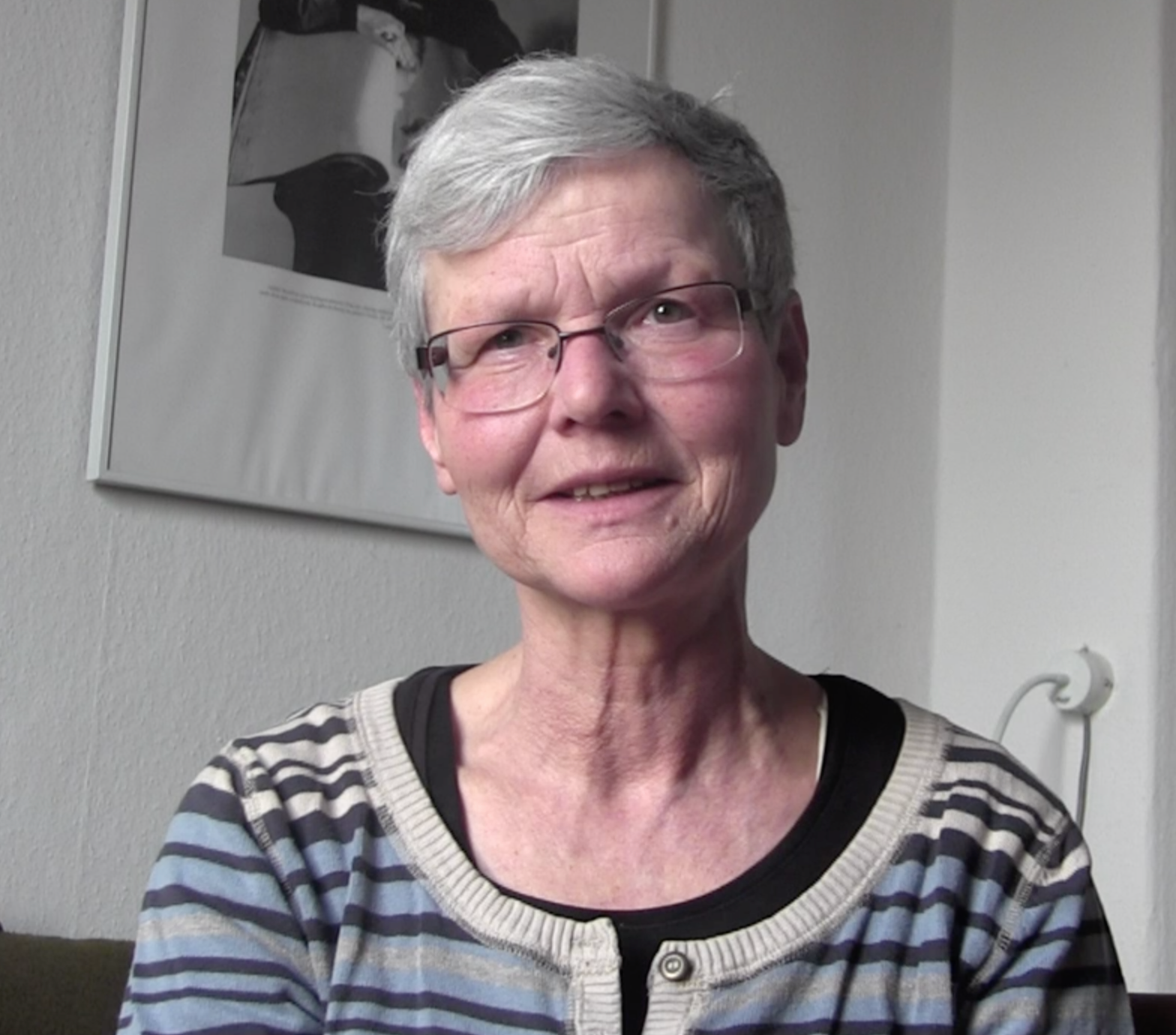
Barbara Hoyer
Barbara Hoyer, born 1955, MA in German Studies and Geography (Magistra thesis on lesbian literature in the 1970s). After her studies, she worked in the women's bookstore Labrys in Berlin (1982-1989). From 1990-1998 was she part of the organisational team of BEGiNE -Treffpunkt und Kultur für Frauen e.V., responsible for event organisation, fundraising, and accounting. Since 1975 she has been active in the women's and lesbian movement, first in various women's groups (including LAZ -Lesbian Action Centre Berlin -around 1980), then in the above-mentioned women's projects). Since 2004 she has been project manager of the BEGiNE.
Keywords: media, academia and women's studies, community activism, art/writing as activism, LGBTQ rights
Media: Transcript (English, German), Video, YouTube Video (German, English), Name Pronunciation Audio
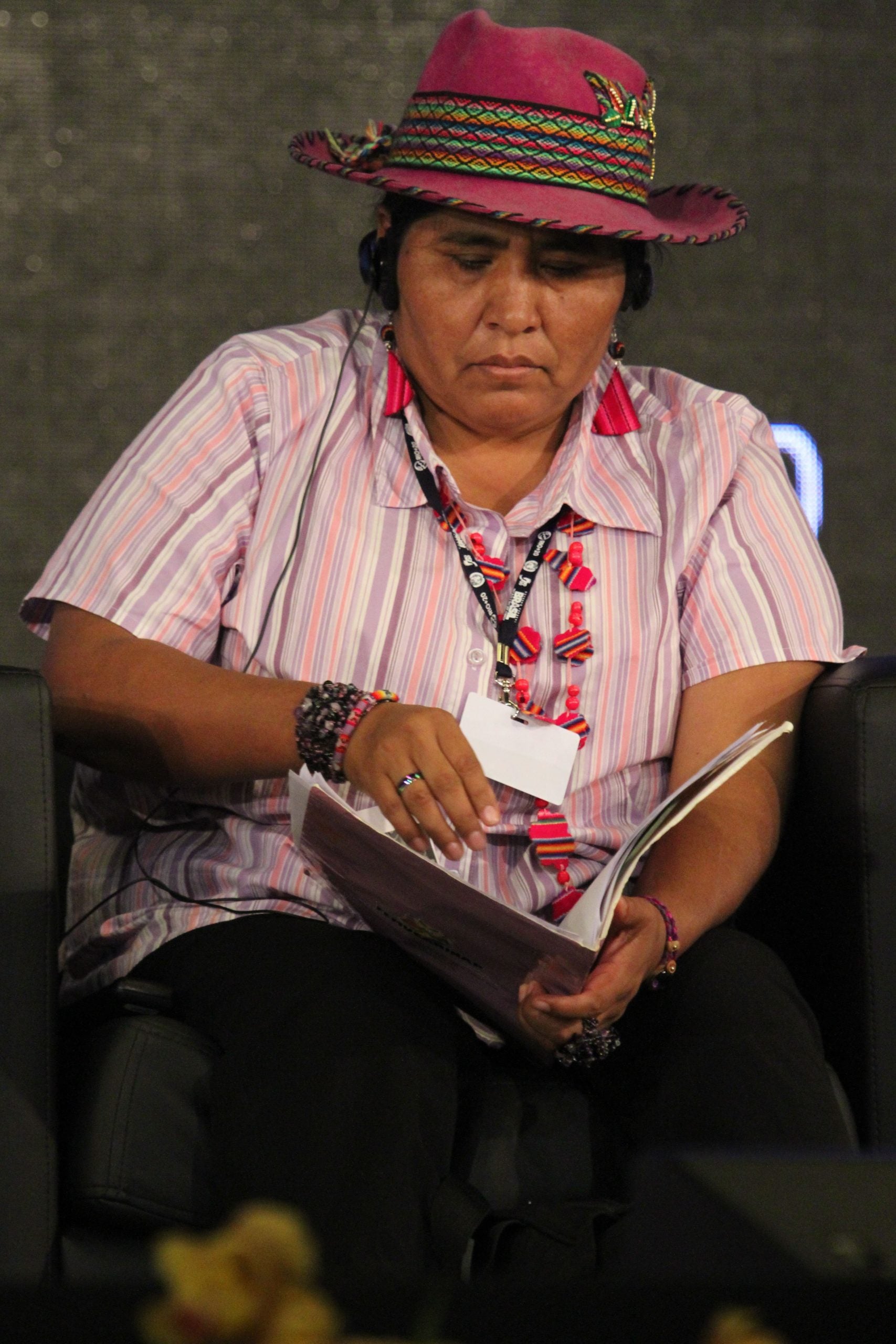
Lourdes Huanca Atencio
Lourdes Huanca Atencio, born in 1968, is founder and president of the National Federation of Female Peasants, Artisans, Indigenous, Native and Salaried Workers of Peru (FENMUCARINAP). The organization was founded in 2006 with the purpose of defending and fighting for the rights of women in Perú. Rooted in an ancestral cosmovisión (or worldview) of their indigenous communities, a central struggle has been the fight for their subsistence, in maintaining land, water and seed sovereignty. The main goals include: (1) control and defense of the territory of the female body, which is often violated; (2) the political, economic, social and cultural empowerment of women who sustain society, yet whose work and contributions are not recognized; (3) defending the sovereignty of indigenous women’s subsistence, which is land, water and seeds, because a campesina (or rural woman) without those things has no choice but to move to city where she then becomes extremely impoverished. Lourdes is one of five women promoters of human rights who were recognized by the Ministry of Justice and Human Rights in Perú during a ceremony held in the framework of the commemoration of International Women's Day in March 2020. She has also participated in numerous UN initiatives (e.g., as a regular participant in the United Nations Framework Convention on Climate Change) and is also a member of the Fund for the Development of Indigenous People of Latin America and the Caribbean (FILAC).
Keywords: community activism, rural women and land reform
Media: Transcript (Spanish, English), Video, YouTube Video (Spanish, English Subtitles) Name Pronunciation Audio
Interviewee Photo Credit
By theverb.org. https://www.flickr.com/photos/71015487@N03/7382740578/in/photolist-cfotyE. Creative Commons. Accessed 2 February, 2021.
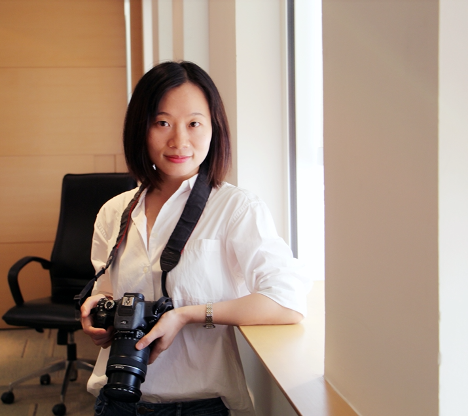
Xueqin (Sophia) Huang
Xueqin (Sophia) Huang was born in 1988 in Shaoguang, Gangdong province. She graduated from Jinan University. She used to work as a journalist for a national news agency and progressive newspaper. She is freelancing now, writing for Southern Metropolis Weekly, The Livings, The Initium Media and NGOCN. Her reporting focuses on democracy development, civil society and the rights of disadvantaged groups in China. She published a report on workplace sexual harassment of Chinese female journalists in 2017, which ignited and promoted #Metoo movement in China. She is dedicated to women's rights and advocacy for anti-sexual harassment law. In 2019 she was jailed for several months for her reporting on Hong Kong's pro-democracy movement. Read more about Xueqin (Sophia) Huang and her activism in the face of political repression here.
Keywords: gender-based violence, media, politics and the law, community activism
Media: Transcript (English, Mandarin)

Holly Hughes
1955-
Holly Hughes, born in 1955, is a performance artist. She became a member of the WOW cafe, a feminist collective and works on issues of sexuality, identity, personal narrative, and freedom of expression. She has performed across the USA, Canada, and Great Britain at venues ranging from cultural institutions to alternative spaces. At last contact, she was teaching at the University of Michigan.
Keywords: art/writing as activism, LGBTQ rights
Media: Transcript (English), Video, Bibliography, YouTube Video, Name Pronunciation Audio

Indira Huilca Flores
Indira Huilca Flores, born in 1988, is a sociologist and progressive feminist activist. She received her degree in Sociology from the Universidad Nacional Mayor de San Marcos, in Lima, and studied for a Master's in Political Science and Government at the Pontifical Catholic University of Peru. In 2013 she was elected councilor of the Metropolitan Municipality of Lima, where she joined the Commissions for Urban Development, Environment, Women and Neighborhood Participation. In this capacity, she promoted the creation of the Women's Management as the body responsible for public policies on gender equality in Metropolitan Lima. She was elected to Congress in 2016 and her work had three priorities: gender, diversity and human rights; labor rights and unionization; and the right to the city and public spaces. As a Congresswoman, she was the President of the Committee on Women and Family and a member of the Committee on Labor and Social Security in which she worked for the rights of women, workers, and the LGTBI community. She was also outspoken in calling the first congressional plenary session on women held in May 2018. In 2017 she joined the new political party New Peru and was the elected official spokesperson for the period 2019-2020. In 2019, she resigned from the New Peru Movement after the dissolution of Congress led to the movement to support electoral alliances in the congressional elections of January 2020.
Keywords: politics and the law
Media: Transcript (Spanish, English), Video, YouTube Video (Spanish, English Subtitles), Name Pronunciation Audio

Prue Hyman
Prue Hyman, born in England in 1943, is a feminist economist. She moved to New Zealand in 1969 to work at Victoria University, Wellington, eventually becoming an Associate Professor of Economics and Gender and Women's Studies until controversial restructuring between 2008 and 2010 abolished Gender and Women's Studies. She has also advised the New Zealand government through her work at the Ministry of Women’s Affairs (1989-1990). Hyman studies the personal aspects of economics, such as how work is valued, with a particular focus on living wages and pay equity.
She has written two books: Women and Economics: A New Zealand Feminist Perspective (1994), and Hopes Dashed?: The Economics of Gender Inequality (2017). In 2000, she was commissioned by the New Zealand Police Force to write an influential report titled Women in CIB: Opportunities for and Barriers to the Recruitment, Progress and Retention of Women in the Criminal Investigation Branch. While retired from university work, she continues to champion gender pay equity issues.
Keywords: academia and women's studies, intersectionality, politics and the law
Media: Transcript, YouTube Video

Elena Iarskaia-Smirnova
Elena Iarskaia-Smirnova, born in 1963, had dual degrees in social work and sociology. She is a professor of sociology at the Higher School of Economics at the National Research University in Moscow, Russia, where she is a leading research fellow and the editor of the Journal of Social Policy Studies. Her professional research interests include social policy, sociology of professions, gender and disability, family and children, and qualitative research methods.
Keywords: academia and women's studies, art/writing as activism, education
Media: Transcript (English, Russian), Video (Russian), YouTube Video (Russian, English), Name Pronunciation Audio

Inga Iwasiów
Inga Iwasiów was born in 1963 and has a doctorate in feminist theory and literary criticism from the University of Szczecin where, at last contact, she was a Professor of Literature and an editor of a cultural bi-monthly Borderlands (Pogranicza). In 1994, she published Frontiers in Wlodzimierz Odojewski's Literature: A Feminist Intervention, which is considered one of the first Polish monographs in feminist theory and criticism. Iwasiów writes academic texts as well as prose and poetry, and is deeply committed to feminist language not only as an academic tool of interpretation, but also as a daily form of communication.
Keywords: art/writing as activism
Media: Transcript (English, Polish), Video (English, Polish), Bibliography, English YouTube Video, Name Pronunciation Audio
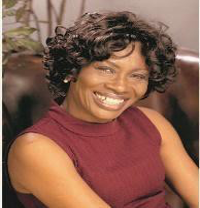
Ngozi Iwere
Ngozi Iwere, born in 1956, has pursued work in language teaching, journalism and communications, but describes herself as primarily an activist. Through her contributions to the United Nations Expert Strategy Meeting on HIV/AIDS and Gender preparatory to the UN General Assembly on HIV/AIDS, the Expert Strategy Meeting on HIV/AIDS as a security issue, and UNAIDS Consultative Meeting on Communication for Social Change, she played key roles at the national and global levels in shaping policies on HIV/AIDS. She developed a model program for HIV/AIDS Prevention that targets and involves the entire community, which earned her an Ashoka Fellowship.
Keywords: community activism, gender and health, reform of domestic/family roles, feminist conferences
Media: Name Pronunciation Audio, Transcript, Video, YouTube Video
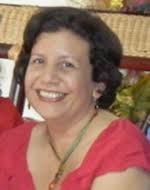
Juanita Jiménez
Juanita Jiménez was born in 1967. She is a lawyer, a leader in the Women's Autonomous Movement, and a longtime activist focusing primarily on women's health and reproductive rights. In recent years, she has become particularly active in protesting the 2006 law that outlawed all forms of abortion in Nicaragua. She has faced political persecution for her work in favor of abortion, and in particular for her support of a 9-year-old girl who had an abortion after being sexually abused.
Keywords: gender-based violence, politics and the law, reproductive rights
Media: Transcript (English, Spanish), Video (English, Spanish), Bibliography, YouTube Video (English, Spanish), Name Pronunciation Audio

Ang Jury
Dr. Ang Jury is the CEO of Women’s Refuge New Zealand. Ang grew up in Waitara, a small town in the Taranaki region of Aotearoa/New Zealand’s North Island. Although she was a straight-A student, she chose to leave school at age 15, start a family, and move to Tauranga. Her marriage ended in her 30s, and she decided to study to be a social worker. She attended Massey University, where she completed an undergraduate degree and then decided to continue on to doctoral research focused on the role of shame within abusive relationships. She gained her PhD in 2008.
Encouraged to volunteer in her community as part of her studies, Dr. Jury joined the Palmerston North Women's Refuge. She has worked in the domestic violence area for over 20 years, mostly within the Women’s Refuge movement in Aotearoa, beginning as a volunteer, then advocate, then to management and Board member, and eventually Chief Executive. In addition, she has been instrumental in the development of cross-agency collaborations both regionally and nationally.
Dr Jury has presented her research to forums within New Zealand and internationally. In addition to her work with Women’s Refuge, she has worked to develop and coordinate family violence collaborations within the Manawatu and Whanganui regions under the umbrella of the government’s Te Rito Family Violence Strategy.
In the 2022 New Year’s Honours List, Dr Jury became an Officer of the New Zealand Order of Merit (ONZM) awarded by Queen Elizabeth II.
Keywords: community activism, gender-based violence, intersectionality
Media: Transcript, YouTube Video

Natal’ia Iur’evna Kamenetskaia
Natal'ia Iur'evna Kamenetskaia was born in Moscow in 1959 and is an art historian, an exhibition curator, the author of critical articles on issues of women in art, and a curator of international and regional art projects. She was one of the first organizers of feminist exhibitions and conferences on gender issues in Russia in the early 1990s. She is also co-founder and director of an independent non-profit cultural organization, Creative Laboratory AAE (Art, Academics, Education).
Keywords: art/writing as activism, academia and women's studies
Media: Transcript (English, Russian), YouTube Video (English, Russian), Name Pronunciation Audio

Maimuna Kanyamala
Maimuna Kanyamala was born in 1956, and is an activist, entrepreneur and feminist who has actively campaigned for women’s rights in Tanzania. She has translated her feminist activism to the grassroots level, while also bringing it to the national level policy platform. She was one of the co-founders and the first Executive Director of Kivulini Women’s Rights Organizations. Kivulini means "in the shade/shelter" and is intended to imply a safe place where women, men, and children feel supported. The organization seeks to address the root causes of domestic violence by working closely with community members and leaders to change attitudes and behaviors that perpetuate violence against women. In 2011 she was awarded ‘Tanzania Women of Courage’ by the US Embassy Tanzania in recognition of her efforts in challenging gender-based violence and promoting women’s rights in Tanzania. Scaling up her efforts on women rights, she has partnered with national, and international feminist groups in Canada and Ireland to build global solidarity on shared issues of violence against women, HIV/AIDS and poverty. In 2012 she stepped down from her leadership role in Kivulini and turned to founding MikonoYetu. MikonoYetu means “joining our hands” in Kiswahili, the national language of Tanzania. MikonoYetu is a women-led-non-profit organization based in Mwanza, Tanzania. She is a think tank member in the Ending Violence against Women and Girls group. She is currently working to develop a comprehensive history of African women, and ultimately establish a women’s history museum in Mwanza, Tanzania.
Keywords: academia and women's studies, community activism, education, feminist conferences, gender-based violence, international rights
Media: Transcript, YouTube Video
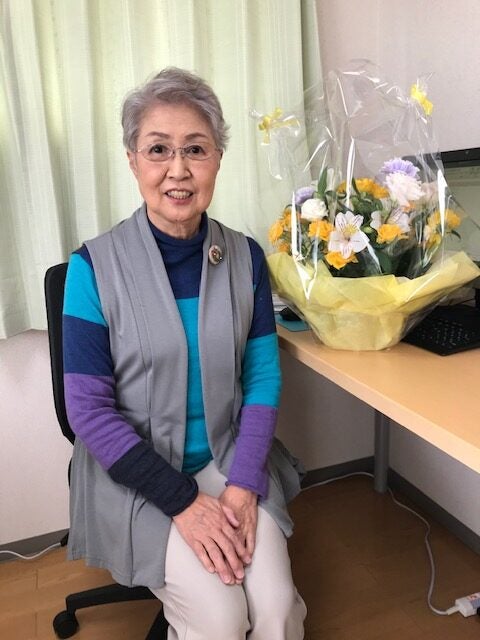
Teruko Karikome
Teruko Karikome, founder and former Executive Director (2007~2019) of NPO Women’s Space Fukushima (https://www.npo-womensspacefukushima.com/, formerly, Association Supporting Women’s Independence), Koriyama City, Fukushima Prefecture. She has long and extensive experience promoting women’s rights and wellbeing including previously serving as the Director of the Koriyama City’s Maternal and Child Welfare Center. Following the Great East Japan Disaster in 2011, her NPO managed “Women’s Space” in the biggest evacuation shelter in Fukushima, and continues to operate programs such as telephone counseling, support groups, and workshops on gender-based violence, while advocating for policy attention to women in Fukushima. Although she stepped down from the Executive Director, she continues to be actively involved in the growing program activities of Women’s Space Fukushima.
Keywords: environment, gender-based violence, reform of domestic/family roles, community activism
Media: Transcript (English, Japanese), YouTube Video (Japanese, English Subtitles)

Ke Qianting
Media: Transcript (English, Mandarin), YouTube Video (Mandarin, English Subtitles)

Sue Kedgley
Sue Kedgley was one of the early leaders of the women’s liberation movement in New Zealand.
She set up the Auckland University women’s liberation group in 1971 and the National Organisation for Women in 1972. She helped organise a high-profile tour of internationally acclaimed feminist Germaine Greer to New Zealand in 1972 and co-authored the first book about women’s liberation in New Zealand, entitled Sexist Society.
Kedgley attended the first international feminist conference at Boston in 1973 and then worked as a Communications Officer in the Women’s Secretariat at the United Nations, New York, helping to organise the first international women’s conference at Mexico City in 1975 and coordinate International Women’s Year 1975. She helped set up the UN women’s group and was active in it for the 8 years she worked at the United Nations. She was Assistant Secretary of the second United Nations Conference for Women, which was held in Copenhagen in 1980.
Returning to New Zealand in 1982, she worked for a decade as a television reporter, director, and producer, then entered local politics as a Wellington City Councillor from 1992 until 1999 when she was elected a Member of Parliament (MP) for the Green Party, serving as an MP from 1999 until 2011. She was women’s spokesperson for the Green party and Deputy Chairperson (1999-2005) and subsequently Chairperson of the New Zealand Parliament Health Select Committee (2005-2008). Sue was a Wellington Regional Councillor for six years and has served on several boards, including the National Board of UN Women Aotearoa New Zealand. She continues to be active in women’s issues and is a Convenor at the National Organisation for Women New Zealand.
Kedgley has written six books on feminist issues, including Sexist Society (1972; co-edited with Sharon Cederman), Mum’s the Word: The Untold Story of Motherhood in New Zealand (1996), and most recently, a memoir entitled Fifty Years a Feminist (2021). In 2016, she received a New Zealand Women of Influence Award in recognition of her work towards greater gender diversity in the workplace, and in 2020, she was appointed an Officer of the New Zealand Order of Merit (ONZM) for services to women and governance.
Keywords: community activism, politics and the law, reform of domestic/family roles
Media: Transcript, YouTube Video

Gudrun Koch
Gudrun Koch was born in Kolberg in East Pomerania in 1945. She studied education in Dortmund and Berlin 1964-1970, and became a secondary school teacher of German and history, after passing the state exams. She taught from 1967-73, and in 1974 began postgraduate studies in social sciences and adult education, taught adult education, and during that same period was a co-founder of the Women’s Action Dortmund (FAD). She engaged in practical theater training in the late 1970s in Berlin, and in the 1980s pursued both theater studies and experimental theater work in Paris. Beginning in 1990 (and continuing through 2006) she worked on the establishment of a European women’s cultural association, which was the external link of European Women’s Action (EFA) eV Berlin. She planned and implemented events in Europe and North Africa, and also worked on documentaries.
Keywords: academia and women's studies, politics and the law, art/writing as activism, reform of domestic/family roles
Media: Transcript (English, German), Video, YouTube Video (German, English), Name Pronunciation Audio
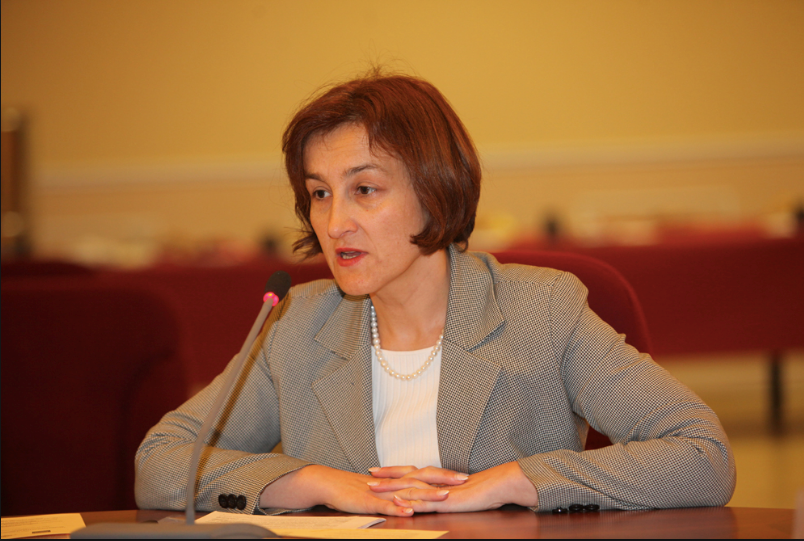
Yelena Viktorovna Kochkina
Yelena Viktorovna Kochkina, born in 1956, began working in gender research in 1990. Her work focuses on a gender analysis of legal reform in Russia, structural adjustment programs and the implementation of equal opportunity policies in Russia, as well as gender in the Russian education system. She is a research fellow and professor at the Institute of Social and Economic Studies of the Population at the Russian Academy of Sciences.
Keywords: academia and women's studies, politics and the law, intersectionality, community activism, reform of domestic/family roles, feminist conferences
Media: Transcript (English, Russian), YouTube Video (English, Russian), Name Pronunciation Audio
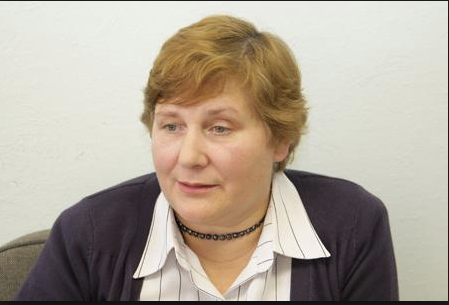
Mariia Grigor’evna Kotovskaia
Mariia Grigor'evna Kotovskaia, born in 1952, is a professor, ethnographer, and anthropologist. She began to research issues related to women and gender in the 1990s and became one of the founders of the Group for Ethno-Gender Research (at the Institute of Ethnology and Anthropology at the Russian Academy of Sciences). She is on several councils and commissions, particularly for issues such as migration and immigration, family and youth, and women in leadership.
Keywords: academia and women's studies, international rights, feminist conferences
Media: Transcript (English, Russian), Video (English, Russian), YouTube Video (English, Russian), Name Pronunciation Audio
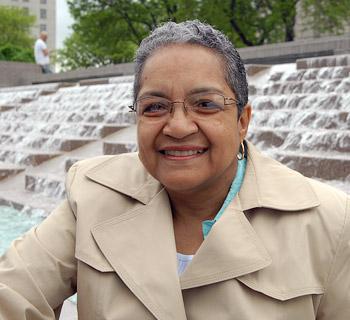
Marian Kramer
Marian Kramer (interviewed with Maureen Taylor) at last contact was the co-chair of the National Welfare Rights Union. She has fought government programs, such as Workfare, defended poor women against unjust persecution for welfare fraud and led campaigns to elect the victims of poverty to political office. She has organized poor people's movements, housing takeovers by people without homes, and led efforts to unionize in the South. She has received many community service awards and mentors college students fighting poverty. Taylor and Kramer spoke at a rally in Detroit, Michigan in June 2020, and a video of their speech recorded by the group Detroit Will Breathe can be found here.
Keywords: gender and health, media, community activism, politics and the law
Media: Transcript (English), Video, Bibliography, YouTube Video, Name Pronunciation Audio

Anna Kulaya
Anna Meela Kulaya was born in 1975 in Tanzania, and has spent almost twenty years serving her community through her work in the legal sector especially on issues around gender-based violence in the community and workplace. She holds LLB and Master of Law degrees from the University of Dar es Salaam. She is an advocate of the High Court of the United Republic of Tanzania. She began working for Women in Law and Development in Africa (WiLDAF) as a legal officer and subsequently held various positions within the same organization; she is currently the National Coordinator of WiLDAF Tanzania. Kulaya serves on various boards, and coordinates the 16 Days of Activism Campaign against GBV in Tanzania and its national campaign. She was the chairperson of the Legal Aid Committee of the Tanganyika Law Society, and is currently serving in a network for legal aid providers (TANLAP), and in the Tanzania Association of Non- Governmental Organizations (TANGO), an association with more than 100 Civil Society Organizations. She also leads Her Initiatives, a dynamic organization advocating for young women rights, chairperson of My Legacy and currently serves as a chairperson of CSO’S Women Directors Forum, which brings together more than 50 women Directors from the non-governmental organizations advocating for gender equality and women empowerment. She is also a member of the Committee of GBV Multi-Sectoral COORDINATED by the Ministry of Health, Community Development, Gender, Elderly and Children (MoHDEC). She is also a member of the Tanganyika Law Society.
Keywords: activism during the COVID-19 pandemic, gender-based violence, community activism
Media: Transcript, YouTube Video

Barbara Labuda
Barbara Labuda was born in 1949 and studied Romance languages in Poznan, Poland as well as Ecole Normale Superieure in Paris, France. Labuda became active in anti-communist organizations in the 1970s for which she was imprisoned in 1982. In 1996, she began serving in President Aleksander Kwasniewski's Cabinet. She admits that the anticommunist organizations with which she worked did not support women's rights.
Keywords: imprisonment, politics and the law, reproductive rights
Media: Transcript (English, Polish), Video (English, Polish), Bibliography, English YouTube Video, Name Pronunciation Audio

Lata Pratibha Madhukar
Lata Pratibha Madhukar, born in 1955, has worked as an anchorperson for the radio in Maharashtra, a research assistant in the Research Centre for Women's Studies, and later an activist at the Women's Centre. She joined Narmada Bachao Andolan for environmental rights and became the national convenor for the National Alliance of People's Movements.
Keywords: academia and women's studies, gender-based violence
Media: Transcript (English), Video, Bibliography, YouTube Video, Name Pronunciation Audio

Li Huiying
Li Huiying, born in 1957, is Professor of Sociology and assistant Director of the Women Research Center of the Central Party School, providing training for senior level Chinese Communist Party officials. She has succeeded in incorporating courses on gender studies in the official curriculum and runs feminist workshops for faculty nationwide.
Keywords: feminist conferences, academia and women's studies, education, politics and the law, reform of domestic/family roles, rural women and land reform
Media: Transcript (English, Mandarin), Video (English, Mandarin), Bibliography, YouTube Video (Mandarin, English Dubbed), Name Pronunciation Audio
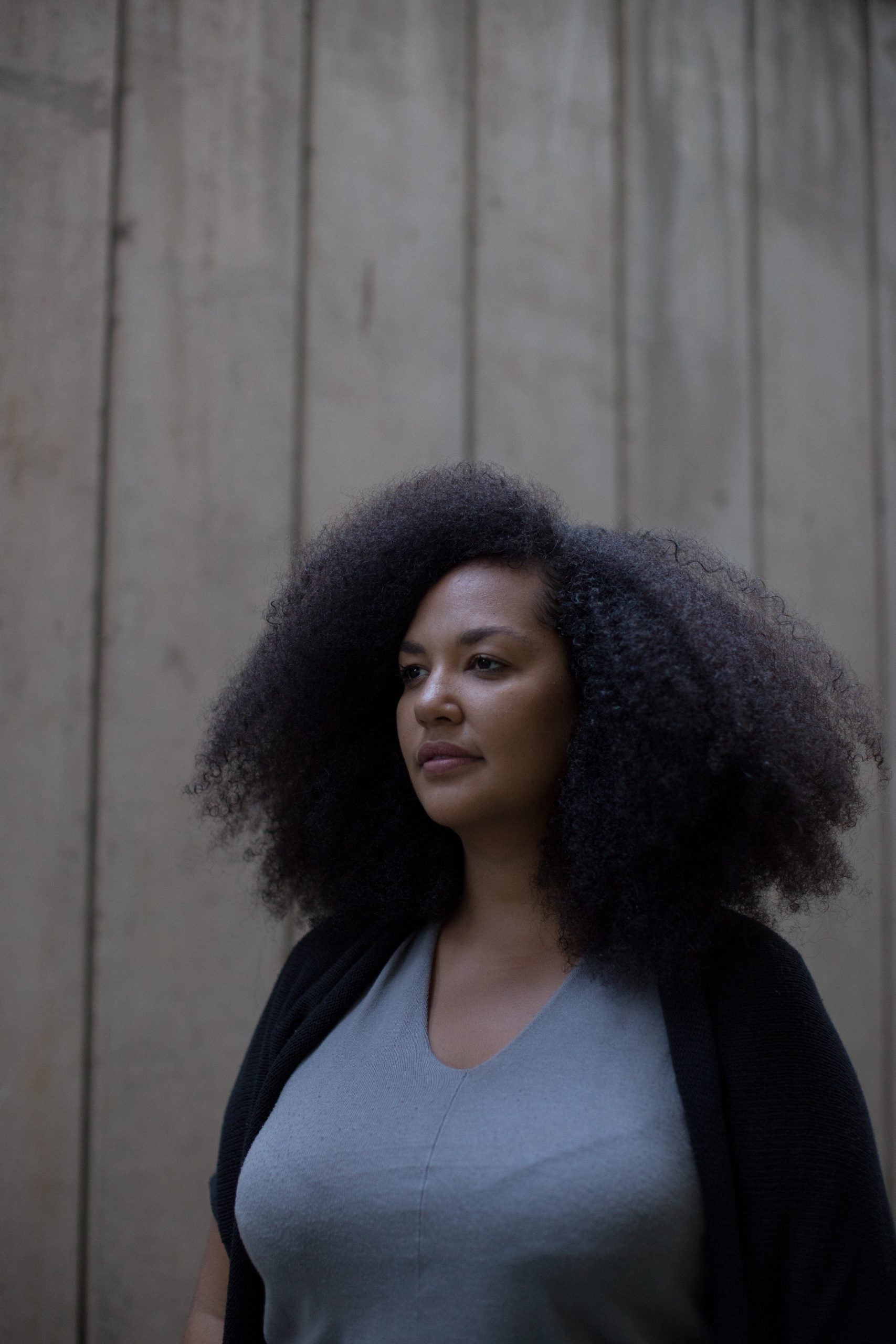
Diane Lima
Diane Lima was born in 1986 in Mundo Novo, Bahia, Brazil and is an independent curator and creative director. She holds a Master of Arts in Communication and Semiotics from the Pontifical Catholic University of São Paulo (PUC-SP) and her work focuses on experimenting with multidisciplinary artistic and curatorial practices, developing collective learning devices with a focus on knowledge creation and production processes. In 2014, she founded the NoBrasil (InBrazil) platform, created the “Leave the Girl's Hair in the World” campaign (campanha “Deixa o Cabelo da Menina no Mundo”), and the AfroTranscendence project, an immersion program in creative processes to promote contemporary Afro-Brazilian culture. The project produced the short film Tempo de Cura (Healing Time) that was screened in several Brazilian film festivals. Between 2016 and 2017, Lima curated the Vale do Silício African Film Festival, created A. Gentes, an immersion program on racial issues for the employees of Itaú Cultural, in addition tobeing the curator -at the same institution-of Diálogos Ausentes (Absent Dialogues), a project that for a year and a half discussed the presence of black people in different areas. The project culminated with a homonymous exhibition in the cities of São Paulo and Rio de Janeiro. In 2018 she was the curator of the Valongo International Image Festival, a member of the Art Critics Group of the CCSP –São Paulo Cultural Center, in addition to be a jury member on several selection and award commissions such as Bravo Award!, the award EDP in the Arts from the Tomie Ohtake institute and of Artsonica from Oi Futuro. Lima also collaborated for the Bravo! Magazine and in 2018 published a text in the Anthology Afro-Atlantic Histories of the MASP -São Paulo Art Museum.
Keywords: media, racial identity, art/writing as activism
Media: Transcript (Portuguese, English), Video, YouTube Video (Portuguese, English Subtitles)

Barbara Limanowska
Barbara Limanowska was born in 1958 and studied Art History at the Adam Mickiewicz University in Poznan. In 1984, she immigrated to Holland where she participated in the squatter movement and collaborated on feminist projects in Poland. She returned to Poland and in 1993 co-founded La Strada, a foundation committed to fighting trafficking in women. She has worked with La Strada and various other anti-human trafficking organizations in Poland, Thailand, and the former Yugoslavia.
Keywords: gender-based violence, feminist conferences, human trafficking/prostitution
Media: Transcript (English, Polish), Video (English, Polish), Bibliography, English YouTube Video, Name Pronunciation Audio
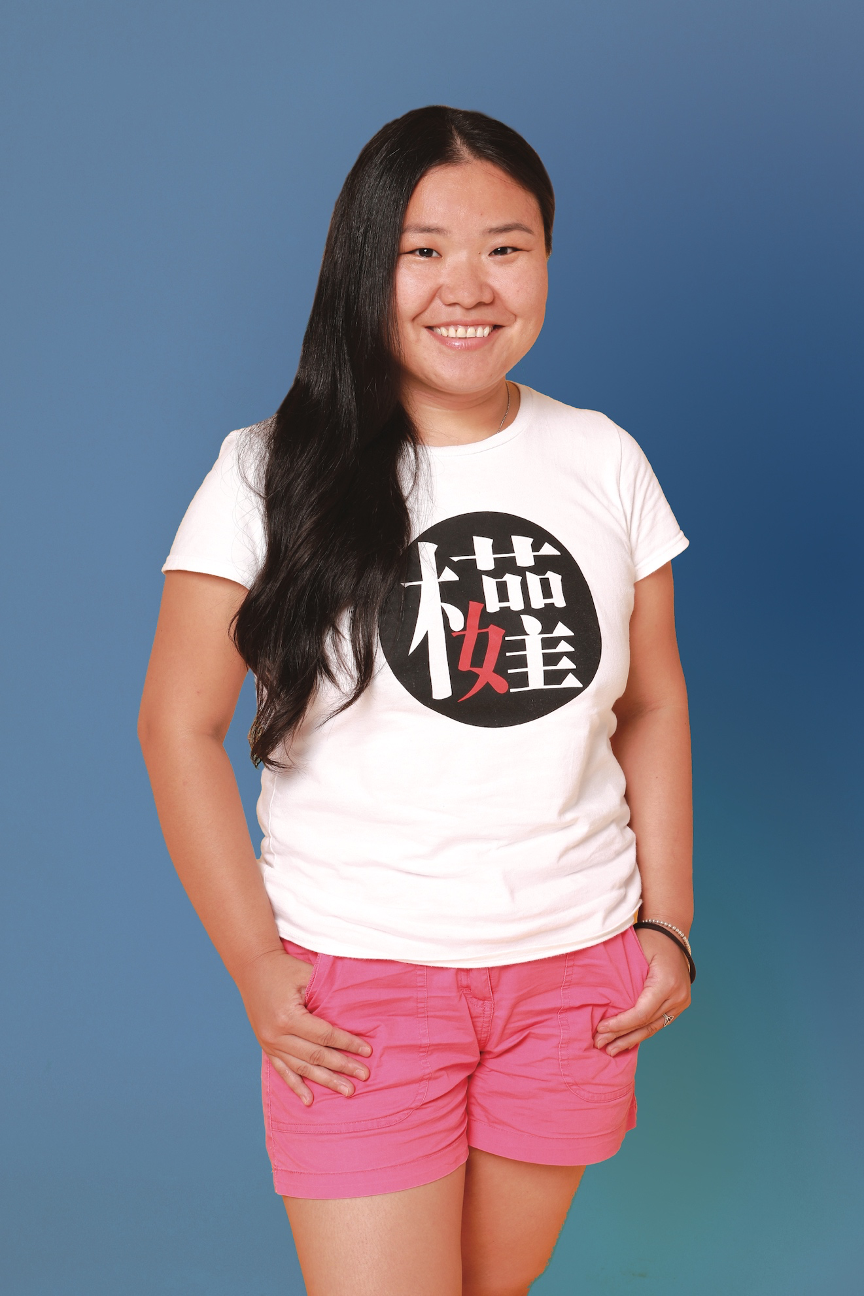
Sanshan (Joy) Lin
In April 1987, Sanshan Lin (Joy Lin) was born in a small village in Yongji County Jilin Province. After graduating with a bachelor degree in sociology in Northeast Normal University, she went to Shanghai and started her career in executive search industry. In November 2016, she founded 我们与平权 Wequality, a feminist organization dedicated to raising public awareness of gender inequality in China, building community, and empowering members to unite to make gender equality a reality. Through regular WeChat articles and online/offline activities, Wequality continues its advocacy. In 2018, Wequality initiated “Our Stories” project to release interview reports annually with people’s experiences and opinions on different gender issues in China. The one on sexual harassment was released in 2019 while another on gender discrimination in 2020.
Keywords: community activism, education, gender-based violence
Media: Transcript (English, Mandarin)

Matilde Lindo
Matilde Lindo (1954-2013) was a feminist leader, teacher, sociologist and activist who focused on issues of violence and discrimination against women and racial discrimination within Nicaragua. She was a proud representative of the black population from the Rosita Mines region. She helped to start a radio program that aimed to raise awareness about violence against women as a violation of women's rights and lead the Network of Women Against Violence during the later years of her life. The GFP staff note with sadness the death of Matilde in 2013. A public obituary celebrating her life and detailing her dedication to women's rights can be found here (Spanish).
Keywords: feminist conferences, gender and health, education, intersectionality
Media: Transcript (English), Video, Bibliography, YouTube Video, Name Pronunciation Audio
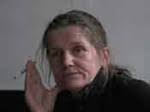
Anna Lipowska-Teutsch
Anna Lipowska-Teutsch was born in 1944 in Warsaw, Poland. She graduated with a Master of Arts in Psychology from the Jagiellonian University in Cracow in 1969. She worked for the Acute Poisoning Clinic in Cracow where she counseled victims of suicide, especially women who had been victimized by family members. In 1990, she co-founded the Society for Crisis Intervention designed to intervene in cases of domestic violence. Since 2002, she has also worked for the rights of Roma (a.k.a. "gypsies") women in Poland.
Keywords: gender-based violence
Media: Transcript (English, Polish), Video (English, Polish), Bibliography, English YouTube Video, Name Pronunciation Audio
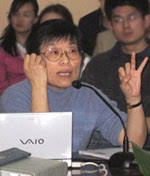
Liu Bohong
Liu Bohong, born in 1951, is Deputy Director of the Institute of Research on Women of the All-China Women's Federation, circulating feminism and promoting gender-awareness in the Chinese government system, notably formulating national programs that implement the 1995 UN Platform for Action.
Keywords: academia and women's studies, education, gender-based violence, politics and the law, reproductive rights, rural women and land reform
Media: Transcript (English, Mandarin), Video (English, Mandarin), Bibliography, YouTube Video (Mandarin, English Dubbed), Name Pronunciation Audio

Anita Lombardi
Anita Lombardi was born in Vittorio Veneto in 1988. She graduated from college with a degree in Philosophy and works as a freelancer. She works as the Secretary of the Board of the Lesbian Association in Bologna.
Keywords: LGBTQ+ rights, intersectionality
Media: Transcript (Italian, English), YouTube Video (Italian, English Subtitles)
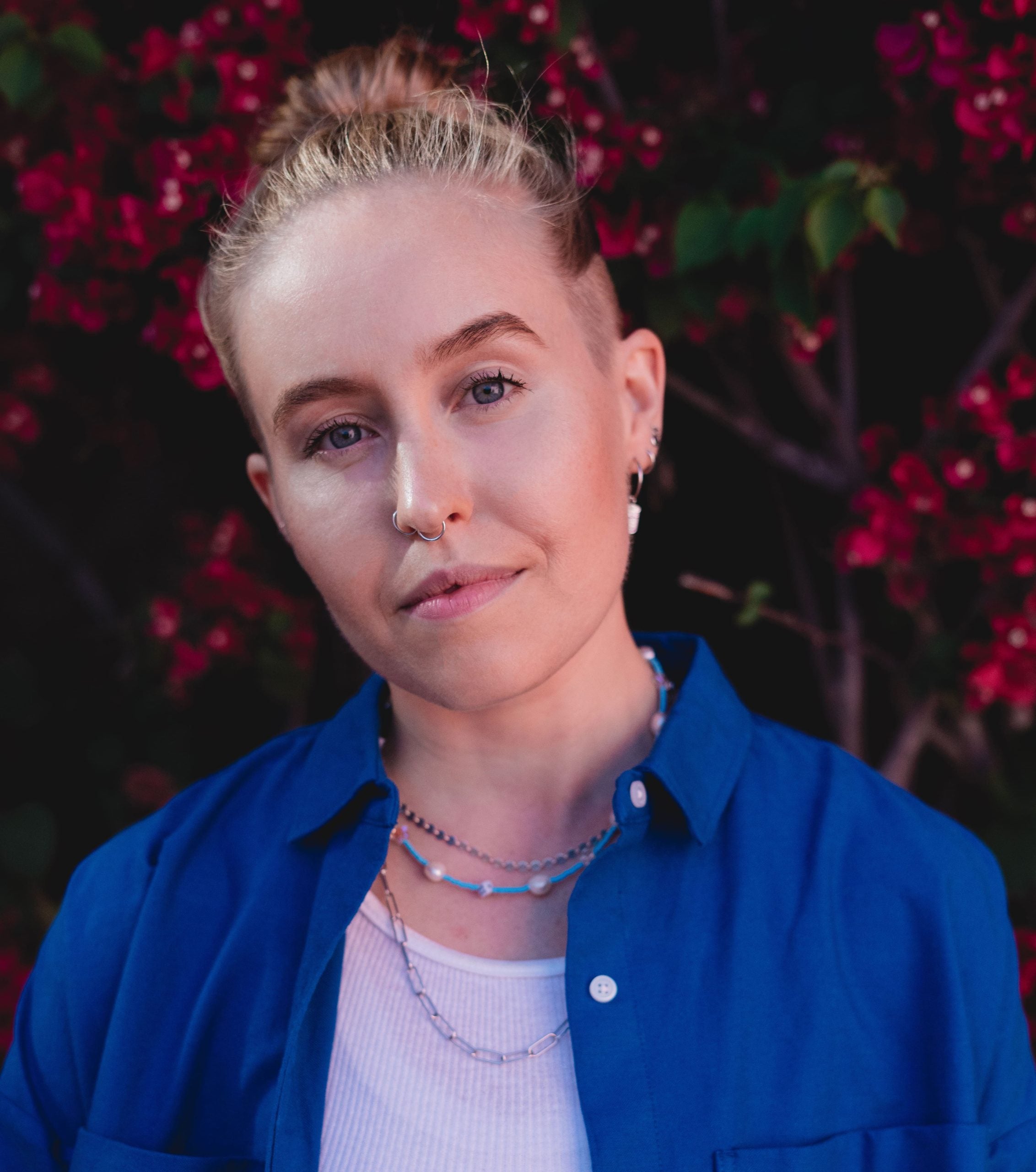
Fiona Lowenstein
Fiona Lowenstein, born in 1993, is an award-winning independent journalist, producer, and speaker, covering health justice, wellness culture, LGBTQ+ issues and more. Their work has appeared in The New York Times, Teen Vogue, Vox, The Guardian, and Business Insider, among other publications. Fiona is the founder of Body Politic – home of the original Long COVID support group. They are also the editor of the recently published anthology, THE LONG COVID SURVIVAL GUIDE, out November 2022 from The Experiment. Photo credit: JJ Geiger
Keywords: activism during the COVID-19 pandemic, community activism, disability rights, gender and health, intersectionality, media
Media: Transcript (English), YouTube Video, Name Pronunciation Audio

Marina Mikhailovna Malysheva
Marina Mikhailovna Malysheva, born in 1957, is an economist, and at last contact was working as a senior researcher at the Institute of Social Economic Studies of the Population at the Russian Academy of Sciences (ISESP RAS). She was involved in the creation of the Moscow Center of Gender Research in 1990, which was founded to conduct research on essential social issues, to perform gender analyses for social projects and legislative frameworks, and to address gender discrimination in all spheres of society. Malysheva’s professional interests included gender and economics, and gender and family sociology. The GFP staff note with sadness Marina's death in 2019.
Keywords: academia and women's studies
Media: Transcript (English, Russian), Video (Russian), YouTube Video (English, Russian) Name Pronunciation Audio
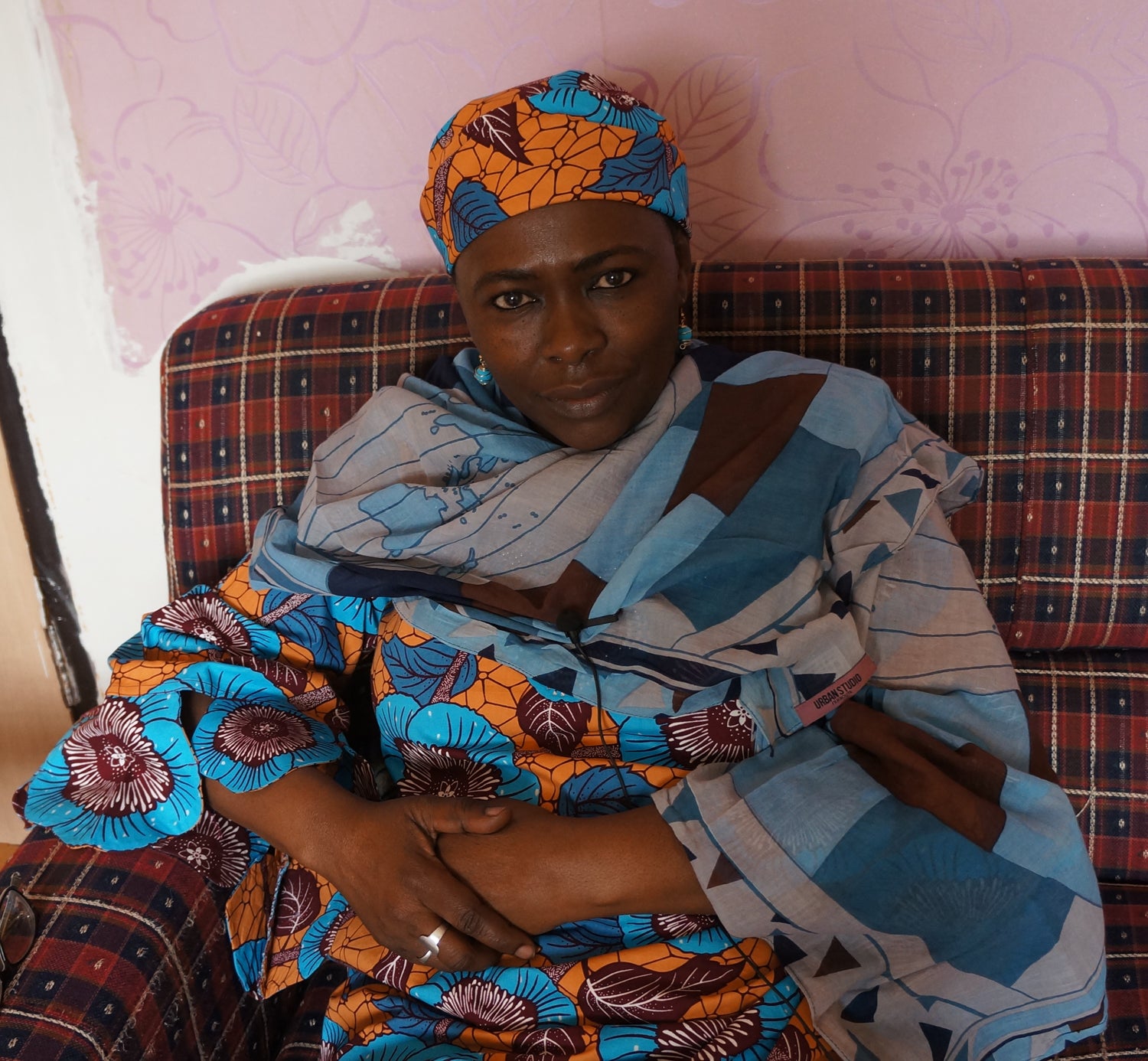
Dr. Mairo Usman Mandara
Dr. Mairo Usman Mandara was born on June 5, 1965, in Bukuru, just outside of Jos, the capital of Plateau State, Nigeria. She first attended primary school in Bukuru and continued her post-secondary education at the University of Jos. There she studied medicine, specifically women’s health issues, an interest that expanded to include the socio-economic issues associated with women’s health such as VVF (vesico-vaginal fistula), e.g., early marriage and stunting due to malnutrition. Her work as an obstetric-gynaecologist led to a broader feminist concern with girl-child education, the founding of the Federation of Muslim Women of Nigeria (FOMWAN), and with the NGO, Girl-Child Concerns. Between 2005 and 2010, Dr. Mandara was a Senior Country Adviser in Nigeria to the David and Lucile Packard Foundation and more recently worked with the Bill & Melinda Gates Foundation as the Country Representative to Nigeria. Her current activist and scholarly work reflect her belief in the importance of working with traditional political and religious leaders in encouraging parents to enable their daughters to complete their secondary school education.
Keywords: gender and health, reform of domestic/family roles, academia and women's studies, feminist conferences
Media: Name Pronunciation Audio, Transcript, Video, YouTube Video
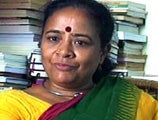
Mangai
Mangai is the pseudonym of Padma (born in 1959) who is a theatre director and Professor of English Literature in Stella Mary's College. As a member of the All India Democratic Women's Association and Chennai Kalai Kuzhu, Mangai translates social issues into street theatre and stage plays, becoming the key person in a group called Voicing Silence.
Keywords: feminist conferences, environment, art/writing as activism
Media: Transcript (English), Video, Bibliography, YouTube Video, Name Pronunciation Audio

Elisa Manici
Elisa Manici was born in La Spezia in 1975. She received her master’s degree in journalism from the University of Bologna. She works as a penniless journalist and temporary librarian. She has been involved in various groups, including Leftist Youth, ArciLesbica, and Cassero.
Keywords: LGBTQ+ rights, intersectionality, politics and the law
Media: Transcript (Italian, English), YouTube Video (Italian, English Subtitles)
Salma Maoulidi
Salma Maoulidi identifies as a feminist, public intellectual, and has roots in women’s and civil society movements within the region and globally. Maoulidi is a graduate of the University of Dar es Salaam (LLB); and Georgetown University Law School. Maoulidi grew up in the emerging women’s and later feminist movement in the late eighties in Tanzania. She was thus in the midst of pioneering initiatives ushered in by the new rights dispensation, including serving as the first legal counsellor at the TAMWA crisis centre, providing legal assistance to survivors of GBV. Maoulidi’s roots in Tanzania’s grassroots movement are reflected in her long engagement with civil society initiatives. She is the founding member of Sahiba Sisters Foundation and supports the Foundation for Civil Society to engage Zanzibar CSOs in policy engagement. She also worked with the former East Africa Support Unit for NGOs since 1997 as an OD consultant.
Maoulidi has prioritised working with the global at local levels. She has worked with global initiatives/bodies such as Oxfam Tanzania; Ireland Aid; and Plan International.
Maoulidi has also worked on local initiatives. She has many publications
Keywords: community activism, gender-based violence, media, reform of domestic/family roles
Media: Transcript, YouTube Video
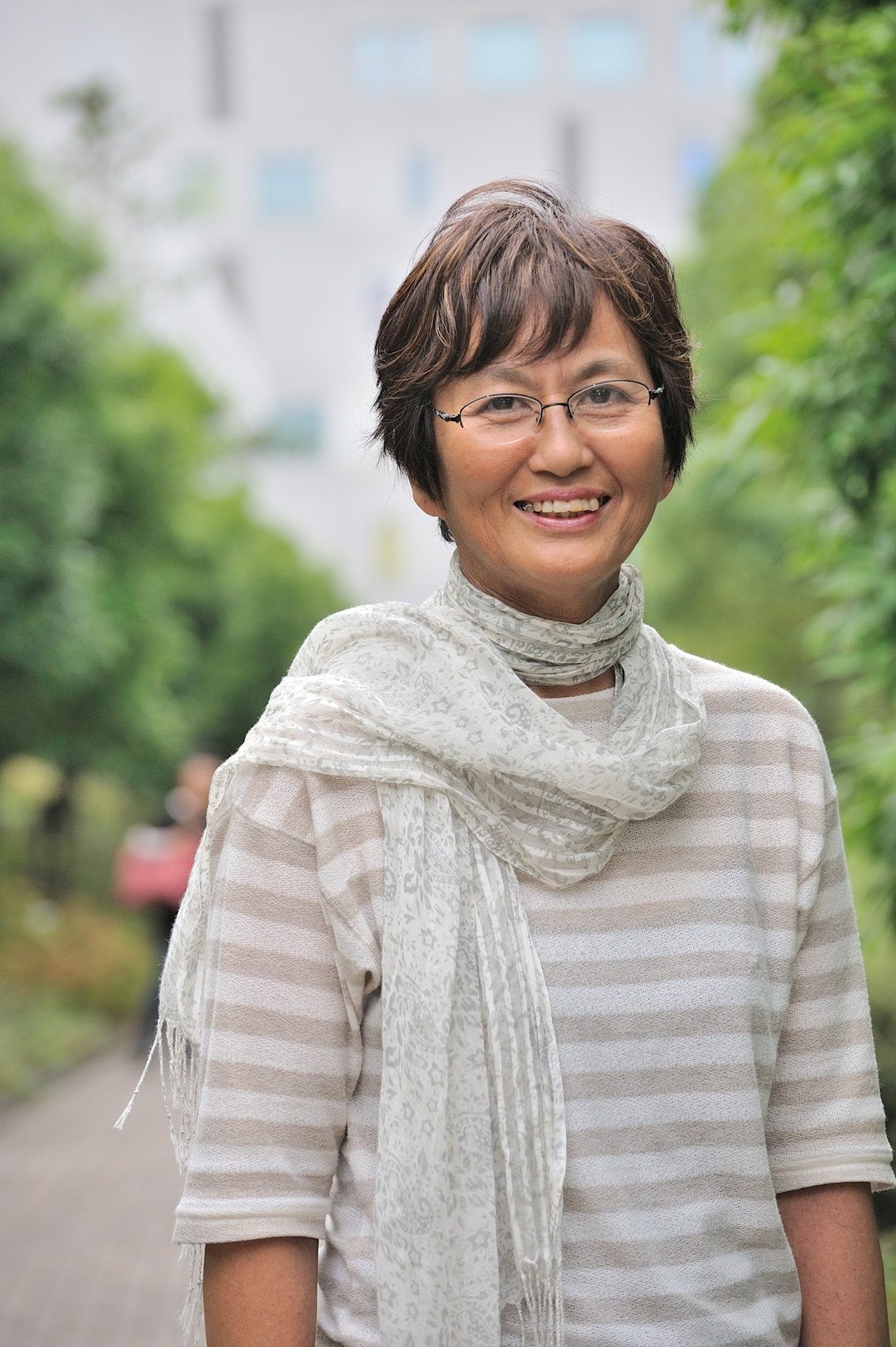
Reiko Masai
Reiko Masai, founder and Executive Director of NPO Women’s Net Kobe, Kobe City, Hyogo Prefecture, the first group in Japan to call attention to disaster-related gender-based violence and published reports documenting women’s experiences, including Women talk about the Great Hanshin-Awaji Earthquake (English translation available at https://wn-kobe.or.jp/bosai/eng/index.html). For over thirty years, Ms. Masai has worked to promote women’s rights and gender equality in Japan. In 2007, she launched Disaster & Gender Information Network, the first initiative of its kind in Japan, and co-founded Women's Network for East Japan Disaster in 2011 (http://risetogetherjp.org/?cat=46), also the first of its kind, advocating for more inclusive disaster response. For her tenacious activism, she has received numerous awards, including Kato Shizue Award in 2003 and the Champion of Change Japan Award from the Fish Family Foundation in 2018.
Keywords: gender-based violence, community activism, gender and health
Media: Transcript (English, Japanese), YouTube Video (Japanese, English Subtitles)
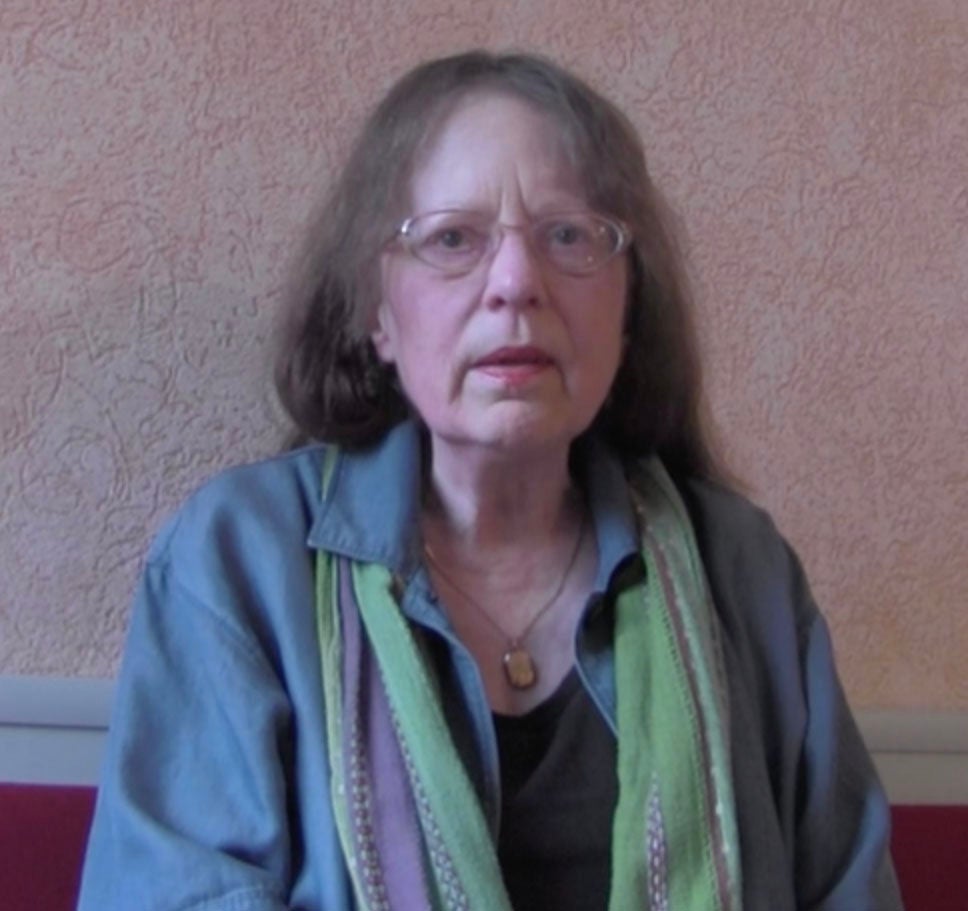
Eva Maria
Born in 1949, Eva Maria grew up in Frankfurt on Main. After graduating from high school and apprenticing as a bank clerk, she left home in 1971. She was a university student in Marburg, until 1977 when she moved to Berlin. She was active in different gay and lesbian groups throughout this period, and collaboratively created the first Lesbian Week in Berlin in 1985. Eventually she was very much involved with BEGINE in Berlin.
Keywords: LGBTQ rights, art/writing as activism
Media: Transcript (English, German), Video, YouTube Video (German, English), Name Pronunciation Audio
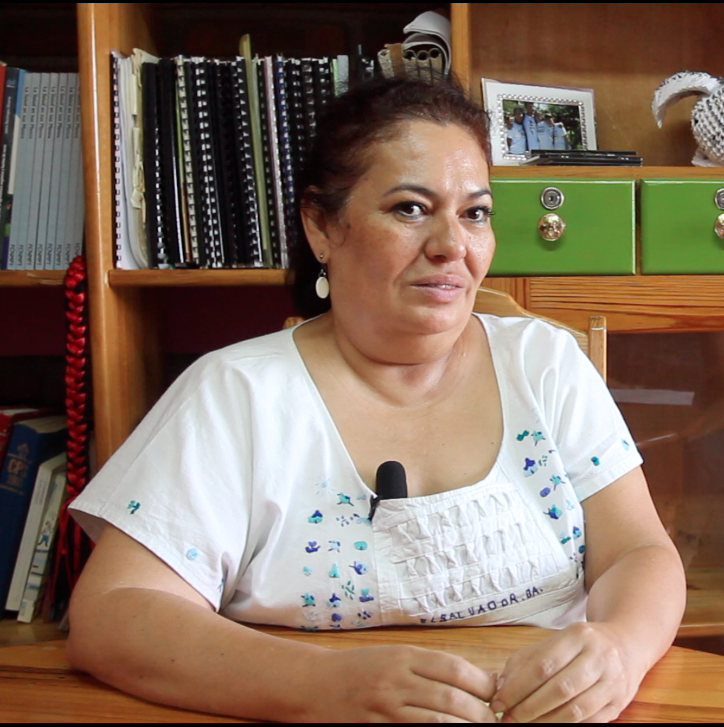
Diana Martínez
Diana Martínez was born in 1958, and became active in the Sandinista movement as a student, finishing high school in Guatemala and becoming a Marxist. After the Sandinista Revolution, she returned to Nicaragua and worked in the textile industry based on her belief in the importance of laborers, and in an effort to rid herself of her bourgeois past. She has been involved with feminist research in Nicaragua, and at last contact was a director at La Fem, a coffee cooperative for women in Estelí.
Keywords: gender and health, rural women and land reform, reproductive rights, academia and women's studies
Media: Transcript (English, Spanish), Video, Name Pronunciation Audio

Qiane Matata-Sipu
Qiane Matata-Sipu (Te Waiohua Te Ahiwaru me Te Ākitai, Waikato, Ngāpuhi, Ngāti Pikiao, Rarotonga, Mangaia) is an esteemed Māori-Pasifika creative, storyteller, strategist and award-winning journalist and photographer. The impact-driven social activist and cultural commentator is all about disrupting the mainstream approach to amplify the voices of marginalised people and their communities to change the narrative for future generations. With a long career contributing to leading media publications and books across Aotearoa and the Pacific, Qiane is a regular guest speaker at women’s, education, arts, business, and leadership events. She is the founder and director of NUKU, a social enterprise championing Indigenous women through podcasts, live events, video and a book, and her multi-media production company QIANE+co. She is also a founding member and co-leader of SOUL Protect Ihumātao. In 2021, Qiane was awarded the Women of Influence Arts and Culture Award, and in 2023 became a Member of the New Zealand Order of Merit (MNZM) for services to the arts. Her first book NUKU: Stories of 100 Indigenous Women was shortlisted in the 2022 Ockham New Zealand Book Awards for Illustrated Non-Fiction and the PANZ book design awards.
Keywords: art/writing as activism, indigenous issues, intersectionality
Media: Transcript, YouTube Video
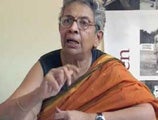
Vina Mazumdar
1927-2013
Vina Mazumdar (1927-2013) was a professor and past fellow of the Indian Institute of Advanced Studies, serving on the Committee on the Status of Women in India and later directing the Programme of Women's Studies at the Indian Council of Social Science Research. She founded the Centre for Women's Development Studies and became its Chairperson. The GFP staff note with sadness the death of Vina in 2013. To learn more about her contribution to women's movement in India, read her public obituary written in The Hindu Paper.
Keywords: feminist conferences, academia and women's studies, rural women and land reform, politics and the law
Media: Transcript (English), YouTube Video, Video, Bibliography, Name Pronunciation Audio

Marjorie Mbilinyi
Marjorie Mbilinyi was born in New York in 1943 and became a Tanzanian citizen in 1967. She studied at Cornell University (BSc Child Development); Stanford University (MA Ed) and University of Dar es Salaam (PhD). She is a gender activist, scholar and feminist committed to the promotion of gender equity and social justice through policy analysis, writing, organising and mentoring. She is a co-founder of several feminist organizations and activist networks in Tanzania and Africa, including the Feminist Activist Coalition, and Gender and Economic Reforms in Africa, (GERA) Accra, HakiElimu; Women Dignity; Tanzania Participatory Research Network and African Participatory Research Networks; and she was the co-founder and first convenor and director respectively of Women’s Research and Documentation Project (WRDP) and Tanzania Gender Network Programme (TGNP), where she became the Principal Policy Analyst and provided leadership for transformative feminist movement building, participatory gender budget processes and participatory action research at grassroots and national level. Mbilinyi taught at the University of Dar es Salaam. She introduced gender and feminist studies and participatory pedagogy and research methodology in graduate and undergraduate courses, through supervision of independent research theses at MA and PHD level, and numerous writings and research. Mbilinyi is author of many publications.
Keywords: art/writing as activism, education, intersectionality
Media: Transcript, YouTube Video
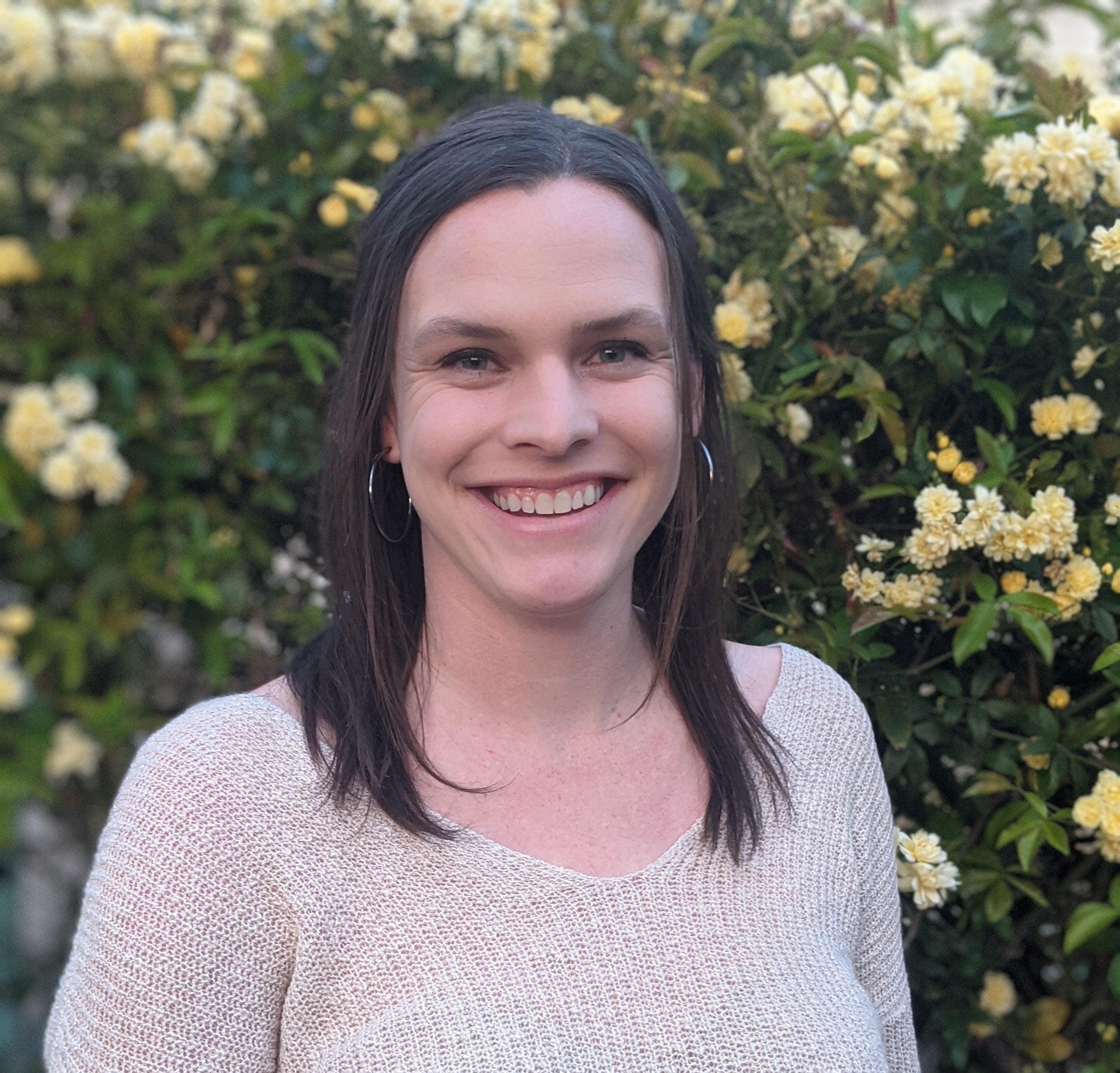
Lisa McCorkell
Lisa McCorkell, MPP, born in 1992, is the co-founder of the Patient-Led Research Collaborative (PLRC), a group of people with Long COVID who conduct research on Long COVID. She has presented PLRC's work to Congress, NIH, CDC, the President's COVID-19 Health Equity Task Force, and more, and has co-authored several research papers and chapters on Long COVID. She is a policy expert, with a background in social safety net, public health, labor policy, advocacy, writing, and research. She has a Masters of Public Policy from UC Berkeley and a Bachelor of Arts in Political Science from UCLA.
Keywords: activism during the COVID-19 pandemic, gender and health
Media: Transcript (English), YouTube Video, Name Pronunciation Audio

Netia McCray
Netia McCray is an educator whose global non-profit organization, Mbadika (bah-GEE-kah), has helped thousands bring their ideas to reality through leveraging STEM. For over 10 years, Netia has worked to demystify STEM in order to make it accessible to typically disadvantaged groups. As a March 2020 Longhauler, she has witnessed first hand the short and long term devastation that Long COVID has brought to not only her community but to communities worldwide. Netia believes knowledge is power and being able to obtain appropriate care and support starts with equitable access. Through her work with C-19 LAP, she utilizes her educational background to demystify Long COVID and recovery for communities like hers that shouldered the burden of the COVID pandemic.
Keywords: activism during the COVID-19 pandemic, education, intersectionality
Media: Transcript (English), YouTube Video, Name Pronunciation Audio

Ruth Meena
Prof. Ruth Meena (known as Dada Ruti) was born in Moshi in 1946; she is a feminist, human right activist, scholar and author of several publications on gender and women empowerment. She was the first female Tanzanian Professor at the Department of Political Science and Public Administration and served 27 years at University of Dar es salaam, after serving 9 years at both teachers colleges and secondary schools. In 1991 she coordinated the Gender Program for East and Southern Africa under SAPES, based in Harare, Zimbabwe, forming a network of scholars that produced a book titled Southern Africa, Conceptual and Theoretical Issues. She is a co-founder and the first chairperson of the board of Environmental and Human Rights, Care and Gender Organization, an active member of the Tanzania Gender Networking Program (TGNP) co-founder and member of the Board of Trustees of the Women Fund-Trust, (WFT-Trust). In 2013 she actively engaged in the women’s rights movement in demanding incorporation of women’s rights in the constitutional review process. She has published, authored or co-authored and edited various books, reports, journal articles, and papers on gender, women empowerment and feminist discourses.
Keywords: academia and women's studies, education, politics and the law
Media: Transcript, YouTube Video

Sabrina Othman Faraji
Sabrina Othman Faraji is an entrepreneur, fashion designer and activist working to promote welfare of rural women through women economic empowerment programs such as tailoring courses. She has a diploma in Business Management & Public Administration from the State University of Zanzibar, Tanzania. In her work, Faraji encourages entrepreneurship skills among women living with HIV, and recruits some of the trained women into her own enterprise (Kanga Kabisa). She also coordinates the Zanzibar International Film Festival, and many community-based activities (e.g. Marathon, beach clean-up, women empowerment workshops, hand-made crafts exhibitions for the annual Women’s Panorama of the Zanzibar International Film Festival. Faraji is the recipient of several awards including Business Woman of the Year by Zanzibar Ministry of Trade, Best Social Venture Award by the Women’s Chamber of Commerce, and Outstanding Community Service Award by the Zanzibar International Film Festival.
Keywords: education, community activism, reform of domestic/family roles
Media: Transcript (Swahili, English), YouTube Video (Swahili, English)
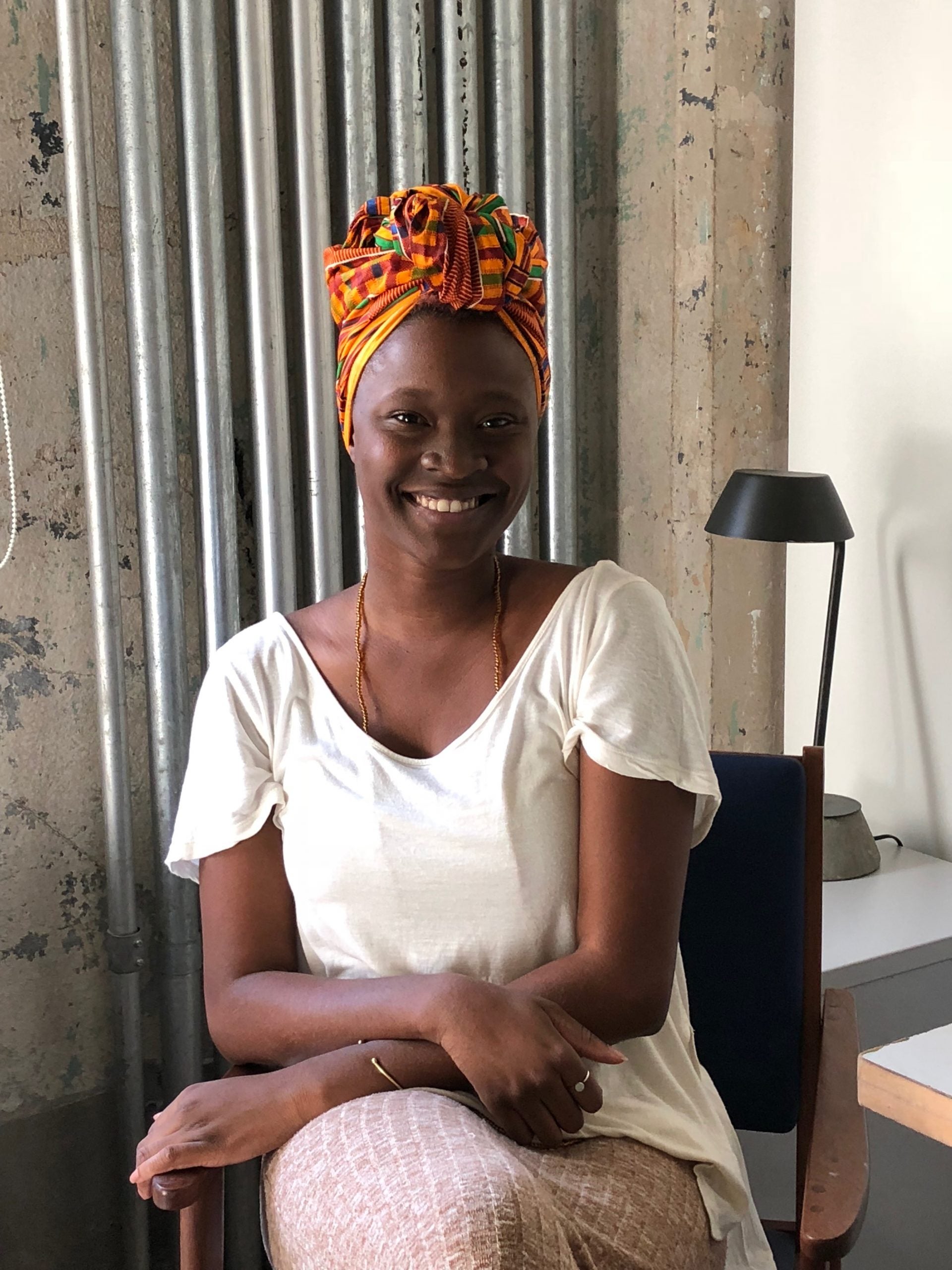
Hanayrá Negreiros
Hanayrá Negreiros was born in São Paulo and holds a master's degree in Science of Religion from PUC SP (Pontifical Catholic University of São Paulo), where she investigated the relationships between clothing, candomblé and affective memories of the community of the Redandá terreiro (Redandá candomblé house) from São Paulo. Hanayrá is a writer and researcher of diverse aesthetic languages and her main areas of study are Afro-Brazilian and African aesthetics that are manifested through dress, fashion, religiosity and family memories. She published in Blogueiras Negras, has a tumblr called O axé nas roupas (The axé in the clothes), where in her own words she “performs a mapping of memories, a cartography about Afro-Brazilian aesthetics”. In 2018 she worked as a curatorial assistant at Red Bull Station, a space for experimenting with arts and music in downtown São Paulo. Between November 2019 and March 2020, she was the curator of the exhibition Indumentárias negras em foco (Black clothing in focus), that was the result of a partnership between the Moreira Salles Institute and the Feira Preta Institute. She currently teaches seminars at the MASP-São Paulo Art Museum School and at the Adelina Institute and writes the column "Negras Maneiras" (Black Manners) at ELLE Brazil.
Keywords: racial identity, art/writing as activism, academia and women's studies
Media: Transcript (Portuguese, English), Video, YouTube Video (Portuguese, English Subtitles)

Maanda Ngoitiko
Maanda Ngoitiko was born in 1972 in Tanzania in a traditional pastoralist homestead, and grew up moving with her family and cattle. She refused early marriage efforts on her behalf, and pursued an education instead. She completed her secondary education in Dar Es Salaam; and continued to study for a diploma in Management of Community Development Programs, Arusha Tanzania. She received a further advanced diploma in Development Studies and Planning from Kimmage Development Studies Centre, Dublin, Ireland. Finally, she received a bachelor’s degree in environmental studies from Kenyatta University in Nairobi Kenya. Ngoitiko is a gender activist and a feminist who has advocating for equity, justice and the rights of Maasai women and girls. Along with 9 other pastoralist women, she founded the Pastoral Women’s Council (PWC), and she has been the Executive Director since then. She has been a councillor of the ruling political party (CCM) at the Ngorongoro District, in Arusha region since 1998. She is also an Education Coordinator for Soitsambu Cultural Learning Program under Lewis and Clarke University. She was a chairperson for the Ngorongoro District Council (2009 -2012). She sits on various boards of secondary schools, Hospital and CSOs in her home district of Ngorongoro.
Keywords: community activism, gender and health, rural women and land reform
Media: Transcript, YouTube Video

Vilma Núñez
Vilma Núñez, born in 1938, served as the first woman on Nicaragua's Supreme Court after the Sandinista Revolution. As a student, she became a member of the FSLN and participated in the anti-Somoza struggle, until she was imprisoned for these efforts in 1979. Núñez has been unofficially banished from the FSLN after running for president against Daniel Ortega and defending charges of sexual abuse against him. Núñez founded the Nicaraguan Center for Human Rights (CENIDH) in 1990.
Keywords: gender-based violence, human trafficking/prostitution, imprisonment, international rights, politics and the law
Media: Transcript (English, Spanish), Video , Bibliography, Name Pronunciation Audio
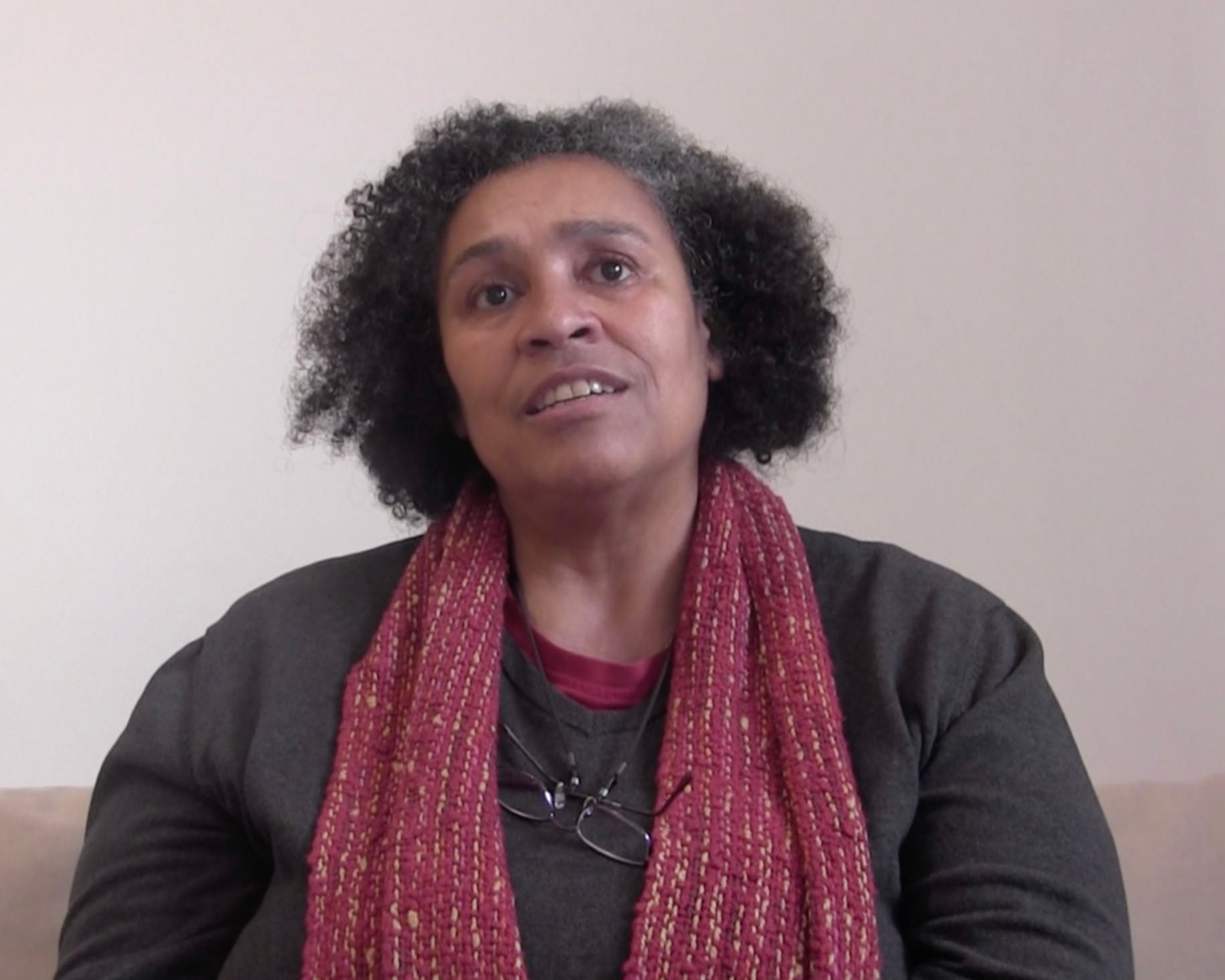
Katharina Oguntoye
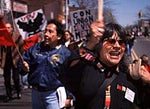
Martha Ojeda
Martha Ojeda, born in 1956, is the Executive Director of the Tri-National Coalition for Justice in the Maquiladora, where she directs the Maquiladora Worker Empowerment Project. While a worker in the Free Trade Zone factories, she led the Nuevo Laredo Sony Movement and wrote a manual on Mexican Federal Labor Law. She has received the Petra Foundation Award, "Troublemaker of the Year" by Mother Jones Magazine, and the Quality of Life Champion's Public Service Award.
Keywords: environment, international rights, intersectionality, politics and the law
Media: Transcript (English), Video, Bibliography, YouTube Video, Name Pronunciation Audio
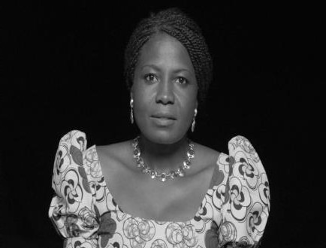
Olanike Olugboji
Olanike Olugboji, born in 1974, is the founder/director of Women’s Initiative for Sustainable Environment (WISE). While attending elementary and high schools at Command Children’s School and Federal Government College Kaduna, respectively, she developed the habit of picking up litter. Following her education in technology and urban and regional planning, she began pursuing her dream of working towards a sustainable, clean and safe environment while supporting women’s health and empowerment, through the clean cookstoves initiative. Ms. Olugbogi hopes to contribute to producing a younger generation of Nigerians that is more committed to nurturing their environment through the Women’s Initiative for Sustainable Environment (WISE).
Keywords: environment, community activism, education
Media: Name Pronunciation Audio, Transcript, Video, YouTube Video
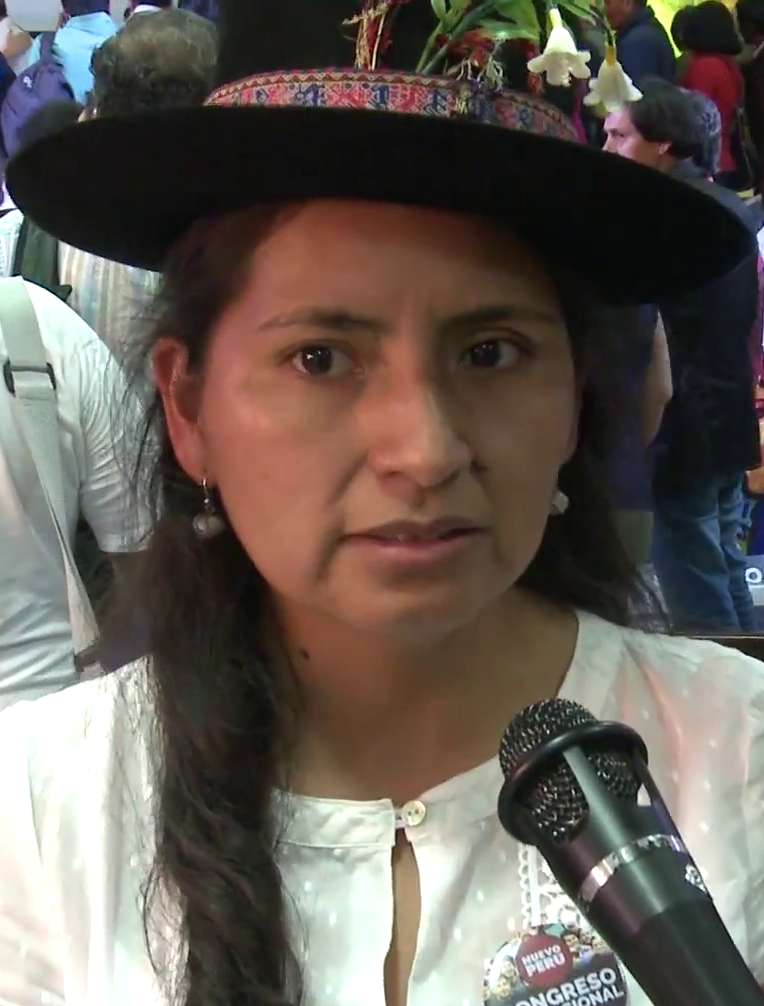
Tania Pariona Tarqui
Tania Pariona Tarqui, born in 1984, is an indigenous activist, Quechua leader, feminist, politician, human rights activist and former Congressperson. As an activist, she works to establish social equality for indigenous youth and women. She began her community work with National Movement of Organized Working Children and Adolescents of Peru (MNNATSOP), an overarching umbrella for many children’s working groups. She was chosen as a Latin American delegate and had her first experience of international representation at age 15 at the “World Summit for Children” at the United Nations in New York. She studied Social Work at the San Cristóbal of Huamanga University, graduating in 2009, and then Human Development at the Pontifical Catholic University of Peru in Lima. She went on to work with the Centre for Indigenous Cultures of Peru (CHRIAPAQ), collaborating on several projects aimed at indigenous youth and women nationally and internationally. In 2010, with Andean and Amazonian sisters, she helped form the Organización Nacional de Mujeres Andinas y Amazónicas de Perú, (ONAMIAP) that promotes the participation of indigenous women and fulfillment of their individual and collective rights. She was the first youth secretary for ONAMIAP. She was elected to the Peruvian Congress in 2016 by the Broad Front for Justice, Life and Freedom, coalition of political parties. In September 2017, she joined the New Peru movement. From 2018-2019, she was the president of the Commission on Women and Family, which promoted the first thematic plenary session focused on a women’s agenda and equality between men and women. Her parliamentary work was dedicated to the defense of the rights of indigenous and native peoples against mining companies, the human right to water and reparations for the victims of the armed conflict, and working against impunity of the perpetrators of crimes, including compulsory sterilization under Alberto Fujimori's government. She is currently assuming responsibility for the Indigenous Women’s Program in CHIRAPAQ and has concerns for the indigenous populations of the Sierra and jungle coast, in the face of the COVID-19 pandemic.
Keywords: community activism, gender-based violence, indigenous issues, reproductive rights, rural women and land reform
Media: Transcript (Spanish, English), Video, YouTube Video (Spanish, English Subtitles), Name Pronunciation Audio
Interviewee Photo Credit
By psperu. https://commons.wikimedia.org/wiki/File:Tania_Pariona_Tarqui.png. Creative Commons. Accessed 2 February, 2021.
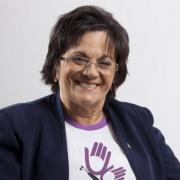
Maria da Penha Maia Fernandes
Maria da Penha Maia Fernandes was born in 1945 in Fortaleza, Ceará. She is a leader in the struggle against domestic violence in Brazil. Victimized by her husband in 1983, she was the first to successfully bring a case of domestic violence to the Inter-American Commission on Human Rights. In 2006, Brazil Federal Law 11340 was ratified, known as the "Maria da Penha Law on Domestic and Family Violence."
Keywords: gender-based violence, politics and the law
Media: Transcript (Portuguese, English), Video, YouTube Video (Portuguese, English Subtitles) Name Pronunciation Audio
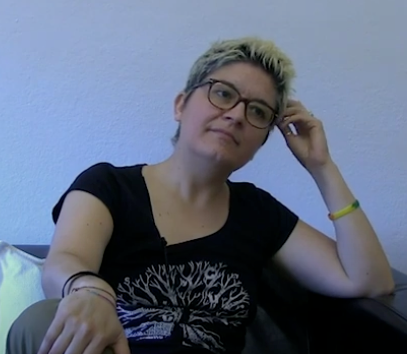
Antonia Peressoni
Antonia Peressoni was born in San Daniele del Friuli in 1978. After graduating with a degree in Public Relations (advertising) she moved first to Piedmont and shortly after to Bologna. She works as the press office manager for a record company and also freelances. With her arrival in the capital of Emilia Romagna, she dedicated herself to activism in the LGBTQ world, first as a volunteer for Pride in 2008, organized by the Arcigay “Cassero” and then within the Bologna Arcigay association. In 2012 she created Indie Pride, a live event with the intention of involving the musical world in saying NO to homophobia, bullying, and sexism. After four years Indie Pride became an independent organization sponsoring its annual festival, and also satellite events like talks, workshops, meetings, and awareness campaigns. In recent years she has collaborated with national and international networks, like Eqauly and Keychange, which deal with gender equality and the gender gap within the music market.
Keywords: LGBTQ+ rights, politics and the law, art/writing as activism
Media: Transcript (Italian, English), YouTube Video (Italian, English Subtitles)
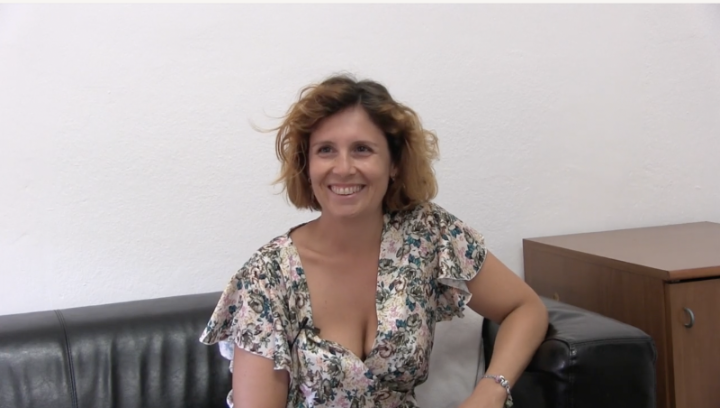
Samanta Picciaiola
Samanta Picciaiola was born in 1976. She received her research doctorate in Italian studies at Sorbonne Paris IV and the University of Florence and a degree in philosophy from University of Bologna. She has worked full time as a public primary school teacher since 2005. She is an activist for the rights of LGBTQ+ people.
Keywords: community activism, education, gender-based violence
Media: Transcript (Italian, English), YouTube Video (Italian, English Subtitles)
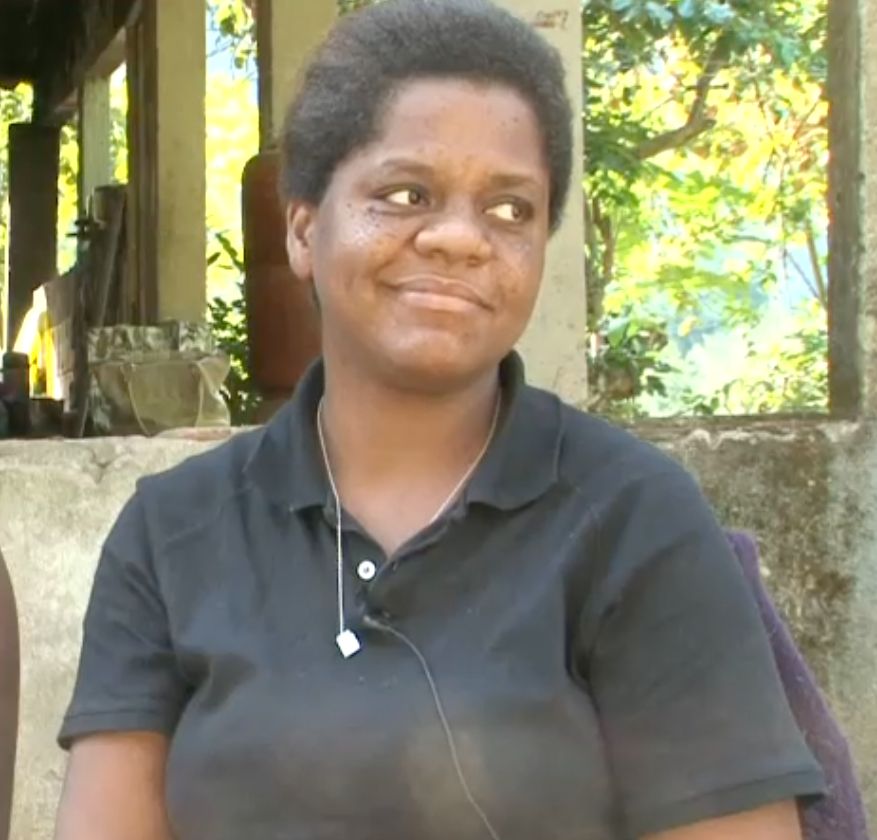
Angélica Souza Pinheiro
Angélica Souza Pinheiro (interviewed with Luciana Adriano da Silva) (1982-2016) was a Quilombola and black woman who studied Rural Education at the Federal Rural University of Rio de Janeiro and later tourism, focusing on community based tourism. She represented the Quilombo Santa Rita do Bracuí in the Forum of Traditional Communities of Angra dos Reis, Paraty, and Ubatuba, succeeding in creating quilombola schools. The GFP staff note with sadness the death of of Angélica in 2016.
Keywords: rural women and land reform, racial identity, education, reform of domestic/family roles
Media: Transcript (English, Portuguese), Video, YouTube Video (Portuguese, English Subtitles), Name Pronunciation Audio

Bianca Maria Pomeranzi
Bianca Maria Pomeranzi was born in 1950 in Arezzo. She has been a part of the Roman Feminist Movement of Via Pompeo Magno since the mid-1970s. With the group Vivere Lesbica she organized the first Italian Lesbian Feminist Conference in 1981. As an expert on gender and development issues, she worked in the Ministry of Foreign Affairs for Development Cooperation. She served as an Expert on the Commission of the United Nations Convention for the Rights of Women, CEDAW. She is vice president of the Association for the Renewal of the Left and politically active in the Wednesday Feminist Group and the Alma Sabatini Feminist Studies Center.
Keywords: academia and women's studies, LGBTQ+ rights, politics and the law
Media: Transcript (Italian, English), YouTube Video (Italian, English Subtitles)

Natal’ia L’vovna Pushkareva
Natal'ia L'vovna Pushkareva was born in 1959 in Moscow. A historian by training, at last contact she was the director of the Women’s and Gender Studies Department at the Institute of Ethnology and Anthropology at the Russian Academy of Sciences. Pushkareva is considered to be a principal founder of the field of women’s studies in Russia and served as a collaborator for the Russia portion of the Global Feminisms Project, conducting the majority of the interviews.
Keywords: academia and women's studies, reform of domestic/family roles, education
Media: Transcript (English, Russian), Video (English, Russian), Name Pronunciation Audio

Anjum Rahman
Anjum Rahman was born in the village of Mahuwara in the Indian state of Uttar Pradesh. Her family moved to New Zealand from Canada in 1972 when she was five years old. She became a naturalised New Zealand citizen in 1976. She was a chartered accountant for 30 years, working with a range of entities in the commercial, farming, and not-for-profit sectors.
Rahman was a founding member of the New Zealand Islamic Women's Council, an organisation formed in 1990 to bring Muslim women together and represent their concerns and was the media spokesperson. She is also a founding member of the Shama Ethnic Women's Trust and served as a trustee on its board from 2002 until 2019. Shama supports ethnic minority women through its social work service, life-skills classes, and community development. Rahman has worked in the area of sexual violence prevention both as a volunteer and as part of Government working groups.
Rahman was a spokesperson for the Muslim community following the Christchurch mosque shootings in March 2019, in which 51 people were killed and 40 injured. In media interviews following the attack, she voiced frustration at the failure of the New Zealand Security Intelligence Service and other government agencies to take concerns about violence towards the Muslim community, Islamophobia, and the rise of the alt-right in New Zealand seriously. In response to the attacks, Rahman established the organisation Inclusive Aotearoa Collective Tāhono to combat discrimination.
Anjum was an active member of the Waikato Interfaith Council for over a decade, and was a trustee of the Trust that governs Hamilton’s community access broadcaster, Free FM. She is currently a trustee of Trust Waikato, the largest funder in the region, and on the governing council of InternetNZ. She is a member of international committees dealing with violent extremist content online, being the co-chair of the Christchurch Call Advisory Network and a member of the Independent Advisory Committee of the Global Internet Forum for Countering Terrorism.
In the 2019 Queen's Birthday Honours, Rahman was appointed a Member of the New Zealand Order of Merit for services to ethnic communities and women; she was also shortlisted for the New Zealander of the Year Award.
Keywords: intersectionality, politics and the law, racial identity
Media: Transcript, YouTube Video

Sandra Ramos
Sandra Ramos was born in 1959 and is a leader in the Women's Rights Movement whose activism focuses on women workers in the maquila. She is a co-founder and director of Nicaragua's María Elena Cuadra Women's Movement, which provides scholarships for nontraditional jobs, has a small credit program for unemployed women, teaches women about their labor rights, and provides training for negotiation techniques.
Keywords: gender and health, gender-based violence, politics and the law
Media: Transcript (English, Spanish), Video (English, Spanish), Bibliography, English YouTube Video, Name Pronunciation Audio

Camila Ranauro
Camilla Ranauro was born in 1994, and has been a LGBTI+ activist and feminist since the age of 17. She has been active in both collectives and formal associations. She is currently the vice president of Cassero LGBTI+ Center in Bologna, Italy. Her principal interests are education, political protest, and planning and preparation of European project proposals.
Keywords: LGBTQ+ rights, intersectionality, politics and the law
Media: Transcript (Italian, English), YouTube Video (Italian, English Subtitles)

Olutola Oluyemisi Ransome-Kuti
Olutola Oluyemisi Ransome-Kuti was born in 1947 in a family deeply engaged in the political life of Nigeria. Ransome-Kuti was educated in both the United Kingdom and Nigeria, where she earned degrees in business management, aesthetics, counseling, and human resources management. She was involved in the struggle for democracy in Nigeria and was arrested and sent to prison on her way to attend the Beijing Women’s Conference (1995). Ransome Kuti founded the Nigeria Network of NGOs, an umbrella organization that coordinates and regulates the activities of NGOs in Nigeria. She once ran Girl Watch, an organization that focused on educating young Nigerian girls from low socio-economic backgrounds. In 2006, the World Bank appointed her as the civil society advisor on Nigeria’s working groups on millennium development goals and poverty eradication.
Keywords: politics and the law, community activism, environment
Media: Name Pronunciation Audio, Transcript, Video, YouTube Video
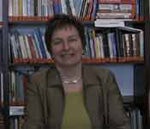
Joanna Regulska
Joanna Regulska was born in 1951 in Warsaw, Poland. She studied geography at the University of Warsaw in Poland and at the University of Colorado in the United States. In 1989, she co-founded the Foundation for Development of Local Democracy in Poland. She directs the Department for Women and Gender Research at Rutgers University in the USA Regulska has a daughter and divides her life and work between Poland and the United States.
Keywords: feminist conferences, disability rights
Media: Transcript (English, Polish), Video (English, Polish), Bibliography, English YouTube Video, Name Pronunciation Audio
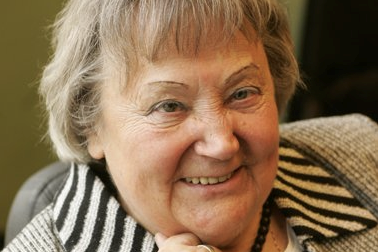
Natal’ia Mikhailovna Rimashevskaia
Natal'ia Mikhailovna Rimashevskaia was born in 1932 in Moscow and is a professor at Moscow State University, and at the Academy of Labor and Social Relations. She helped to create the Laboratory on Issues of Gender at the Institute of Social and Economic Studies of the Population, where she worked until 2005. She is a member of the Russian Academy of Life Sciences and editor of Human Population magazine, and works on issues of demography. The GFP staff note with sadness Natal'ia's death in 2020.
Keywords: reform of domestic/family roles, gender and health
Media: Transcript (English, Russian), Video, YouTube Video (English, Russian), Name Pronunciation Audio
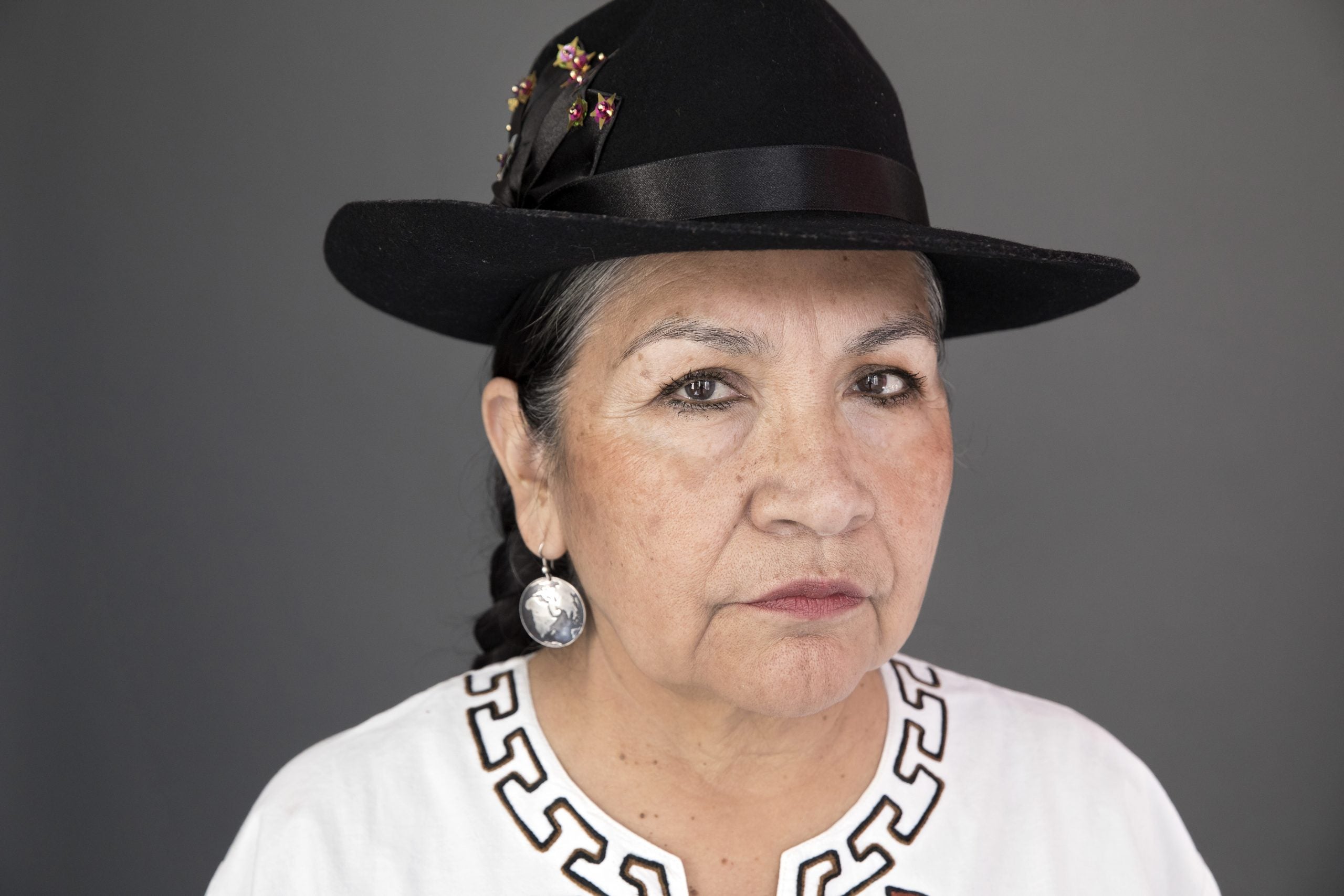
Tarcila Rivera Zea
Tarcila Rivera Zea is a Quechua activist who has dedicated nearly 40 years of her life to defending and seeking recognition for the indigenous people of Perú. She was born in the community of San Francisco de Pujas, Ayacucho, capital of the province of Huamanga, Peru. During the 1970s, she worked as a specialized secretary in archival and library science at the Ministry of Culture of Peru, studying at the Vatican City and Argentina. She also served as secretary of Martha Hildebrandt at the National Institute of Culture. Years later she collaborated as a journalist for the Pueblo Indio magazine of the Indian Council of South America (CISA). In recognition of her work in collecting testimonies of Indigenous women raped during armed conflicts, she was invited to pursue specialization courses in human rights at the Institute for Social Studies (ISS) in The Hague, The Netherlands, and the International Center for Education in Human Rights in Charlottetown, Canada. In 1987 she began to participate in international processes on the rights of indigenous peoples, as well as in United Nations conferences on Women, which led her to be invited by UN Women in 2012 to be part of her International Advisory Group on the Civil Society. Rivera Zea is the founder of the Continental Link of Indigenous Women of the Americas (ECMIA) and the International Forum of Indigenous Women (FIMI), two networks that promote the empowerment and political involvement of the world's indigenous women. As a result of all her years of activism, defending and making visible the cultures and indigenous peoples of Peru, the Permanent Workshop of Andean and Amazonian Indigenous Women of Peru and of the Center of Indigenous Cultures of Peru (CHIRAPAQ) was created. She was president of CHIRAPAQ and is currently the vice president, coordinator of the Continental Liaison for Indigenous Women of the Americas (ECMIA), member of the Board of Directors of the Voluntary Fund for Indigenous Peoples of the United Nations between 2006 and 2011. She has also collaborated in the creation of the International Indigenous Press Agency (AIPIN).
Keywords: community activism, intersectionality, racial identity, rural women and land reform
Media: Transcript (Spanish, English), Video, YouTube Video (Spanish, English Subtitles), Name Pronunciation Audio
Interviewee Photo Credit
By UN Women. https://www.flickr.com/photos/unwomen/32865257584/in/photolist-S5c359-24bQkzG-z18VSS-24bQkyu. Creative Commons. Accessed 2 February, 2021.

Valeria Roberti
Valeria Roberti was born in 1984 and has been an activist for the rights of LGBTQI+ people for years. She is the facilitator of the Centro Risorse LGBTI, an organization that promotes the full equality of lesbian, gay, bisexual, transexual, and intersex people. She works to promote Education about Differences with adolescents and teachers through non-formal education techniques and has collaborated with various organizations already active in this field. In 2017 she completed the course for professional development on “Gender Perspectives in Teaching Pedagogy” at the University of Bologna. She is the coauthor of the book “Una scuola arcobaleno. Dati e strumenti contro l’omotransfobia in classe” published by Settenove Edizioni in 2021.
Keywords: LGBTQ+ rights, politics and the law, education
Media: Transcript (Italian, English), YouTube Video (Italian, English Subtitles)
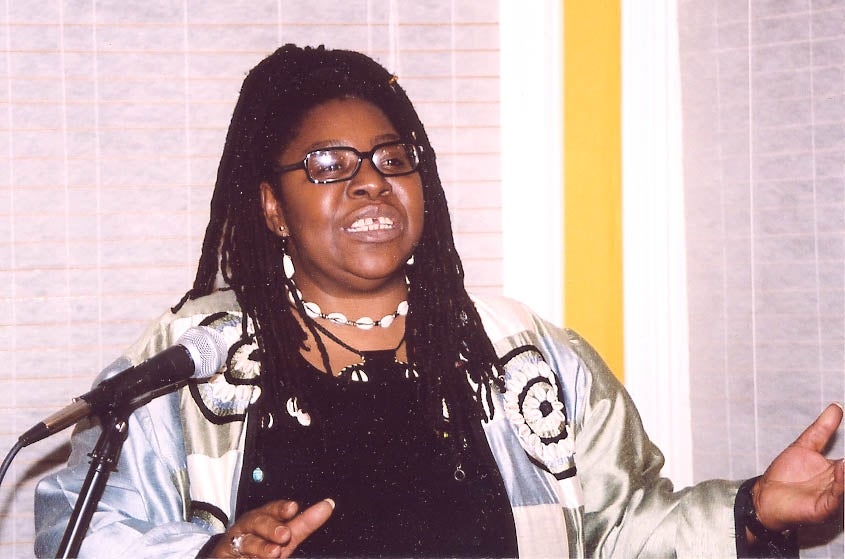
Loretta Ross
Loretta Ross, born in 1953, is an activist and was one of the first African American women to direct a rape crisis center. She has served as director of the Women of Color Programs for the National Organization for Women, as national co-director of the March for Women's Lives in DC, and as National Program Research Director for the Center for Democratic Renewal. She founded the National Center for Human Rights Education and co-authored "Undivided Rights: Women of Color Organizing for Reproductive Justice". She is a founding member and most currently a national coordinator of SisterSong Women of Color Reproductive Health Collective. The New York Times published an article about Loretta Ross on November 19th, 2020, which can be found here. Congratulations to United States GFP interviewee Loretta Ross on being named a 2022 MacArthur Fellow!
Keywords: gender and health, feminist conferences, gender-based violence, intersectionality, reproductive rights
Media: Transcript (English), Video, Bibliography, YouTube Video, Name Pronunciation Audio

Mary Rusimbi
Mary Rusimbi was born in 1953 in Tanzania. She holds a BA in education (University of Dar es Salaam), and a Masters in Community Education (University of New Zealand).
She is a gender activist, policy analyst, and feminist, who has translated feminist principles in organizational culture. She is a co-founder of civil society organizations and women’s rights organizations in Tanzania, such as Tanzania Gender Networking Program (TGNP), Women Fund Tanzania Trust (WFT-T), Foundation for Civil Society (FCS); Tanzania Gender Networking Program (TGNP), HAKIELIMU, Women Fund Tanzania Trust (WFT-T); and UZIKWASA-Pangani and Tabata Development Fund (TDF). She served in various national, regional and international boards including Tanzania Gender Networking Programme, Foundation for Civil Society, Research for Poverty Alleviation, Southern African Research and Documentation Centre, and Partnership Africa Canada (Canada). She has produced many publications. She brings rich experience to the women’s rights movements, and has worked with government, bilateral, multilateral and NGOs in the region and beyond.
Keywords: community activism, gender and health, politics and the law
Media: Transcript, YouTube Video
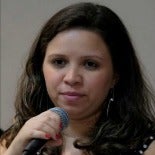
Iara Amora dos Santos
Iara Amora dos Santos, born in 1984 in Fortaleza, Ceará, is a project supervisor at the Center for the Working Woman, an NGO in Rio de Janeiro that supports working class women in understanding their rights. Iara received her B.A. in Law from the Federal University of Rio de Janeiro and has a degree in Women and Human Rights from the Law School at the University of Chile.
Keywords: education, politics and the law, reproductive rights, gender-based violence
Media: Transcript (Portuguese, English), Video, YouTube Video (Portuguese, English Subtitles), Name Pronunciation Audio

Maria de Fátima Lima Santos
Maria de Fátima Lima Santos, born in 1974, grew up in Aracaju in the northeast of Brazil. She is an anthropologist and an associate professor at the Federal University of Rio de Janeiro where she teaches courses related to gender, health and community. Her scholarly and activist focus is on health care and understandings of health for the LGBT community.
Keywords: gender and health, LGBTQ rights, academia and women's studies
Media: Transcript (English, Portuguese), Video, YouTube Video (Portuguese, English Subtitles), Name Pronunciation Audio

Marion Schmidt
Marion Schmidt was born in Kiel in northern Germany. She moved to Berlin in 1976 at age 18 and trained as a librarian, eventually working as a music librarian. However. she began teaching Foxtrot and Tango steps with Brigitte Garten in 1986 in the Schoko-Fabrik in Berlin-Kreuzberg. These courses have been very popular for years. There are several women's balls and weekly dance opportunities during the year, at which same-sex couples are welcome. She offered many programs through BEGINE, beginning in the late 1980s. In 1999 Marion completed her studies in educational science at the TU Berlin with a diploma thesis on the subject: "Everything is turning! Feminist couple dance culture in the field of tension between bourgeoisie and subversive practice". This work integrates years of observations, discussions, findings, and developments in our dance pedagogical practice. The text is available on request at [email protected].
Keywords: art/writing as activism, LGBTQ rights
Media: Transcript (English, German), Video (German, English), Name Pronunciation Audio
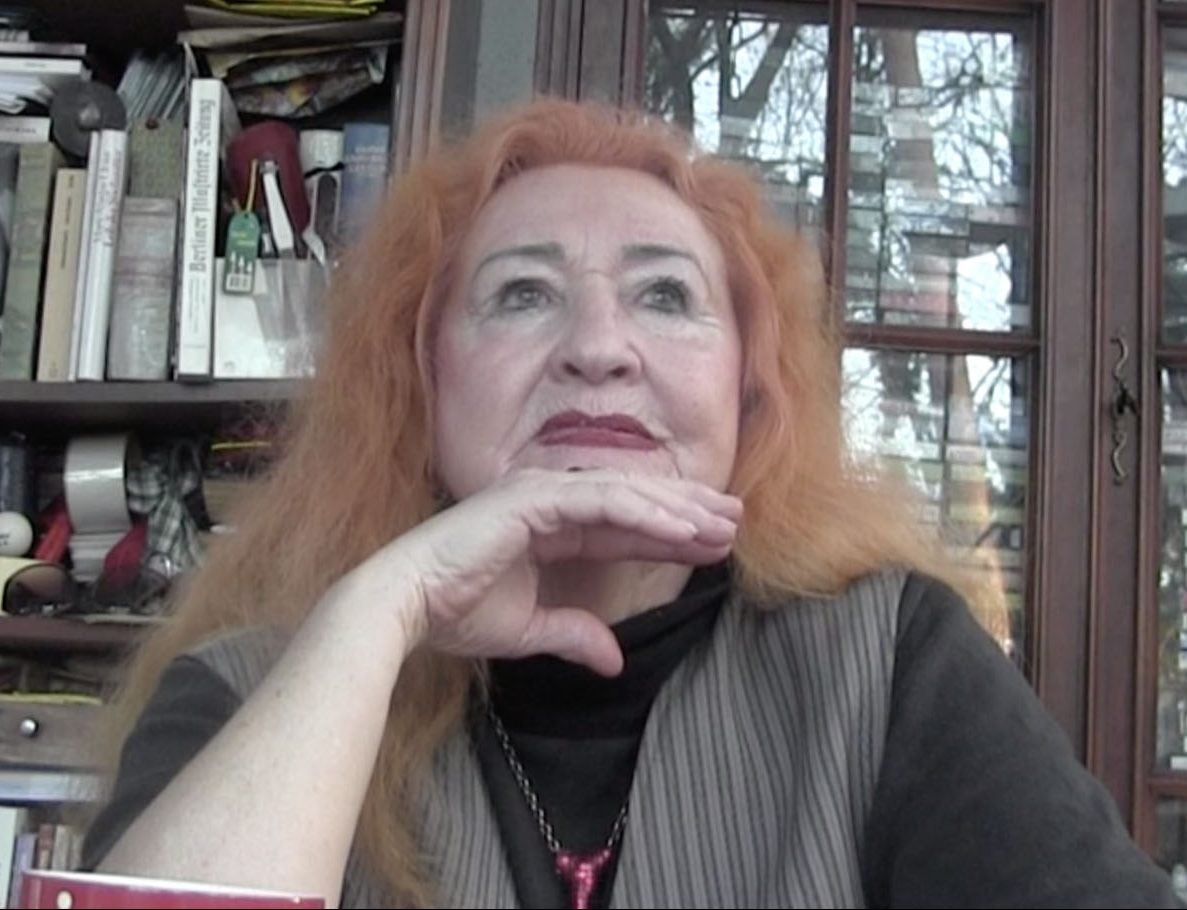
Dagmar Schoenfisch
Dagmar Schoenfisch was born in Berlin in 1940. She worked as a nurse in East Berlin, and in August 1961 escaped to West Berlin, where she got her diploma at the Free University. She has a daughter and a son. She participated in the German Senate for Economics in 1978 and worked in women’s shelter activism. She was the founder of the first lesbian bar in Berlin (“Die Zwei”) in 1980-81, which she continued to operate until 2002.
Keywords: LGBTQ rights, academia and women's studies, art/writing as activism
Media: Transcript (English, German), Video, YouTube Video (German, English), Name Pronunciation Audio

D. Sharifa
D. Sharifa, born in 1966, has taken a stand on Muslim women's rights. She runs STEPS in Tamilnadu, an organization focused on the women's rights awareness, especially Muslim women. She has been fighting to build a mosque for Muslim women, and has received several national awards for her work among women.
Keywords: intersectionality
Media: Transcript (English), Video, Bibliography, YouTube Video, Name Pronunciation Audio
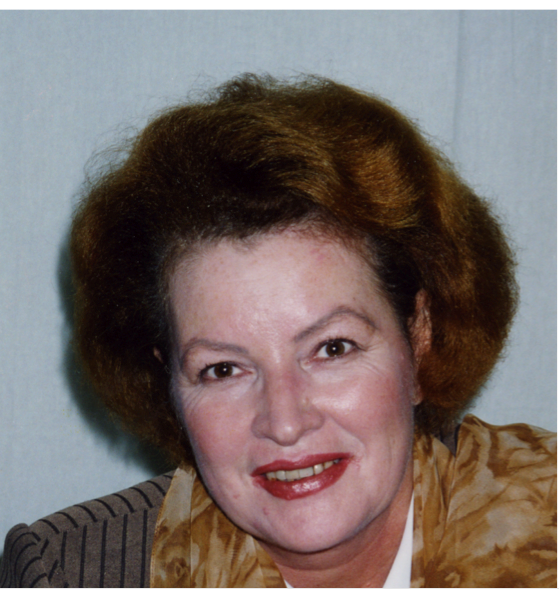
Liubov Vasil’evna Shtyleva
Liubov Vasil'evna Shtyleva, born in 1956, was a teacher of history in public schools before going back to get her doctorate in education. She then taught educational science and psychology at the Murmansk State Pedagogical Institute, worked at the Institute for Social Pedagogy at the Russian Academy of Education, and was the principal research associate at the Institute of Childhood, Family and Upbringing at the Russian Academy of Education. She has worked on issues of education and gender in Russia and internationally.
Keywords: academia and women's studies, reform of domestic/family roles, community activism, feminist conferences
Media: Transcript (English, Russian), YouTube Video (English, Russian), Video (Russian), Name Pronunciation Audio
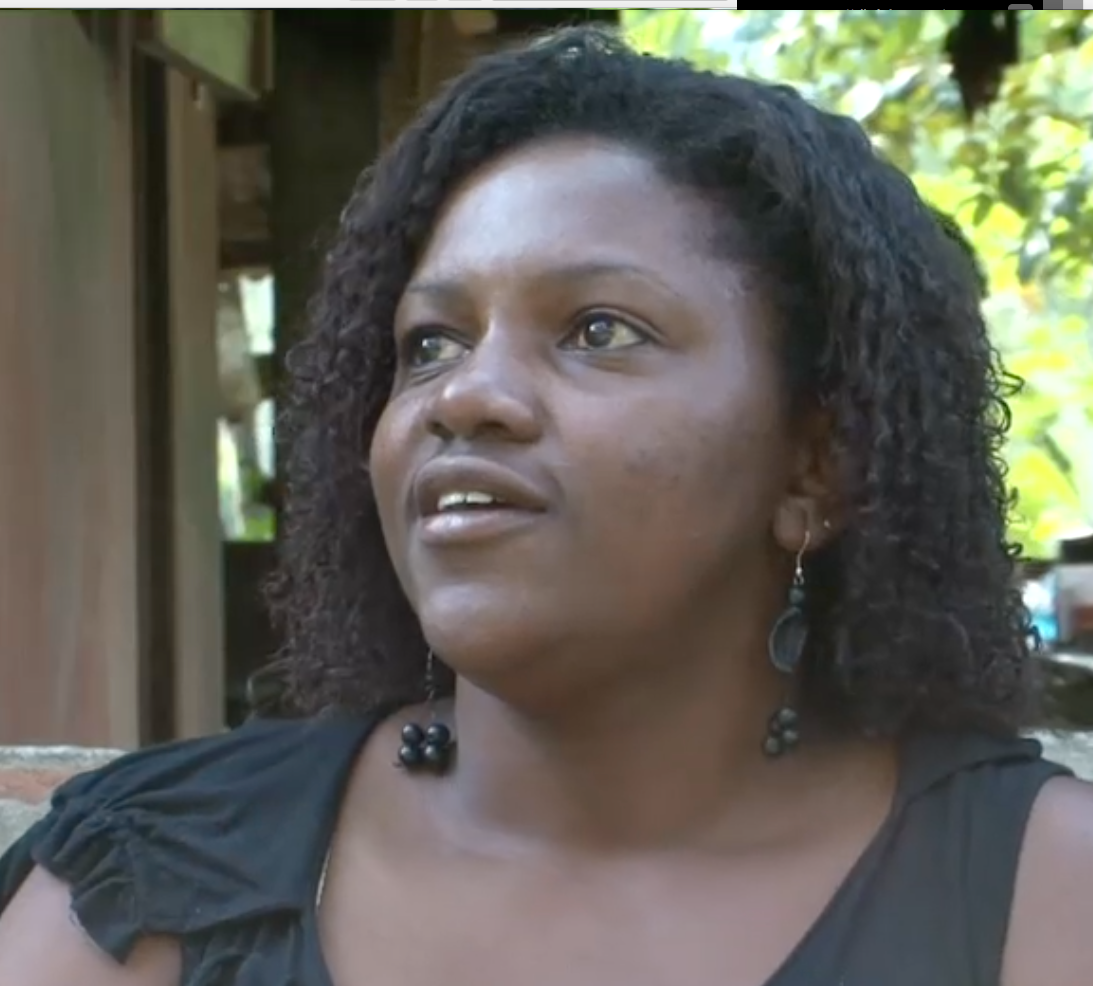
Luciana Adriano da Silva
Luciana Adriano da Silva (interviewed with Angélica Souza Pinheiro) was born in 1981 in Angra dos Reis. She studied at the Federal Rural University of Rio de Janeiro, and received a graduate degree in Rural Education. Luciana is a community leader of the Quilombo Santa Rita do Bracuí and also works with a number of other social movements and institutions.
Keywords: rural women and land reform, racial identity, education, reform of domestic/family roles
Media: Transcript (Portuguese, English), Video, YouTube Video (Portuguese, English Subtitles), Name Pronunciation Audio
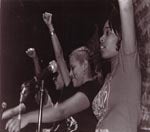
Sista II Sista
Sista II Sista is a Brooklyn-wide, community-based organization located in New York. It is a collective of working class young and adult Black and Latino women building together to model a society based on liberation and love. The organization is dedicated to working with young women of color to develop personal, spiritual and collective power, and is involved in a variety of projects, including The Freedom School for Young Women of Color, The Big Mouth Project, and Sista Liberated Ground.
Keywords: community activism, gender-based violence, intersectionality
Media: Transcript (English), Video, Bibliography, YouTube Video, Name Pronunciation Audio
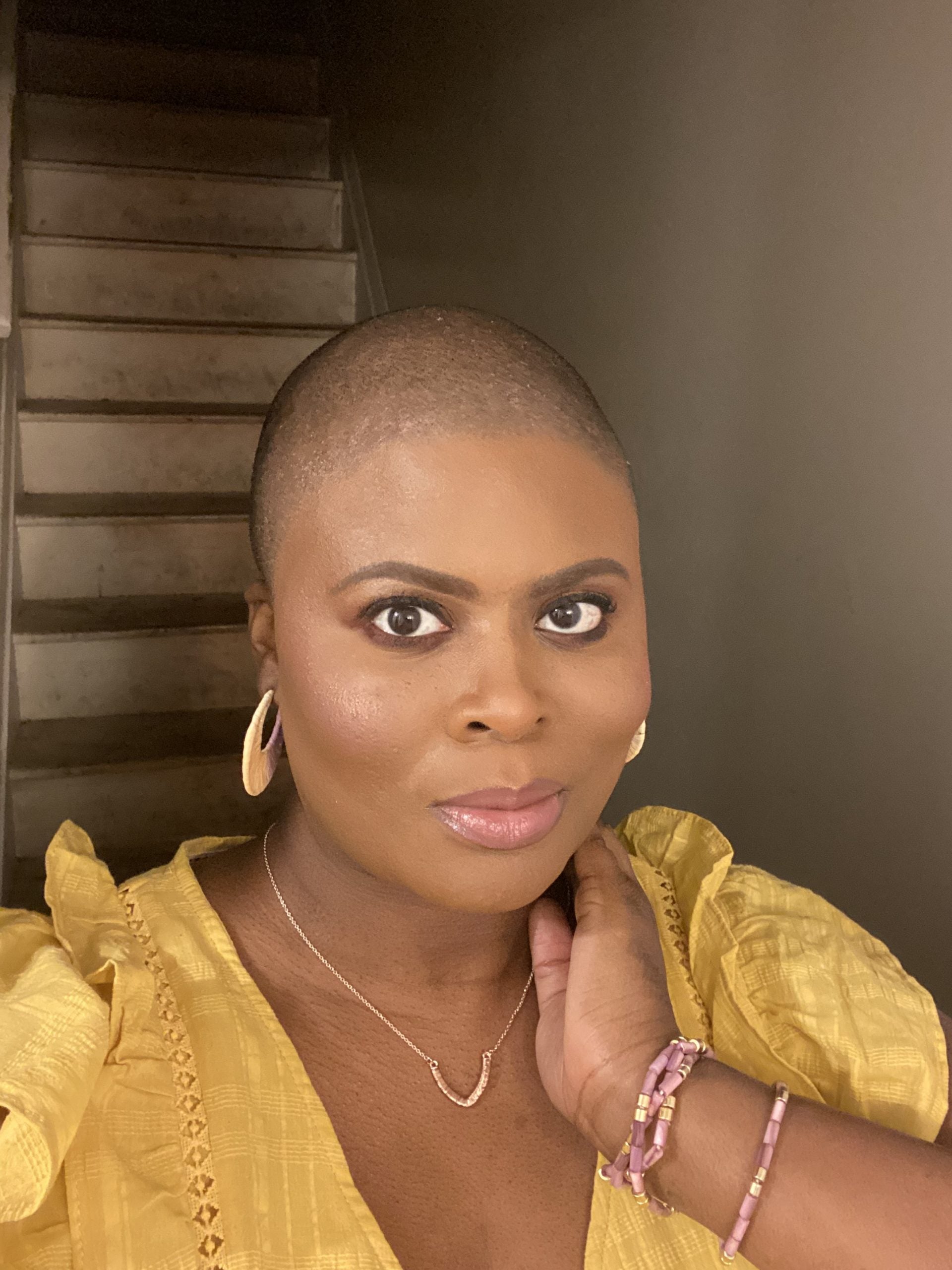
Chimére L. Smith
Suffering with the debilitating effects and symptoms of Covid-19 for nearly a year, Chimére L. Smith, born in 1982, has had to learn the hard knocks of advocacy in healthcare. While seeking treatment and care, she experienced racism, sexism, and dismissal by several medical professionals. Chimére boldly took matters into her own hands by challenging Baltimore hospitals for better, comprehensive treatment for herself and other Black Long Covid patients in urban communities. She is an author, speaker, highly-requested panelist, and thought leader who unapologetically shares her Long Covid journey — including balancing the effects of her disability emotionally, physically, and financially. Chimére Smith has been featured on CBS, CNN, MSNBC, NPR, PBS, and in The Washington Post, and The New York Times. She has written for Huffington Post, Medium, The Long Covid Survival Guide, and She Knows.
Keywords: activism during the COVID-19 pandemic, disability rights, gender and health, media
Media: Transcript (English), YouTube Video, Name Pronunciation Audio

Andrea Lee Smith
Andrea Lee Smith, born in 1966, is an activist/educator. She served as a delegate to the United Nations World Conference Against Racism in Durbin (1991), representing the Indigenous Women's Network and the American Indian Law Alliance. She is one of the founding members of Incite! Women of Color Against Violence, and is the co-founder of the Chicago chapter of Women of All Red Nations (WARN). She has organized several conferences, including the Color of Violence I & II Conferences, Race, Gender and the War Community Forum, and Decolonizing Methodology and Beyond: Constructive Proposals for Indigenous Methodologies.
In the period since this interview, significant doubt has been cast on Dr. Smith's assertion of a Native American or Woman of Color identity. We have retained her interview in this collection of oral histories because her interview was part of the original archive, and because we believe that scholars can and should study what she said in the interview in the context of subsequent conversations (see the articles below, including an open letter from Indigenous women, for more context).
Articles
Barker, J. and others (2015/2018). Open Letter From Indigenous Women Scholars Regarding Discussions of Andrea Smith. Indian Country Today. (originally published July 7, 2015; updated Sept. 12, 2018). https://indiancountrytoday.com/archive/open-letter-from-indigenous-women-scholars-regarding-discussions-of-andrea-smith
Viren, S. (2021, May 26). The native scholar who wasn’t. New York Times Magazine. https://www.nytimes.com/2021/05/25/magazine/cherokee-native-american-andrea-smith.html?campaign_id=190&emc=edit_ufn_20210526&instance_id=31650&nl=updates-from-the-newsroom®i_id=77849961&segment_id=59119&te=1&user_id=a41227382243ef7aa71174705b181411
Keywords: intersectionality
Media: Transcript (English), Video, Bibliography, YouTube Video, Name Pronunciation Audio

Rebecca Stringer
Dr. Rebecca Stringer studied Art History and Criticism and interned at the Peggy Guggenheim Collection before completing a Ph.D in Political Science at Australian National University. Her research examines theories, meanings and politics of victimhood in modern and neoliberal times, and her book Knowing victims: Feminism, agency and victim politics in neoliberal times (2014) examines the neoliberal transformation in how we talk about and conceptualise victimization. Rebecca’s other publications trace the dynamics of victim politics in contexts including Indigenous policy in Australia, the government of drug use, rape law, and the rise of precarious academic work, and her current projects examine the origins of victimology and the visual culture of victimhood. Rebecca teaches and supervises in the areas of feminist theory and critical victimology at the University of Otago. She has been a visiting fellow at the University of Alberta, the University of Sydney, and Flinders University, and has presented her research at conferences and events in Aotearoa/New Zealand, Australia, North America, the UK, and Europe.
Rebecca was co-editor, with Hilary Radner, of Feminism at the movies: Understanding gender in contemporary popular cinema (2011), and with Damien Riggs she co-edits the book series Critical perspectives on the psychology of sexuality, gender, and queer studies, which publishes scholarship challenging the way psychology has traditionally thought about bodies, identities, and experience, with a focus on sex, gender, and sexuality.
Keywords: academia and women's studies, education, politics and the law
Media: Transcript, YouTube Video

Maureen Taylor
Maureen Taylor (interviewed with Marian Kramer) is a social worker and community activist. She has served as chair of the Michigan Welfare Rights organization and was elected treasurer of the National Welfare Rights Union. She defends recipients of public aid at the Michigan Family Independence Agency in case disputes, and directs the Detroit NFI Community Self Sufficiency Center. She was awarded the National Community Leader Award from the National Black Caucus in Washington, DC. Taylor and Kramer spoke at a rally in Detroit, Michigan in June 2020, and a video of their speech recorded by the group Detroit Will Breathe can be found here.
Keywords: gender and health, media, community activism, politics and the law
Media: Transcript (English), Video, Bibliography, YouTube Video, Name Pronunciation Audio
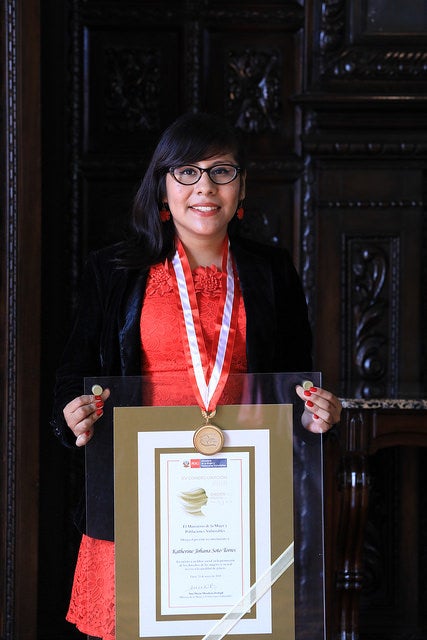
Katherine Soto Torres
Katherine Soto Torres, born in 1993, studied Sociology at the Universidad Nacional Federico Villarreal and is currently completing a Master's in Public Policy at the Universidad Católica-Peru. She is the daughter of migrants and the first in her family to have access to a college education. Kate is a young activist, recognized by the Ministry of Women and Vulnerable Populations for her work with Carabayllo youth through her club of girls SULANS (Siempre Unidas Lograremos Alcanzar Nuestros Sueños; United Always We Will Reach our Dreams), which works to create safe and empowering spaces for young girls. Among other awards, Katherine received the “Order of Merit for Women” from Peruvian President Martin Vizcarra in 2018, in recognition of her social work in the promotion of women's rights and the fight for gender equality. Kate founded Mujeres Desaparecidos Perú (Missing Women-Peru), an organization that reports cases of missing women and girls and was born out of the disappearance of her friend Solsiret Rodríguez, who is still unaccounted for. Kate is also the coordinator of the CHIRAPAQ, a Centro de Culturas Indígenas del Perú project that promotes the affirmation of identity and the recognition of indigenous rights in the exercise of citizenship, with a special commitment to indigenous children, youth and women.
Keywords: activism during the COVID-19 pandemic, community activism, sex work
Media: Transcript (Spanish, English), Video, YouTube Video (Spanish, English Subtitles), Name Pronunciation Audio
Interviewee Photo Credit
By SouhiroZ. https://commons.wikimedia.org/wiki/File:Katherine_Johana_Soto_Torres.jpg. Creative Commons. Accessed 2 February, 2021.
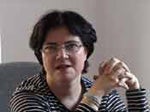
Malgorzata Tarasiewicz
Malgorzata Tarasiewicz was born in 1960. She is the organizer and leader of the Polish section of the Network of East-West Women. Tarasiewicz became involved in anti-Communist university strikes as a student during the early 1980s, which eventually led to her activism on behalf of women's rights. She admits that the labor unions with which she was involved were anti-feminist, especially during the early 1990s with the national anti-abortion debate supported by the overwhelmingly male leadership of the Solidarity Labor Union and the Catholic Church.
Keywords: international rights
Media: Transcript (English, Polish), Video (English, Polish), Bibliography, English YouTube Video, Name Pronunciation Audio

Maria Amélia de Almeida Teles
Maria Amélia de Almeida Teles, born in 1944, is a founding member of the União de Mulheres de São Paulo (São Paulo Women’s Union), a feminist NGO that focuses on the fight against domestic violence and on women’s empowerment and legal rights. A former member of the Communist Party of Brazil and, in the 1970s, a victim of torture by the military government that ruled Brazil from 1964-1985, Teles frequently lectures on feminism and human rights and has published widely on the history of feminism and women’s human rights in Brazil.
Keywords: gender-based violence, imprisonment, politics and the law, LGBTQ rights, racial identity
Media: Transcript (English, Portuguese), Video, YouTube Video (Portuguese, English Subtitles), Name Pronunciation Audio
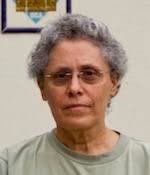
Dora María Téllez (2011 Interview)
Dora María Téllez, born in 1955, is a historian and well-known icon of the Sandinista Revolution. At age 22, she was third in command during the Sandinista takeover of the National Palace. She became Vice President of the Council of State, Political Chief of Managua, and Minister of Health. After leaving the FSLN, she founded the Sandinista Renovation Movement (MRS) in 1995. She was appointed at the Harvard Divinity School but was unable to obtain an entry visa to the USA because the PATRIOT Act classified her as a terrorist. On June 13, 2021, Téllez was detained by the police in Nicaragua and imprisoned for 20 months. She was held in isolation and total deprivation of rights for denouncing the authoritarian nature of the government and its human rights violations. On February 3, 2022, she was sentenced to 9 years in prison on the charge of “aggression against the national sovereignty” and barred from holding any public office in the future. In February of 2023, she was banished and expatriated from Nicaragua to the United States as part of a group of 222 political prisoners, who were also illegally stripped of their Nicaraguan nationality. Her struggle for democracy, social justice and defense of human rights has been internationally recognized. She has been awarded numerous accolades, including the 2022 René Cassin Prize in Human Rights awarded by the Government of the Basque Country, Spain. Read the La Prensa article about the arrest (English translation) and Mónica Baltodano’s biographical piece about Téllez (English translation).
Keywords: politics and the law
Media: Transcript (English, Spanish), Video (English, Spanish), Bibliography, English YouTube Video, Name Pronunciation Audio

Dora María Téllez (2024 Interview)
Dora María Téllez Argüello is a Nicaraguan historian, politician, and social rights activist. She was a prominent Sandinista guerrilla commander in the popular struggle against the Somoza military dictatorship in Nicaragua in the 1970s. She served as representative, vice president of the Council of State, and as Minister of Health during Nicaragua’s revolutionary government (1979-1990). In 1995, she parted ways with the Sandinista National Liberation Front (FSLN) due to its authoritarian drift and co-founded the Sandinista Renovation Movement (MRS), now UNAMOS.
Téllez has since been a vocal opponent to the consolidation of a new dictatorship in Nicaragua led by President Daniel Ortega. She was imprisoned for twenty months, held in isolation, and total deprivation of rights for denouncing the authoritarian nature of the government and its human rights violations. In February 2023, she was banished and expatriated from Nicaragua to the United States as part of a group of 222 political prisoners who were also illegally stripped of their Nicaraguan nationality.
Her struggle for democracy, social justice, and defense of human rights has been internationally recognized. She has been awarded numerous accolades, including the 2022 René Cassin Prize in Human Rights awarded by the Government of the Basque Country, Spain.
Téllez has also developed an academic career as a historian. She is the author of books and academic publications, including ¡Muera La Gobierna! (1999), which documents the internal colonization of indigenous lands by the Nicaraguan state in Matagalpa and Jinotega between 1820 and 1890. She was co-author of the monograph El Café de Nicaragua (2014) on the impact of the development of coffee production in Nicaragua in the 19th and 20th centuries. She has also published various essays on the challenges of democracy and democratic governance, citizen security and the criminal justice system, the role and evolution of social movements, the social and political exclusion of indigenous and other minoritized communities, and the evolution of Sandinismo.
Téllez was incorporated into Nicaragua’s and Guatemala’s Academies of Geography and History. She has also received two honorary doctorates from the University of Helsinki (2011) and from the Sorbonne-Nouvelle (2022). In the summer of 2023, she was a Visiting Research Scholar in the Program in Latin American Studies at Princeton University. Currently, she is a visiting professor and holds the Richard E. Greenleaf Distinguished Chair in Latin American Studies at Tulane University in New Orleans, Louisiana.
Keywords: academia and women's studies, activism during the COVID-19 pandemic, imprisonment, military work in Nicaragua

Anna Titkow
Anna Titkow was born in 1942. She has a doctorate in Sociology from the University of Warsaw and has worked as an instructor and researcher in medical sociology since 1979. At last contact, she was serving as a Professor of Gender Studies at the Institute of Philosophy and Sociology in Warsaw. Titkow is a notable feminist scholar and one of her earliest efforts was a contribution to the "Sisterhood is Global" anthology published in 1984. Titkow's work challenges Polish gender and sexuality taboos.
Keywords: academia and women's studies, reform of domestic/family roles
Media: Transcript (English, Polish), Video (English, Polish), Bibliography, English YouTube Video, Name Pronunciation Audio
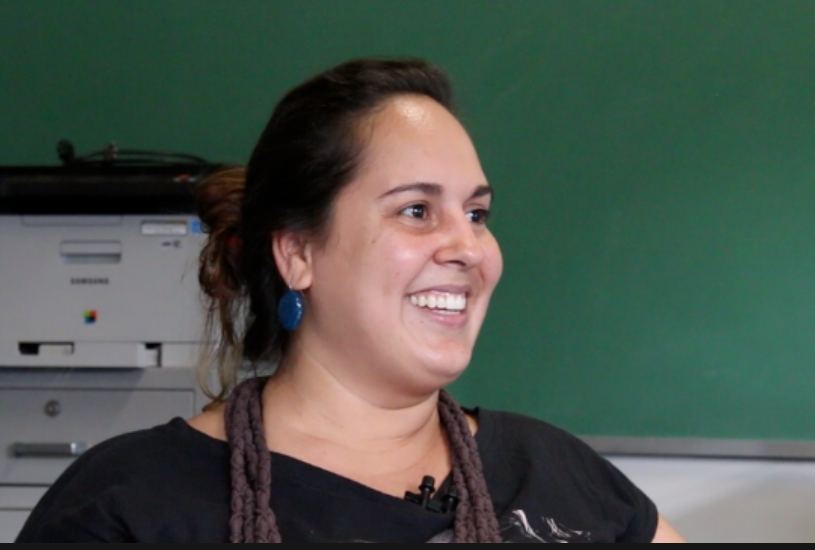
Nataraj Trinta
Nataraj Trinta, born in 1983 in Rio de Janeiro, is a graffiti artist and teaches graffiti workshops to women in low-income communities in Rio de Janeiro as a means to discuss violence against women. In 2010, with other artists and feminists, she helped to create the Feminist Urban Art Network (Rede NAMI), which promotes women’s rights and works to end violence against women through art.
Keywords: politics and the law, art/writing as activism, academia and women's studies, feminist conferences
Media: Transcript (English, Portuguese), Video, YouTube Video (Portuguese, English), Name Pronunciation Audio
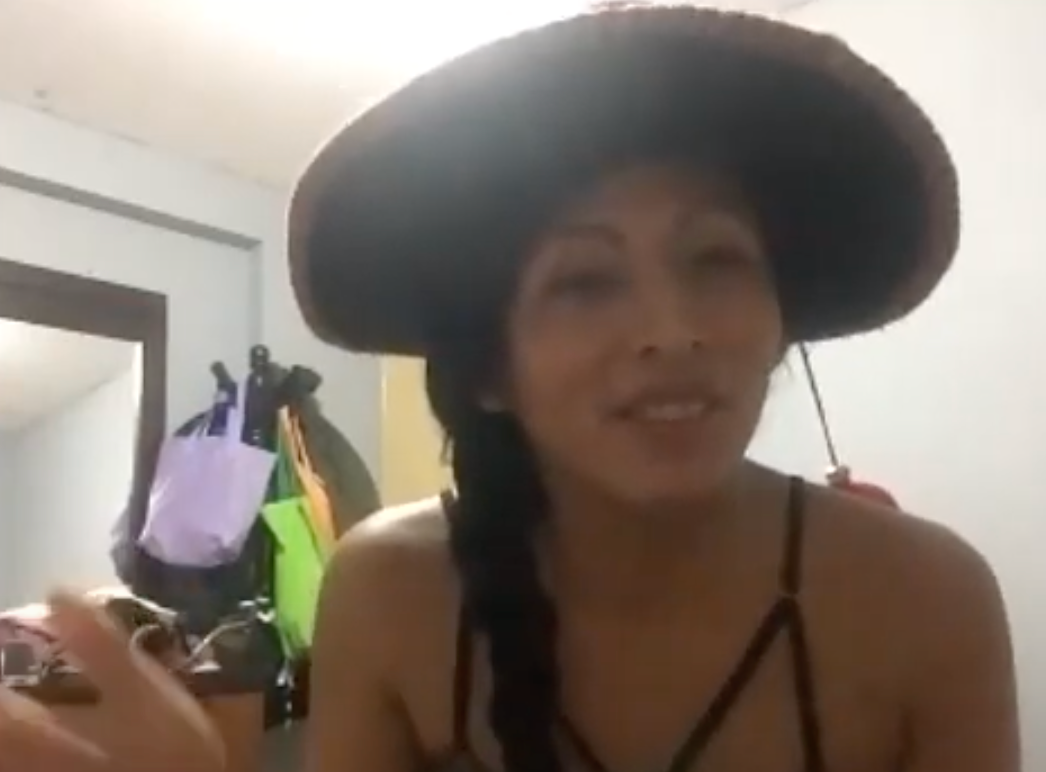
Gahela Tseneg Cari Contreras
Gahela Tseneg Cari Contreras, born in the early 1990s, is a transgender woman who began participating in politics in 2015 in the National Youth Congress held in Huaraz. Gahela grew up in a rural area of the Ica region. Her early life reflects much of the upheaval of Peru's recent history. Her mother was a peasant leader, native of Ayacucho, who was saved from forced sterilization ordered by the government of Alberto Fujimori. Her father was forced to flee Peru because of threats from terrorists, who besieged the work of union leaders. Both became immigrants, as did another 7 million Peruvians who mobilized internally for political or economic reasons. At age 27 she ran to become the first transgender woman in Peru’s Congress in the January 2020 elections, campaigning with what has been described as one of the most courageous and intersectional programs of the emerging and diverse Peruvian left. Although she did not win a seat, she has continued her political activism to transform issues of equity and discrimination among LGBTI individuals.
Keywords: community activism, LGBTQ+ rights, politics and the law
Media: Transcript (Spanish, English), Video, YouTube Video (Spanish, English Subtitles), Name Pronunciation Audio
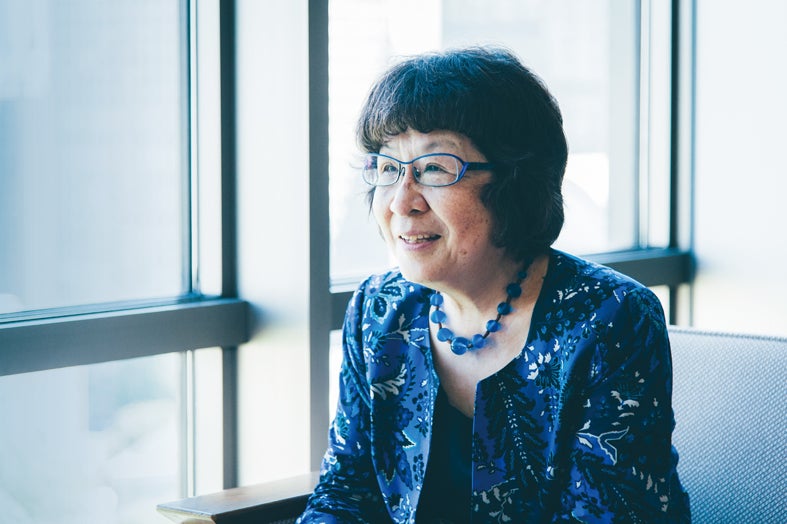
Yukiko Tsunoda
Yukiko Tsunoda, attorney at law; previously a professor at the Law School of Meiji University in Tokyo (2004-2013). Attorney Tsunoda is a pioneer in feminist jurisprudence, especially in the areas of human rights, gender discrimination, and gender-based violence in Japan. In addition to her long career of legal practice representing and defending women in both criminal and civil courts, she has written and lectured extensively, including Sei no hōritsugaku [Sexuality and jurisprudence] (1991) and Seisabetsu to bōryoku [Gender discrimination and violence] (2001) She has been actively involved in various women’s organizations including the Tokyo Rape Crisis Center (legal advisor since 1986), the Domestic Violence Research & Action Group (Co-Founder, 1991), the Center for Education and Support for Women (Director since 2001), and the Lawyers Acting to Eliminate Discrimination Against Women in Entrance Examination for Medical Faculties (Co-Chair, https://fairexam.net/).
Keywords: gender-based violence, politics and the law
Media: Transcript (English, Japanese), YouTube Video (Japanese, English Subtitles)
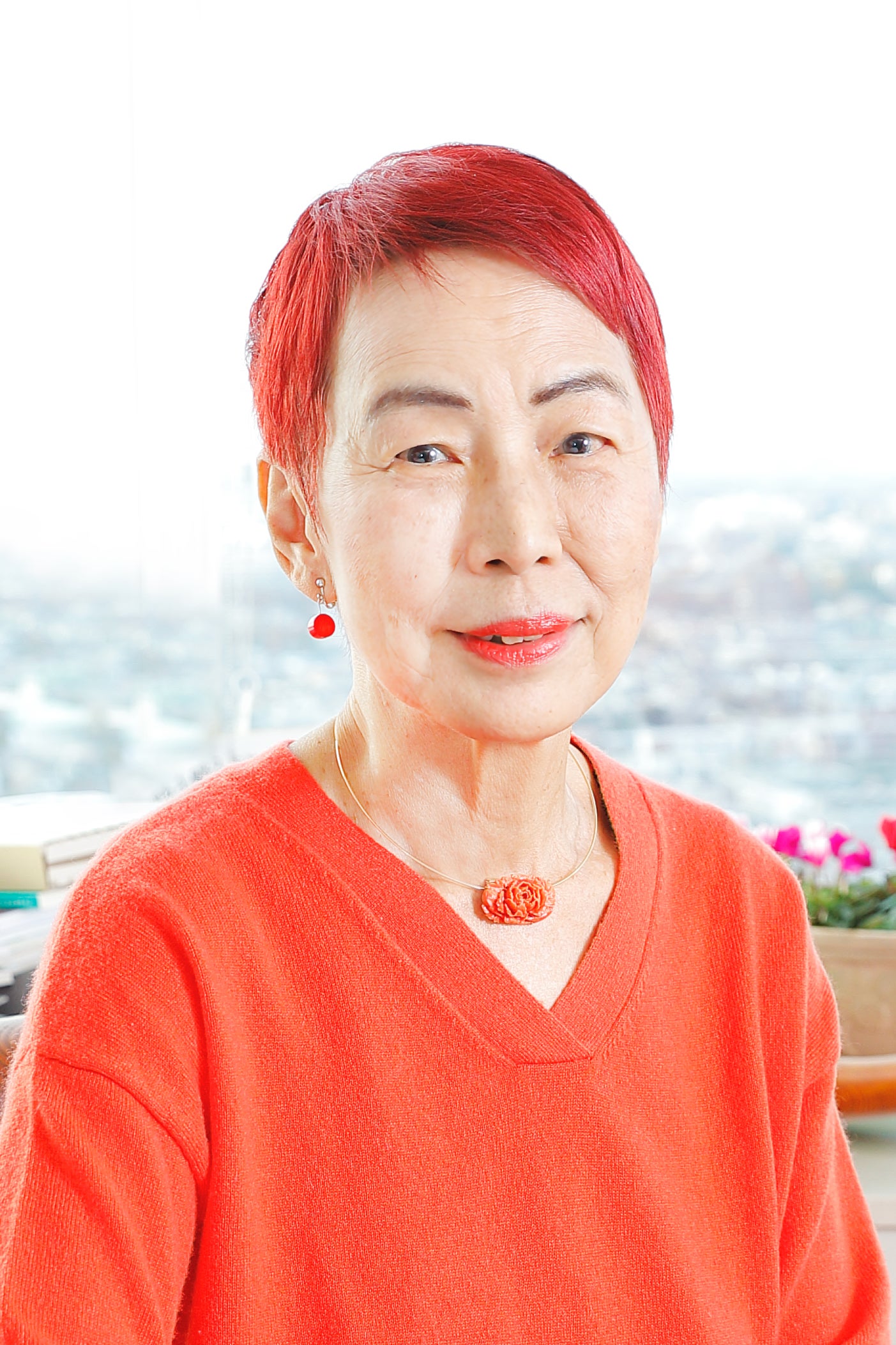
Chizuko Ueno
Chizuko Ueno, Chief Director of NPO Women’s Action Network (WAN, https://wan.or.jp) and an emerita professor at the University of Tokyo; upon retirement, her seminar has been relocated to an online classroom, https://wan.or.jp/ueno#gsc.tab=0. Trained as a sociologist, her scholarship focuses on sociological analysis of gender, sexuality, family, feminism, patriarchy, capitalism in Japan. A pioneer in feminist scholarship and women’s studies, she has authored numerous books, articles, and opinion columns, including, in English, Nationalism and Gender (2004) and the Modern Family in Japan: Its Rise and Fall (2009). She has received many prizes in Japan and abroad, including a Hän Honour from a Finnish organization promoting gender equality (2019) and an international honorary member of the American Academy of Arts & Sciences (elected in 2020).
Keywords: education, art/writing as activism
Media: Transcript (English, Japanese), YouTube Video (Japanese, English Subtitles)
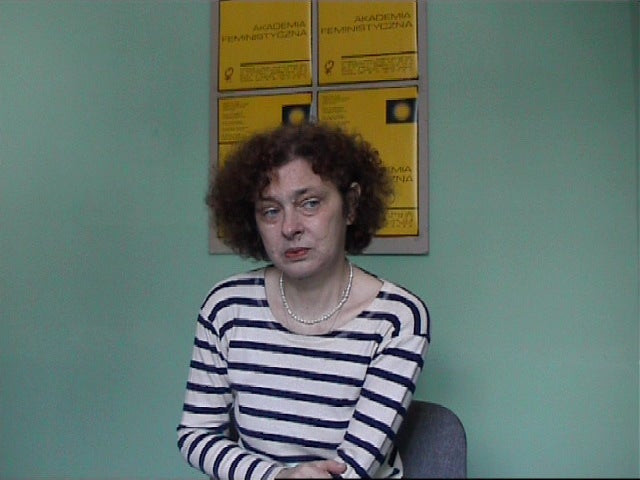
Bozena Uminska
Bozena Uminska was born in 1948 and studied psychology, Polish philology, and philosophy at the University of Warsaw where she received a doctorate in 2001. She is the co-founder of the Polish Feminist Association and a translator of Maggie Humm's The Dictionary of Feminist Theory. In 2002, her book A Figure with Shadow: Jewish Women in Polish Literature from the End of the 19th Century to 1939 was among the top twenty nominated for Nike, the most prestigious literary award in Poland.
Keywords: LGBTQ rights
Media: Transcript (English, Polish), Video (English, Polish), Bibliography, English YouTube Video, Name Pronunciation Audio

Martha Heriberta Valle
Martha Heriberta Valle is an activist in the Women's Movement and in the Cooperative Movement. She joined the Revolution at an early age, and joined the organization of women farmers when the Revolution triumphed. She has been an organizer of rural women, a former elected official of the National Assembly, and at last contact was serving as president and founder of the Agricultural Cooperative Federation of Country Women Producers of Nicaragua (FEMUPROCAN).
Keywords: politics and the law, rural women and land reform
Media: Transcript (English, Spanish), Video (English, Spanish), Bibliography, English YouTube Video, Name Pronunciation Audio
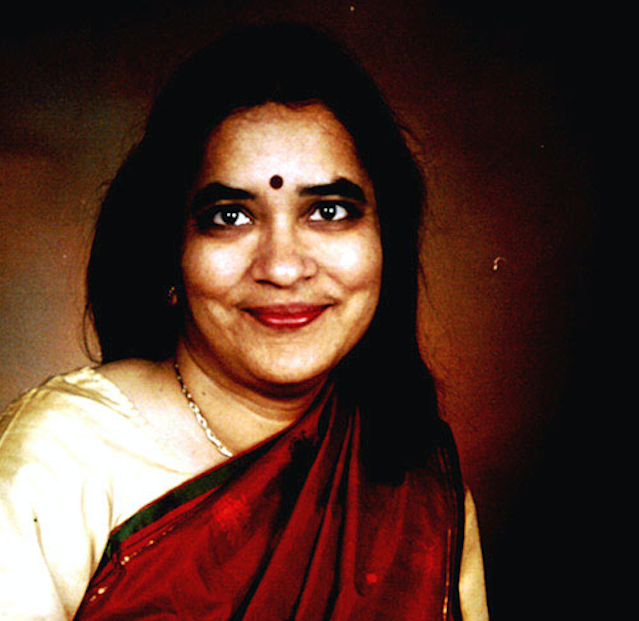
Ruth Vanita
Ruth Vanita, born in 1955, is an author and professor at the University of Montana, where she teaches courses in the Humanities, Literature, and Women's Studies. She was formerly a reader in English at Miranda House and the English department, Delhi University. She is one of the founding co-editors of Manushi, India's first feminist journal.
Keywords: education, gender-based violence, LGBTQ rights, community activism, academia and women's studies
Media: Transcript (English), Video, Bibliography, YouTube Video, Name Pronunciation Audio
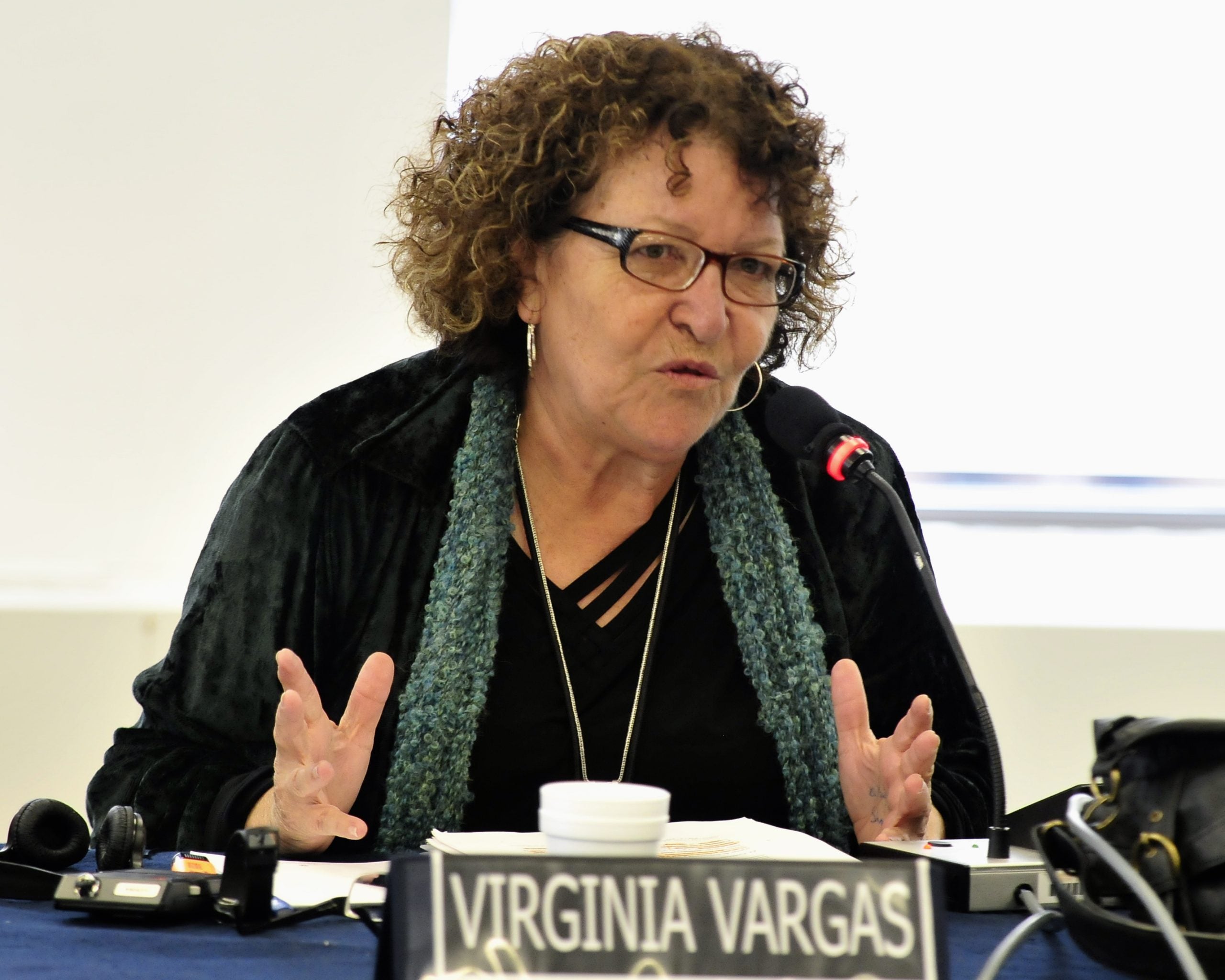
Virginia Vargas
Virginia Vargas, born in 1945, is sociologist and a leader of the women's movement in Peru. In 1978 Vargas was a founding member of the Flora Tristán Center, a non-governmental Peruvian organization that studies, educates, and lobbies for women's rights. She served as the organization's coordinator and later its director until 1990. She founded the Latin American division of DAWN (Development Alternatives with Women for a New Era). She has long been engaged in the struggle for democracy and was candidate for Congress in 1985 and one of the leading activists in coordinating the organization Women for Democracy (MUDE) in 1997. Vargas was the recipient of a UNIFEM Award during the United Nations' 4th World Conference on Women in Beijing in September 1995. In 2000 she spoke at the UN General Assembly in New York on behalf of Latin American and Caribbean women’s NGOs. Beginning in 2001, Vargas became part of the World Social Forum's International Committee. She is also on the Advisory Council of the National University of San Marcos' Institute for Democracy and Global Transformation. In 2005, at the Millennium Social Summit, she was a speaker representing Civil Society at the UN General Assembly, New York. Vargas has participated in debates and discussions in many countries being internationally recognized as an activist and academic/researcher and is the author of over 40 publications on citizenship, the state, and democracy from a feminist perspective.
Keywords: academia and women's studies, feminist conferences, intersectionality
Media: Transcript (Spanish, English), Video, YouTube Video (Spanish, English Subtitles), Name Pronunciation Audio
Interviewee Photo Credit
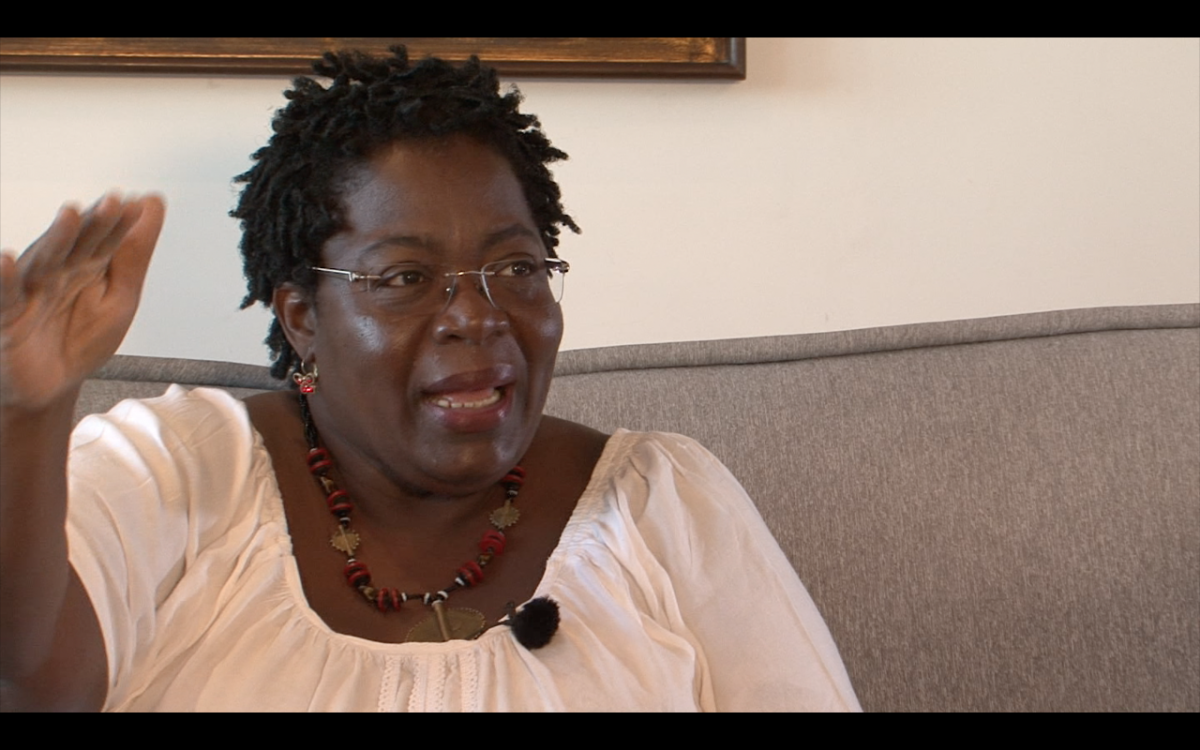
Elizabeth Viana
Elizabeth Viana (interviewed with Giovana Xavier) was born in 1954 in Rio de Janeiro and is a sociologist. She helped found the Group Lima Barret and actively participated in the democratization process of the country. She has been involved with the Nzinga Collective of Women, the Unified Black Movement (MNU), and the Black Action of Nilópolis. She has been the Legislative Assistant at the Municipal Chamber of Rio de Janeiro for 35 years.
Keywords: community activism, racial identity, academia and women's studies, reform of domestic/family roles
Media: Transcript (English, Portuguese), Video, YouTube Video (Portuguese, English Subtitles), Name Pronunciation Audio
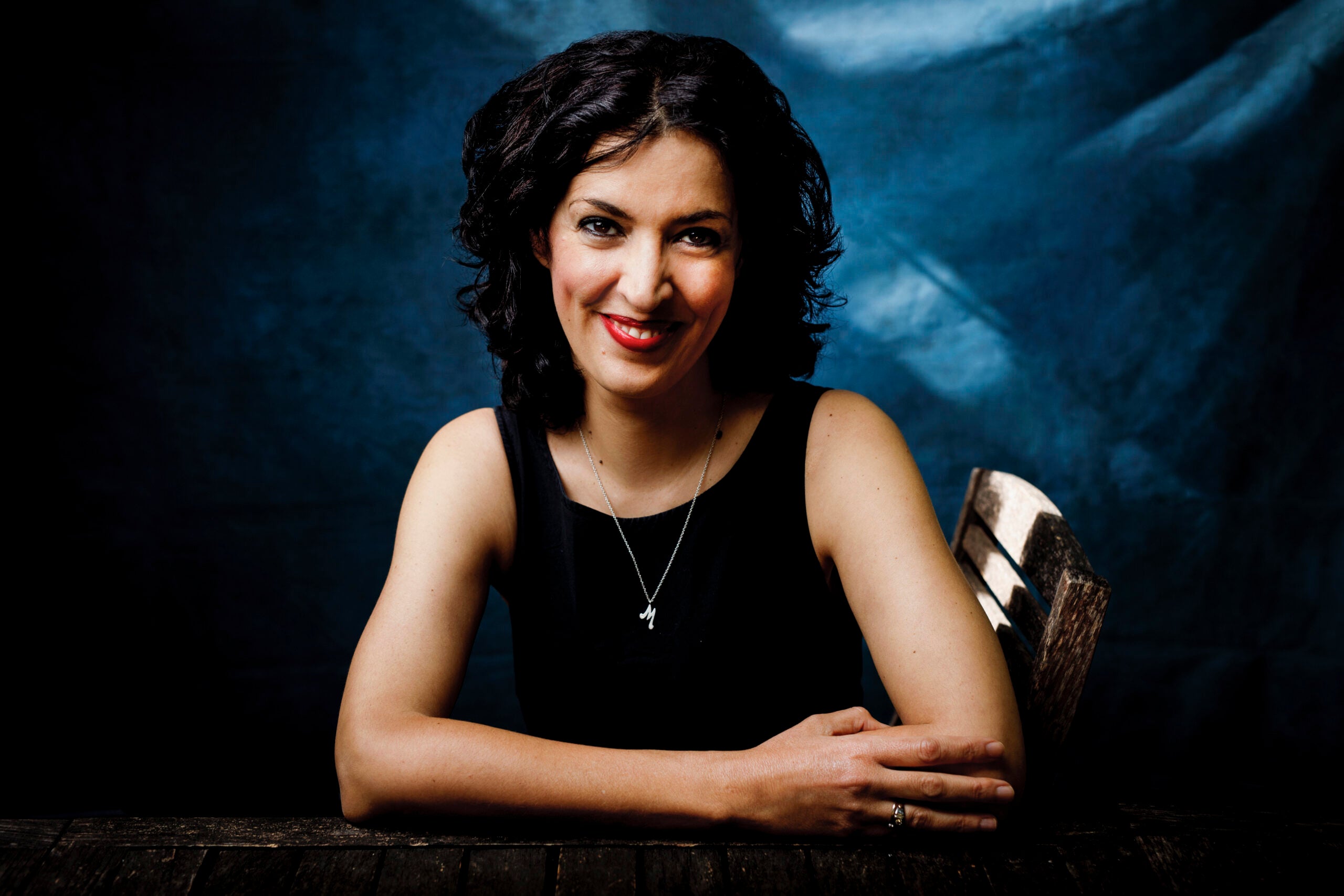
Maddalena Vianello
Maddalena Vianello was born in 1978 in Turin. She graduated from the La Sapienza University of Rome with a Modern History degree and holds a Masters degree in Media and Communications from the London School of Economics and Political Science. She is a professional in cultural planning and organization, an expert in gender policies and in the field of male violence against women. And she is a feminist activist. She currently works as an expert on gender policies for the Lazio region of Italy. With other women, she conceived and organized inQuiete (https://www.inquietefestival.it/), a festival of writers in Rome, to give voice to women’s writing, in many ways still considered minor literature in Italy. With some partners, she keeps the blog “Femministerie” https://femministerie.wordpress.com/. She has collaborated with various periodicals and has published “Fra me e te” (Edizioni et al., 2013), co-written with her mother, Mariella Gramaglia, and “In fondo al desiderio” (Fandango, 2021), dedicated to the theme of medically assisted procreation.
Keywords: reform of domestic/family roles, politics and the law, art/writing as activism
Media: Transcript (Italian, English), YouTube Video (Italian, English Subtitles)

Ana Margarita Vijil
Ana Margarita Vijil Gurdián is a Nicaraguan lawyer, politician, and human rights advocate. She holds a Law Degree from Universidad Centroamericana in Managua and a master’s degree in Political Science with an emphasis in Women’s Studies from Arizona State University as a Fulbright recipient.
For the last twenty years, Vijil has worked in academia and has been an active participant in political activism and social justice advocacy. From 2012 to 2017, she was the former president of the political party MRS (Sandinista Renovation Movement), becoming the youngest woman to serve as head of a major political party in the history of Central America. She is a current member of the opposition political party Unamos (previously MRS).
As an academic, Vijil has been a visiting university professor at different institutions and a researcher in the fields of Law, Gender Studies, and Human Rights. Under her coordination, several academic programs for young people have been developed with the support of international organizations such as the Latin American College for Social Sciences (FLACSO-Guatemala). Since 2013, she has been a Central American Leadership Initiative Fellow at the Aspen Global Leadership Network and, since 2023, Vijil is currently a Senior Fellow at the George Washington University Global Women’s Institute.
A longstanding human rights advocate, Vijil has led numerous protests and demonstrations around the country against police brutality and other human rights violations, as well as the state’s violation of the presidential term limits established by Nicaragua’s constitution. She suffered increased persecution after the state repression of student-led mass protests in 2018, which included more than 500 assassinations at the hands of the police and paramilitary groups. On June 13, 2021, Vijil was arrested at her home. For denouncing the authoritarian nature of the government and its human rights violation, she was imprisoned without due process and held in solitary confinement for twenty months. On February 9, 2023, she was banished and expatriated from Nicaragua to the United States as part of a group of 222 political prisoners who were also illegally stripped of their Nicaraguan nationality.
Keywords: academia and women's studies, imprisonment, politics and the law
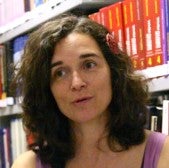
Shirley Villela
Shirley Villela, born in Rio de Janeiro in 1964, began her professional work in gender issues while living for three years in the USA, volunteering at the International Gender and Trade Network. Since 2012, she has been the Coordinator of the Maré de Sabores project, a vocational training project for women in Rio.
Keywords: feminist conferences, community activism, education
Media: Transcript (English, Portuguese), Video, YouTube Video (Portuguese, English Subtitles), Name Pronunciation Audio
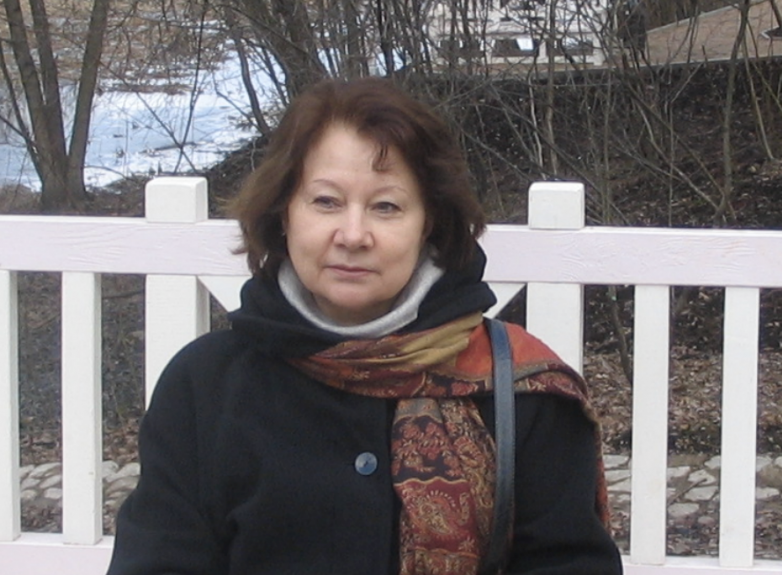
Olga Aleksandrovna Voronina
Olga Aleksandrovna Voronina, born in 1957, is a writer and philosophy professor at the Institute of Philosophy of the Russian Academy of Sciences. She was one of the first researchers who began to study feminist theory and women’s movements, and from 1987 to 1990 she was a member of an early feminist grassroots group, Lotus. In 1990, with other colleagues, Voronina helped to found the Moscow Center for Gender Studies (MCGS), where she was director from 1994 to 2015.
Keywords: academia and women's studies, reform of domestic/family roles, feminist conferences
Media: Transcript (English, Russian), Video (Russian, English Dubbed), Name Pronunciation Audio
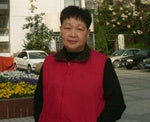
Wang Cuiyu
Wang Cuiyu, born in 1935, was the executive secretary of the Shanghai Association of Women's Studies, affiliated with the Shanghai Women's Federation. She played a leading role in a national organization for women's career development and set up a women's school in Shanghai to provide vocational training for laid-off women.
Keywords: feminist conferences, politics and the law, reform of domestic/family roles, rural women and land reform
Media: Transcript (English, Mandarin), Video (English, Mandarin), YouTube Video (Mandarin, English Dubbed), Name Pronunciation Audio
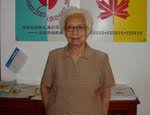
Wang Xingjuan
Wang Xingjuan, born in 1931, was an editor at the Beijing Publishing House and started the first women's domestic violence hot line in China. This became the Maple Women's Counseling Center, one of the earliest women's NGOs in China. At the last contact, she was serving as the director.
Keywords: feminist conferences, gender and health, gender-based violence, politics and the law
Media: Transcript (English, Mandarin), Video (English, Mandarin), Bibliography, YouTube Video (Mandarin, English Dubbed), Name Pronunciation Audio
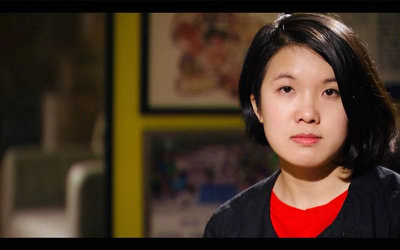
Wei Tingting
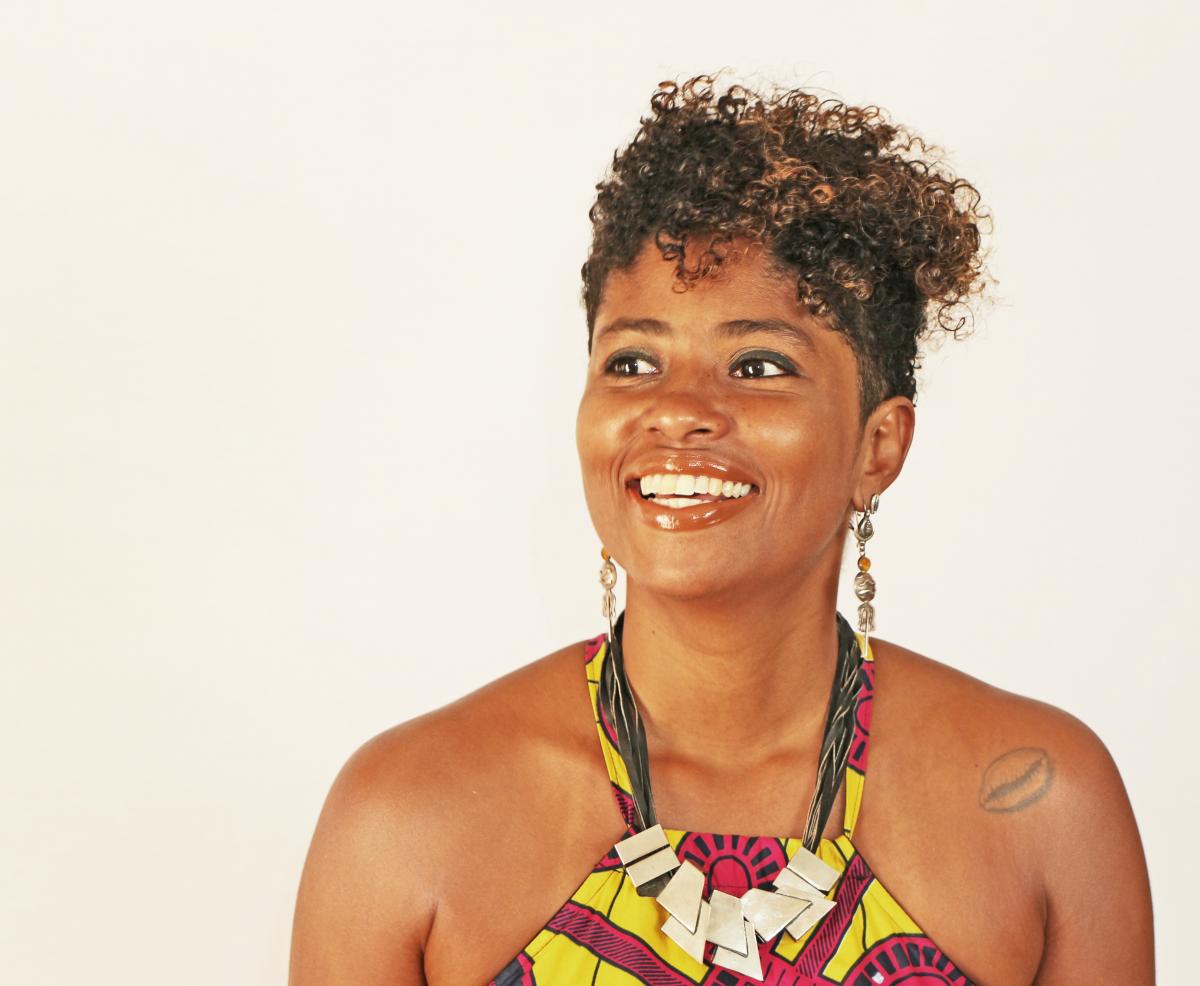
Giovana Xavier
Giovana Xavier (interviewed with Elizabeth Viana) was born in 1979 in Irajá. She is a professor of History at The Federal University of Rio de Janeiro. As a black intersectional feminist, Giovana situates her activism in the academy, especially through her work with black students at the university. At the last contact, she was involved in the project “Black Professors in the First Person: History Teaching and Activist Research.”
Keywords: community activism, racial identity, academia and women's studies
Media: Transcript (English, Portuguese), Video, YouTube Video (Portuguese, English Subtitles), Name Pronunciation Audio
Etsuko Yahata
Etsuko Yahata, founder and Executive Director of NPO Hearty Sendai, Sendai City Miyagi Prefecture (https://www.hearty-sendai.com/). She spearheaded grassroots initiatives to assist women affected by the 2011 Great East Japan Disaster, on top of running a domestic violence shelter and many assistance programs. Originally trained as a midwife, she has since worked over 30 years in fighting against gender-based violence and promoting reproductive health and justice, human rights, and nonviolence. In addition to serving as the Director of the Miyagi Regional Center of Yorisoi Hotline (a nation-wide free 24-hour telephone assistance program), she serves on the board of director of Sendai Gender Equal Opportunity Foundation, Child Line Miyagi, and many others.
Keywords: community activism, gender and health, gender-based violence
Media: Transcript (English, Japanese), YouTube Video (Japanese, English Subtitles)
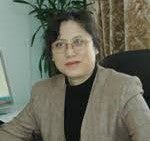
Zhang Li Xi
Zhang Li Xi, born in 1953, is President of the China Women's University, affiliated with the All-China Women's Federation. Under her leadership, the CWU created the first Women's Studies Department in China, and the first Women's Studies major.
Keywords: feminist conferences, academia and women's studies, gender-based violence, intersectionality, politics and the law, rural women and land reform
Media: Transcript (English, Mandarin),Video (English, Mandarin), Bibliography, YouTube Video (Mandarin, English Dubbed), Name Pronunciation Audio



